Diet
How to submit an article:
- Registered users can submit any published journal article that has a unique DOI (Digital Object Identifier) name or link to Research Hub.
- For example, you can paste the full DOI link:
https://doi.org/10.1109/5.771073or just the DOI name:10.1109/5.771073into the field above and click submit. - The person who is first to submit a valid article to Research Hub will forever be credited for it, and every article submission earns you +6 Research Points.
Related Topics
Published research studies are articles that present the findings of original research that has undergone a peer-review process and has been made publicly available in scholarly journals, books or other media.
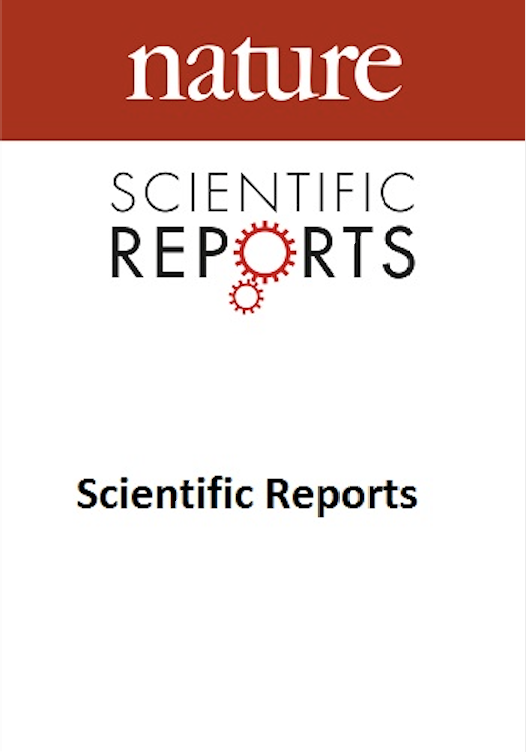
Effectiveness of a novel diet in attenuation of clinical activity of disease in patients with ulcerative colitis: a randomized, clinical trial
2024 Jun 14 Scientific Reports Narimani B, Sadeghi A, Daryani NE, Shahrokh S, Nilghaz M, Ghods M, et al.
Randomised Controlled Trial Low FODMAP Ulcerative ColitisA combined Mediterranean, low-FODMAP diet along with partial enteral nutrition has shown promise in reducing ulcerative colitis activity and improving patients' quality of life.

Carrageenan in the Diet: Friend or Foe for Inflammatory Bowel Disease?
2024 Jun 06 Nutrients Kimilu N, Gładyś-Cieszyńska K, Pieszko M, Mańkowska-Wierzbicka D, Folwarski M
Review Article Inflammatory Bowel Disease CarrageenanCarrageenan, a common food additive, potentially exacerbates Inflammatory Bowel Disease (IBD) symptoms by altering gut microbiota, inducing intestinal permeability, and triggering inflammation.
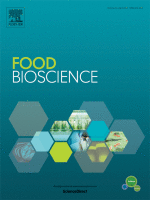
Therapeutic potential of seaweed extracts: In vitro and in vivo studies on alleviating inflammation and enhancing intestinal barrier function.
2024 Jun Food Bioscience Kim YR, Park S, Kim JY
Saccharina japonica, Capsosiphon fulvescens, Hizikia fusiforme, and Chondrus ocellatus seaweed extracts showed improvements in inflammation-induced Caco-2 cell models and DSS-induced mice, indicating their potential as treatments for inflammatory bowel diseases.
Animal Study Seaweed Inflammation Intestinal Barrier
Association of maternal ultra-processed food consumption during pregnancy with atopic dermatitis in infancy: Korean Mothers and Children’s Environmental Health (MOCEH) study
2024 Jun 25 Nutrition Journal Jang W, Kim M, Ha E, Kim H
Cohort Study Eczema Ultra-Processed FoodsHigher consumption of ultra-processed food by pregnant women was linked to an increased risk of infantile atopic dermatitis within the first year of life.
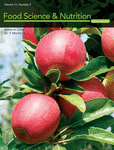
Effects of jujube (Ziziphus jujuba mill.) fruit extracts on oxidative stress: A systematic review and meta‐analysis of rodent studies
2024 May 22 Food Science & Nutrition Zhu D, Zhu Y, Tan H, Ding R, Dai Q, Du X, et al.
Animal Study Systematic Review Oxidative Stress Stress JujubeJujube fruit extracts significantly alleviate oxidative stress in rodent models, potentially offering a valuable dietary supplement against diseases linked to oxidative stress.
Research insights are moderated by the Research Hub team and offer an at-a-glance overview of interesting research findings.

2024 Nutrition Journal
Higher consumption of ultra-processed food by pregnant women was linked to an increased risk of infantile atopic dermatitis within the first year of life.
Cohort Study Eczema Ultra-Processed Foods
Association of maternal ultra-processed food consumption during pregnancy with atopic dermatitis in infancy: Korean Mothers and Children’s Environmental Health (MOCEH) study
Jang W, Kim M, Ha E, Kim H

2024 Scientific Reports
A combined Mediterranean, low-FODMAP diet along with partial enteral nutrition has shown promise in reducing ulcerative colitis activity and improving patients' quality of life.
Randomised Controlled Trial Low FODMAP Ulcerative Colitis
Effectiveness of a novel diet in attenuation of clinical activity of disease in patients with ulcerative colitis: a randomized, clinical trial
Narimani B, Sadeghi A, Daryani NE, Shahrokh S, Nilghaz M, Ghods M, et al.

2024 Nutrients
Carrageenan, a common food additive, potentially exacerbates Inflammatory Bowel Disease (IBD) symptoms by altering gut microbiota, inducing intestinal permeability, and triggering inflammation.
Review Article Carrageenan Inflammatory Bowel Disease
Carrageenan in the Diet: Friend or Foe for Inflammatory Bowel Disease?
Kimilu N, Gładyś-Cieszyńska K, Pieszko M, Mańkowska-Wierzbicka D, Folwarski M

2024 Food Science & Nutrition
Jujube fruit extracts significantly alleviate oxidative stress in rodent models, potentially offering a valuable dietary supplement against diseases linked to oxidative stress.
Animal Study Jujube Oxidative Stress Stress
Effects of jujube (Ziziphus jujuba mill.) fruit extracts on oxidative stress: A systematic review and meta‐analysis of rodent studies
Zhu D, Zhu Y, Tan H, Ding R, Dai Q, Du X, et al.

2024 Heliyon
Increased omega-3 intake significantly improves women's chances of pregnancy and fertilization rates.
Systematic Review Female Fertility IVF Omega-3 Fatty Acids
Effect of omega-3 supplements or diets on fertility in women: A meta-analysis
Trop-Steinberg S, Gal M, Azar Y, Kilav-Levin R, Heifetz EM
Review Articles
Review articles summarise and critically evaluate the current state of research on a specific topic or field by synthesising multiple primary research studies.

Carrageenan in the Diet: Friend or Foe for Inflammatory Bowel Disease?
2024 Jun 06 Nutrients Kimilu N, Gładyś-Cieszyńska K, Pieszko M, Mańkowska-Wierzbicka D, Folwarski M
Review Article Inflammatory Bowel Disease CarrageenanCarrageenan, a common food additive, potentially exacerbates Inflammatory Bowel Disease (IBD) symptoms by altering gut microbiota, inducing intestinal permeability, and triggering inflammation.

Effects of jujube (Ziziphus jujuba mill.) fruit extracts on oxidative stress: A systematic review and meta‐analysis of rodent studies
2024 May 22 Food Science & Nutrition Zhu D, Zhu Y, Tan H, Ding R, Dai Q, Du X, et al.
Animal Study Systematic Review Oxidative Stress Stress JujubeJujube fruit extracts significantly alleviate oxidative stress in rodent models, potentially offering a valuable dietary supplement against diseases linked to oxidative stress.

Effect of omega-3 supplements or diets on fertility in women: A meta-analysis
2024 Apr Heliyon Trop-Steinberg S, Gal M, Azar Y, Kilav-Levin R, Heifetz EM
Systematic Review Meta-Analysis IVF Female Fertility Omega-3 Fatty AcidsIncreased omega-3 intake significantly improves women's chances of pregnancy and fertilization rates.

Re-evaluation of dietary interventions in rheumatoid arthritis: can we improve patient conversations around food choices?
2024 Feb 20 Rheumatology International Sharma P, Brown S, Sokoya EM
Review Article Diet Rheumatoid ArthritisDespite diet being key in shaping gut microbiota, it surprisingly does not impact the treatment outcomes in individuals with Rheumatoid Arthritis.
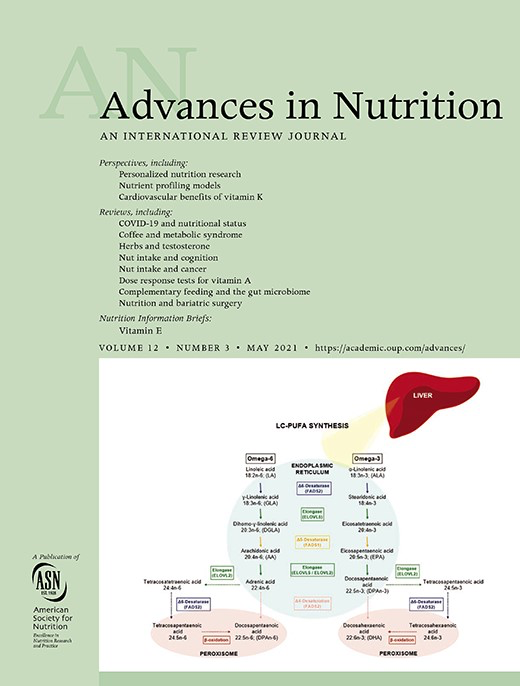
Nut Consumption and Fertility: a Systematic Review and Meta-Analysis
2024 Jan Advances in Nutrition Cardoso BR, Fratezzi I, Kellow NJ
Systematic Review Meta-Analysis Sperm Quality Nut Consumption Female Fertility Male Fertility Nuts NutRegular consumption of nuts improves sperm parameters such as motility, vitality, and morphology, potentially promoting successful reproductive outcomes in healthy males.
Clinical Trials
Clinical trials are research studies that involve people and are conducted to evaluate the safety and efficacy of new treatments or interventions, such as drugs, medical devices, or behavioural therapies.

Effectiveness of a novel diet in attenuation of clinical activity of disease in patients with ulcerative colitis: a randomized, clinical trial
2024 Jun 14 Scientific Reports Narimani B, Sadeghi A, Daryani NE, Shahrokh S, Nilghaz M, Ghods M, et al.
Randomised Controlled Trial Low FODMAP Ulcerative ColitisA combined Mediterranean, low-FODMAP diet along with partial enteral nutrition has shown promise in reducing ulcerative colitis activity and improving patients' quality of life.

A dietary intervention for postmenopausal hot flashes: A potential role of gut microbiome. An exploratory analysis
2023 Dec Complementary Therapies in Medicine Kahleova H, Holtz DN, Strom N, La Reau A, Kolipaka S, Schmidt N, et al.
Randomised Controlled Trial Hot Flushes Plant-Based Diet Low Fat Diet Gut Microbiota SoybeanChanges in gut microbiome associated with a low-fat, vegan diet and cooked soybeans may reduce the frequency and severity of postmenopausal hot flashes.

Effects of an Unripe Avocado Extract on Glycaemic Control in Individuals with Obesity: A Double-Blinded, Parallel, Randomised Clinical Trial
2023 Nov 17 Nutrients Zhao L, Ingram DK, Gumpricht E, De Paoli T, Teong XT, Liu B, et al.
Randomised Controlled Trial Glucose Blood Sugar AvocadoConsumption of unripe avocado extract in the diet may lower postprandial insulin levels in overweight adults with previously elevated insulin levels.
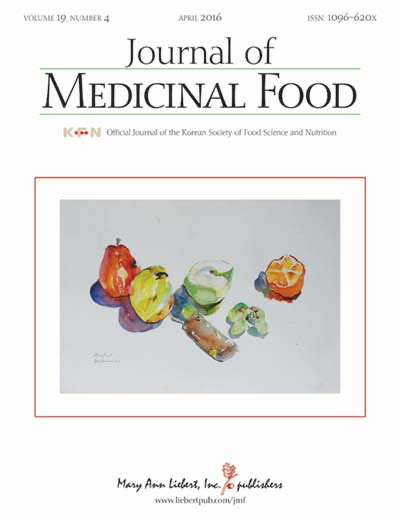
A 4-Week Pecan-Enriched Diet Improves Postprandial Lipid Peroxidation in Aging Adults
2023 Sep 01 Journal of Medicinal Food Cogan B, Pearson RC, Jenkins NT, Paton CM, Cooper JA
Randomised Controlled Trial Oxidative Stress Pecan Postprandial Oxidative StressDaily consumption of pecans for a month can help protect against post-meal oxidative stress in aging adults.

Pomegranate (Punica granatum L.) peel extract ameliorates metabolic syndrome risk factors in patients with non-alcoholic fatty liver disease: a randomized double-blind clinical trial
2023 Aug 22 Nutrition Journal Barghchi H, Milkarizi N, Belyani S, Norouzian Ostad A, Askari VR, Rajabzadeh F, et al.
Randomised Controlled Trial NAFLD Pomegranate PeelPomegranate peel extract, along with a calorie deficit diet, could improve risk factors of metabolic syndrome and reduce fatty liver in patients with non-alcoholic fatty liver disease.
Study Protocols
Published study protocols are detailed plans that outline the objectives, methodology, statistical analyses, and organisation of a research study that have been made publicly available for others to review and use as a reference.

Efficacy of Bushen Huatan Decoction combined with Baduanjin in the treatment of polycystic ovary syndrome with insulin resistance (IR-PCOS), kidney deficiency and phlegm dampness: study protocol for a randomized controlled trial
2021 Nov 7 BMC Complementary Medicine and Therapies Qian, H., Xu, W., Cui, L. et al.
From the perspective of TCM syndrome differentiation and treatment, kidney deficiency and phlegm dampness are mainly responsible for the pathogenesis of IR-PCOS, so the central focus of treatment should be on tonifying the kidney, invigorating the spleen and reducing phlegm, while paying attention to lifestyle modification in the course of treatment. It is worth noting that patients with IR-PCOS appear to have a higher risk of irregular diet and lifestyle.
Study Protocol
Feasibility and Acceptability of a Healthy Nordic Diet Intervention for the Treatment of Depression: A Randomized Controlled Pilot Trial
2021 Mar 10 Nutrients Sabet JA, Ekman MS, Lundvall AS, Risérus U, Johansson U, Öström , et al.
This pilot study demonstrates the feasibility and acceptability of an RCT comparing a healthy Nordic diet with a control diet in individuals with depression, in which all meals are provided to both groups. This study lays the foundation for a future 8-week RCT in which the aim will be to investigate whether a healthy Nordic diet improves depressive symptoms, as well as the biological mechanisms underlying this effect and potential factors that may predict treatment response.
Study Protocol Randomised Controlled Trial Depression
Efficacy and safety of Cortex Eucommiae (Eucommia ulmoides Oliver) extract in subjects with mild osteoarthritis
2019 Dec Medicine Ahn HY, Cho JH, Nam D, Kim EJ, Ha IH
This clinical trial is expected to provide evidence of the efficacy and safety of Cortex Eucommiae (CE; Eucommia ulmoides Oliver) extract as a treatment for mild osteoarthritis (OA).
Study Protocol OsteoarthritisPresentation Slides

Cohort Study
Higher consumption of ultra-processed food by pregnant women was linked to an increased risk of infantile atopic dermatitis within the first year of life.
Jang W, Kim M, Ha E, Kim H

Randomised Controlled Trial
A combined Mediterranean, low-FODMAP diet along with partial enteral nutrition has shown promise in reducing ulcerative colitis activity and improving patients' quality of life.
Narimani B, Sadeghi A, Daryani NE, Shahrokh S, Nilghaz M, Ghods M, Shafiee M, Shahparvari MR, Hekmatdoost A

Review Article
Carrageenan, a common food additive, potentially exacerbates Inflammatory Bowel Disease (IBD) symptoms by altering gut microbiota, inducing intestinal permeability, and triggering inflammation.
Kimilu N, Gładyś-Cieszyńska K, Pieszko M, Mańkowska-Wierzbicka D, Folwarski M

Animal Study
Jujube fruit extracts significantly alleviate oxidative stress in rodent models, potentially offering a valuable dietary supplement against diseases linked to oxidative stress.
Zhu D, Zhu Y, Tan H, Ding R, Dai Q, Du X, Liu Y, Yue R

Systematic Review
Increased omega-3 intake significantly improves women's chances of pregnancy and fertilization rates.
Trop-Steinberg S, Gal M, Azar Y, Kilav-Levin R, Heifetz EM
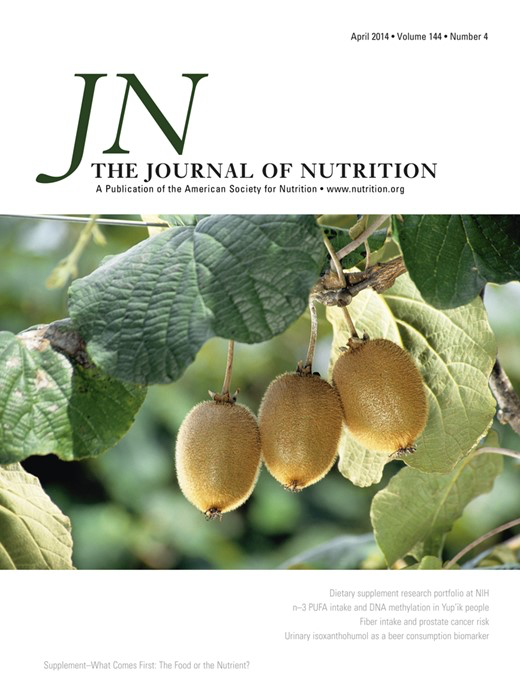
Cohort Study
Greater intake of blueberries considerably decreases the risk of age-related macular degeneration, while a remarkable dietary intake of anthocyanins inversely correlates with cataract incidents.
Sesso HD, Rautiainen S, Park SJ, Kim E, Lee IM, Glynn RJ, Buring JE, Christen WG

Review Article
Despite diet being key in shaping gut microbiota, it surprisingly does not impact the treatment outcomes in individuals with Rheumatoid Arthritis.
Sharma P, Brown S, Sokoya EM

Systematic Review
Regular consumption of nuts improves sperm parameters such as motility, vitality, and morphology, potentially promoting successful reproductive outcomes in healthy males.
Cardoso BR, Fratezzi I, Kellow NJ
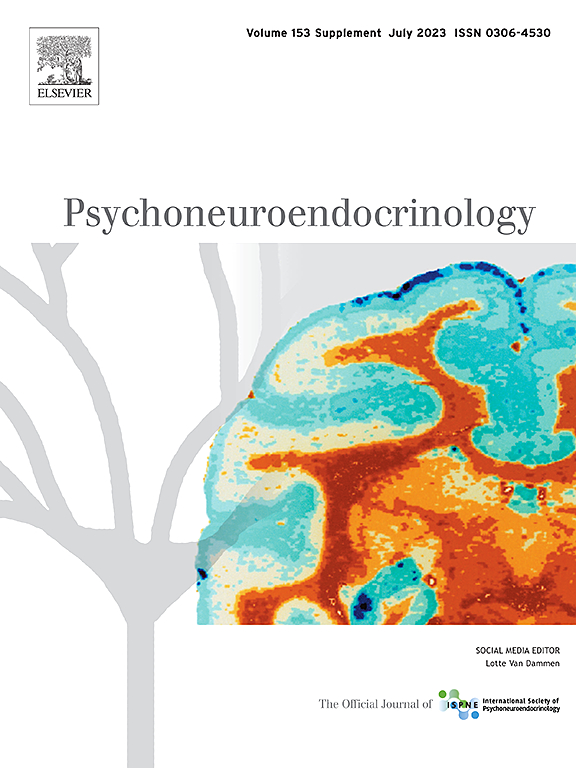
Review Article
Peptic ulcers may be prevented and cured by well-chewed food rich in vegetable fibers and fermented milk products, which increase protective salivary mucus and decrease damaging bile flow.
Malhotra SL

Randomised Controlled Trial
Changes in gut microbiome associated with a low-fat, vegan diet and cooked soybeans may reduce the frequency and severity of postmenopausal hot flashes.
Kahleova H, Holtz DN, Strom N, La Reau A, Kolipaka S, Schmidt N, Hata E, Znayenko-Miller T, Holubkov R, Barnard ND

Randomised Controlled Trial
Consumption of unripe avocado extract in the diet may lower postprandial insulin levels in overweight adults with previously elevated insulin levels.
Zhao L, Ingram DK, Gumpricht E, De Paoli T, Teong XT, Liu B, Mori TA, Heilbronn LK, Roth GS
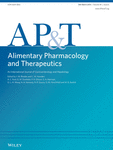
Review Article
Fruits, especially kiwifruits, and rye bread can enhance bowel movements and help manage chronic constipation better than conventional dietary methods.
Van Der Schoot A, Katsirma Z, Whelan K, Dimidi E

Animal Study
A combination of soybean germ extract and a probiotic significantly improved menopause-related conditions and mood in an ovariectomized rat model.
Lee SH, Lim TJ, Yun EJ, Kim KH, Lim S

Systematic Review
Intermittent fasting may potentially influence autoimmune diseases like type 1 diabetes and rheumatoid arthritis, by reducing inflammation and supporting cellular repair mechanisms.
Barati M, Ghahremani A, Namdar Ahmadabad H

Randomised Controlled Trial
Daily consumption of pecans for a month can help protect against post-meal oxidative stress in aging adults.
Cogan B, Pearson RC, Jenkins NT, Paton CM, Cooper JA

Animal Study
Fermented Pueraria lobata root extract and Glycine max extract showed estrogen-like activities, reducing depressive symptoms in menopausal mice but not increasing female cancer risks.
Ha J, Jang HM, Choi I

Randomised Controlled Trial
Pomegranate peel extract, along with a calorie deficit diet, could improve risk factors of metabolic syndrome and reduce fatty liver in patients with non-alcoholic fatty liver disease.
Barghchi H, Milkarizi N, Belyani S, Norouzian Ostad A, Askari VR, Rajabzadeh F, Goshayeshi L, Ghelichi Kheyrabadi SY, Razavidarmian M, Dehnavi Z, Sobhani SR, Nematy M
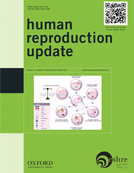
Review Article
The Mediterranean diet and reduced intake of trans fatty acids, saturated fatty acids, and discretionary foods like fast food and sugar-sweetened beverages may improve fertility rates.
Alesi S, Habibi N, Silva TR, Cheung N, Torkel S, Tay CT, Quinteros A, Winter H, Teede H, Mousa A, Grieger JA, Moran LJ

Systematic Review
Natural calcium-rich mineral waters offer a bioavailable calcium source, beneficial for bone health, cardiovascular function, weight management, and overall well-being.
Pop MS, Cheregi DC, Onose G, Munteanu C, Popescu C, Rotariu M, Turnea MA, Dograru G, Ionescu EV, Oprea D, Iliescu MG, Minea M, Stanciu LE, Silișteanu SC, Oprea C
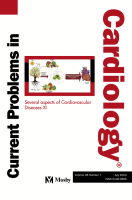
Systematic Review
Oat consumption can significantly improve lipid profiles, particularly reducing total cholesterol and LDL cholesterol, with potential positive effects on triglycerides and HDL cholesterol under certain conditions.
Amerizadeh A, Ghaheh HS, Vaseghi G, Farajzadegan Z, Asgary S

Review Article
Nutrition, particularly an anti-inflammatory Mediterranean diet supplemented with oily fish and omega-3 supplements, can potentially reduce inflammation and improve symptoms of rheumatoid arthritis.
Nikiphorou E, Philippou E
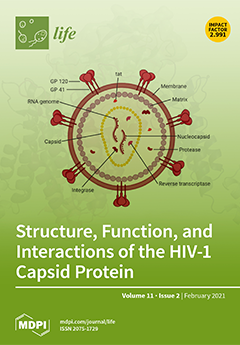
Cohort Study
Monounsaturated fats, omega-3 polyunsaturated fatty acids, and a suitable eicosapentaenoic acid to arachidonic acid ratio can be used in diet therapy to improve quality of life by reducing pain and inflammation.
Marcinkowska A, Górnicka M

Cohort Study
The Mediterranean diet, rich in organic vegetables, fruits, whole grains, and healthy fats, can markedly improve male fertility by increasing testosterone levels and reducing sperm DNA fragmentation.
Corsetti V, Notari T, Montano L
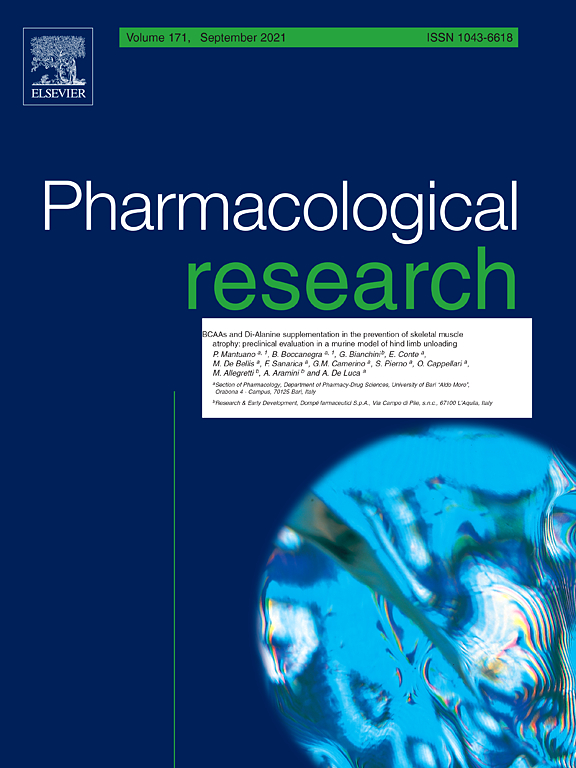
Review Article
Consumption of tea and coffee may possibly provide anti-inflammatory effects, contributing to reduced cardiovascular risk and mortality.
Surma S, Sahebkar A, Banach M
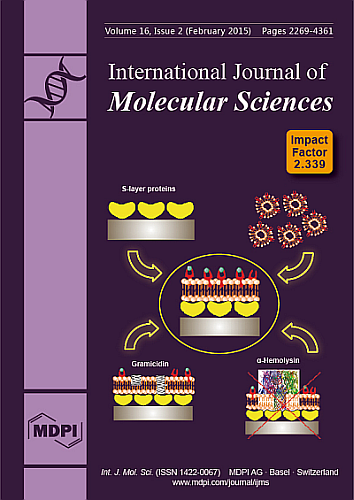
Review Article
Magnesium, essential for harmonising nerve signals and preserving the blood-brain barrier, may be linked to neurodegenerative disorders when its balance is disrupted.
Maier JAM, Locatelli L, Fedele G, Cazzaniga A, Mazur A
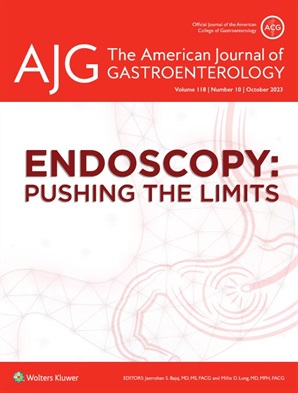
Randomised Controlled Trial
Consuming green kiwifruits is associated with a clinically relevant increase of ≥ 1.5 complete spontaneous bowel movements per week in those experiencing constipation.
Gearry R, Fukudo S, Barbara G, Kuhn-Sherlock B, Ansell J, Blatchford P, Eady S, Wallace A, Butts C, Cremon C, Barbaro MR, Pagano I, Okawa Y, Muratubaki T, Okamoto T, Fuda M, Endo Y, Kano M, Kanazawa M, Nakaya N, Nakaya K, Drummond L
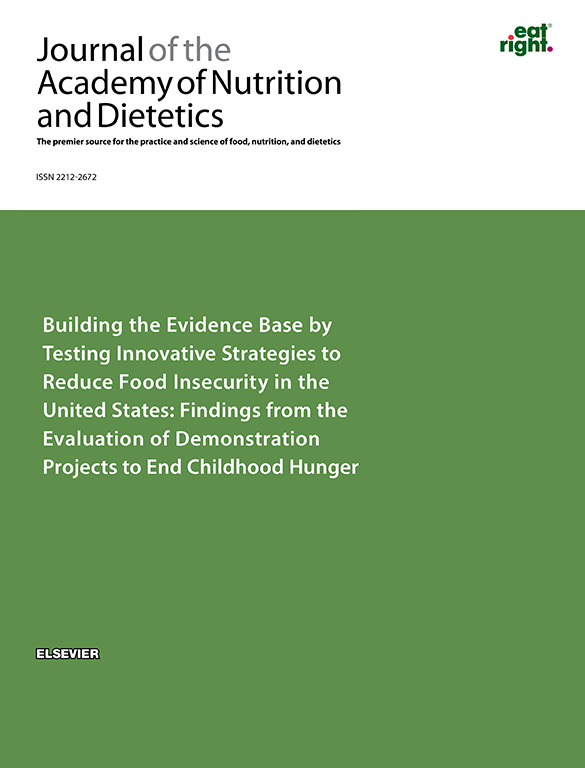
Systematic Review
Avocado consumption may lead to a reduction in total cholesterol and low-density lipoprotein cholesterol levels in people with high cholesterol without impacting body weight.
James-Martin G, Brooker PG, Hendrie GA, Stonehouse W

Randomised Controlled Trial
Drinking pomegranate juice and sumac can help reduce symptoms in outpatients diagnosed with COVID-19, alongside standard treatment.
Forouzanfar F, Ahmadpoor M, Farahi MM, Hadianfar A, Sahebkar A, Esmaily H, Nematy M, Rakhshandeh H

Randomised Controlled Trial
Fasting followed by a plant-based diet and a standard diet both positively affected rheumatoid arthritis disease activity and cardiovascular risk factors, without discernible differences.
Hartmann AM, Dell'Oro M, Spoo M, Fischer JM, Steckhan N, Jeitler M, Häupl T, Kandil FI, Michalsen A, Koppold-Liebscher DA, Kessler CS

Meta-Analysis
Consumption of broccoli sprouts significantly lowers blood pressure, potentially due to properties of sulforaphane.
Houshialsadat Z, Mirmiran P, Zare-Javid A, Bahadoran Z, Houghton C
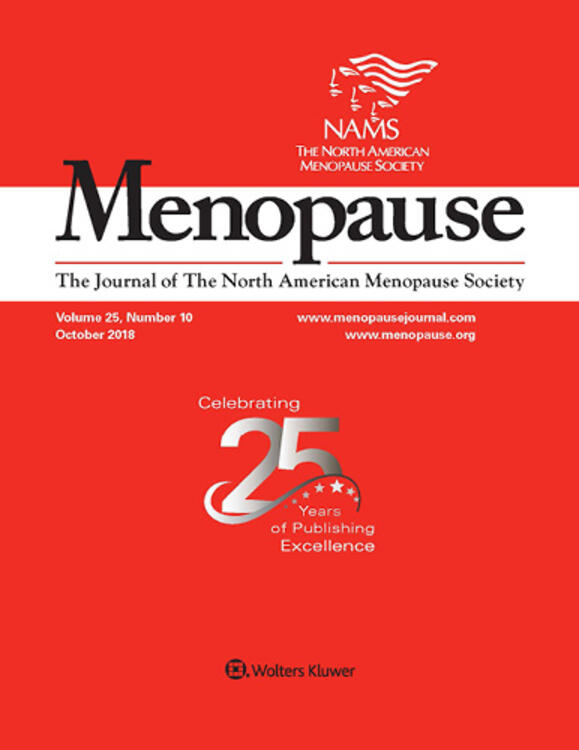
Randomised Controlled Trial
A diet low in fat, vegan, and inclusive of daily cooked soybeans significantly reduces the frequency and severity of hot flashes in postmenopausal women.
Barnard ND, Kahleova H, Holtz DN, Znayenko-Miller T, Sutton M, Holubkov R, Zhao X, Galandi S, Setchell KDR
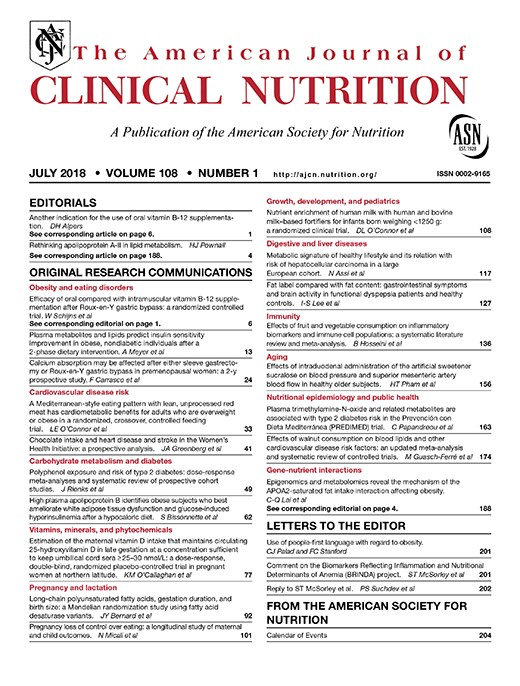
Randomised Controlled Trial
A daily intake of 50 grams of prunes can maintain hip bone density in postmenopausal women, potentially reducing hip fracture risks.
De Souza MJ, Strock NCA, Williams NI, Lee H, Koltun KJ, Rogers C, Ferruzzi MG, Nakatsu CH, Weaver C

Experimental Study
Carotenoid-rich foods like orange carrots were more effective in mitigating Non-alcoholic fatty liver disease than those with low carotenoid levels.
Balbuena E, Cheng J, Eroglu A

Systematic Review
Higher consumption of dairy foods relates to a decreased risk of endometriosis, while increased intake of red meat and certain fats elevates the risk.
Arab A, Karimi E, Vingrys K, Kelishadi MR, Mehrabani S, Askari G

Review Article
Adzuki beans' high lysine content, antioxidative, antibacterial, and anti-inflammatory properties highlight their dual-use as a nutritious food source and a therapeutic agent for various diseases.
Wang Y, Yao X, Shen H, Zhao R, Li Z, Shen X, Wang F, Chen K, Zhou Y, Li B, Zheng X, Lu S
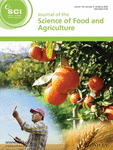
Review Article
Moderate consumption of beer, due to its melatonin content, can beneficially contribute to healthy diets and improve quality of life in certain physiological conditions.
Maldonado MD, Romero‐Aibar J, Calvo JR

Systematic Review
Prunes demonstrate potential as a dietary intervention to protect against, prevent and even reverse bone loss in osteoporosis, particularly in postmenopausal women.
Damani JJ, De Souza MJ, VanEvery HL, Strock NCA, Rogers CJ

Randomised Controlled Trial
Dietary modifications, combining increased intake of anti-inflammatory foods and decreased intake of pro-inflammatory foods, effectively impede subclinical inflammation in ulcerative colitis patients in clinical remission.
Keshteli A, Valcheva R, Nickurak C, Park H, Mandal R, van Diepen K, Kroeker K, van Zanten S, Halloran B, Wishart D, Madsen K, Dieleman L
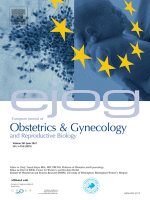
Systematic Review
Increased intake of omega-3 can enhance the quality of oocyte and embryo, thereby potentially improving the success rate of assisted reproductive techniques.
Abodi M, De Cosmi V, Parazzini F, Agostoni C

Randomised Controlled Trial
Despite previous suggestions, daily avocado consumption for six months did not decrease visceral adipose tissue volume in individuals with elevated waist circumference.
Lichtenstein AH, Kris‐Etherton PM, Petersen KS, Matthan NR, Barnes S, Vitolins MZ, Li Z, Sabaté J, Rajaram S, Chowdhury S, Davis KM, Galluccio J, Gilhooly CH, Legro RS, Li J, Lovato L, Perdue LH, Petty G, Rasmussen AM, Segovia‐Siapco G, Sirirat R, Su

Experimental Study
Goji berry supplementation can potentially improve gut microbiota and prevent liver injury caused by acute alcohol consumption.
Guo L, Guan Q, Duan W, Ren Y, Zhang XJ, Xu HY, Shi JS, Wang FZ, Lu R, Zhang HL, Xu ZH, Li H, Geng Y
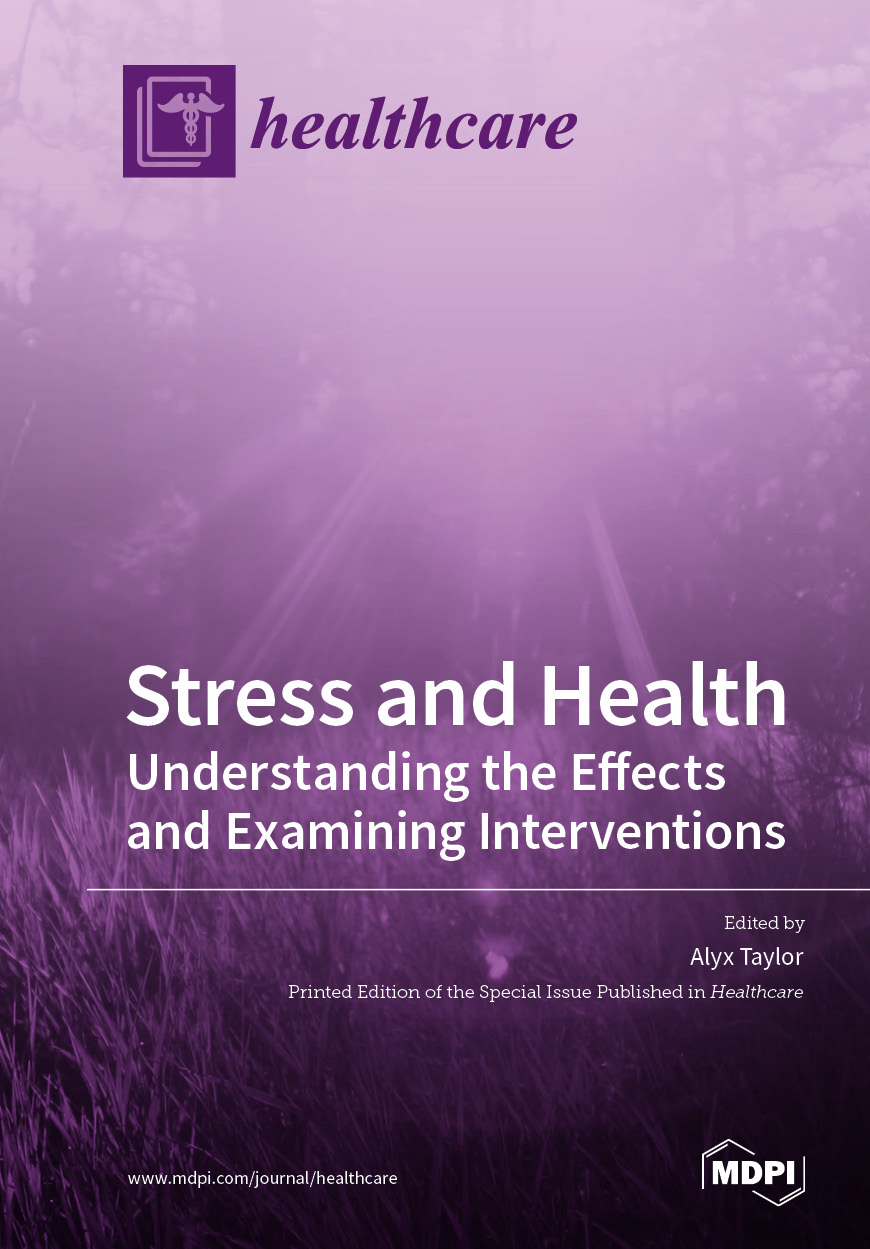
Systematic Review
Acupuncture showed a significant effect in the management of fibromyalgia patients. It reduced pain, depression, and enhanced quality of life.
Almutairi NM, Hilal FM, Bashawyah A, Dammas FA, Yamak Altinpulluk E, Hou JD, Lin JA, Varrassi G, Chang KV, Allam AES

Cohort Study
Moderate consumption of carrots is associated with a lower incidence of colorectal cancer, implying a potential cancer prevention effect in a certain dose-range.
Jiang Z, Chen H, Li M, Wang W, Fan C, Long F

Animal Study
Cooked adzuki beans contribute notably to preventing obesity and regulating gut microbiota composition, while also alleviating systemic inflammation and metabolic disorders.
Zhao Q, Liu Z, Zhu Y, Wang H, Dai Z, Yang X, Ren X, Xue Y, Shen Q
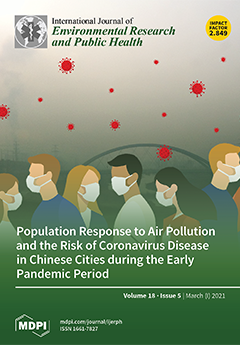
Systematic Review
Dietary strategies, such as caloric restriction and ketogenic diets, can alleviate chronic pain and enhance quality of life.
Cuevas-Cervera M, Perez-Montilla J, Gonzalez-Muñoz A, Garcia-Rios M, Navarro-Ledesma S

Animal Study
Certain natural mineral waters, when combined with a low-calorie diet, effectively reduce cholesterol and glucose levels in mice with metabolic syndrome.
Narciso L, Martinelli A, Torriani F, Frassanito P, Bernardini R, Chiarotti F, Marianelli C
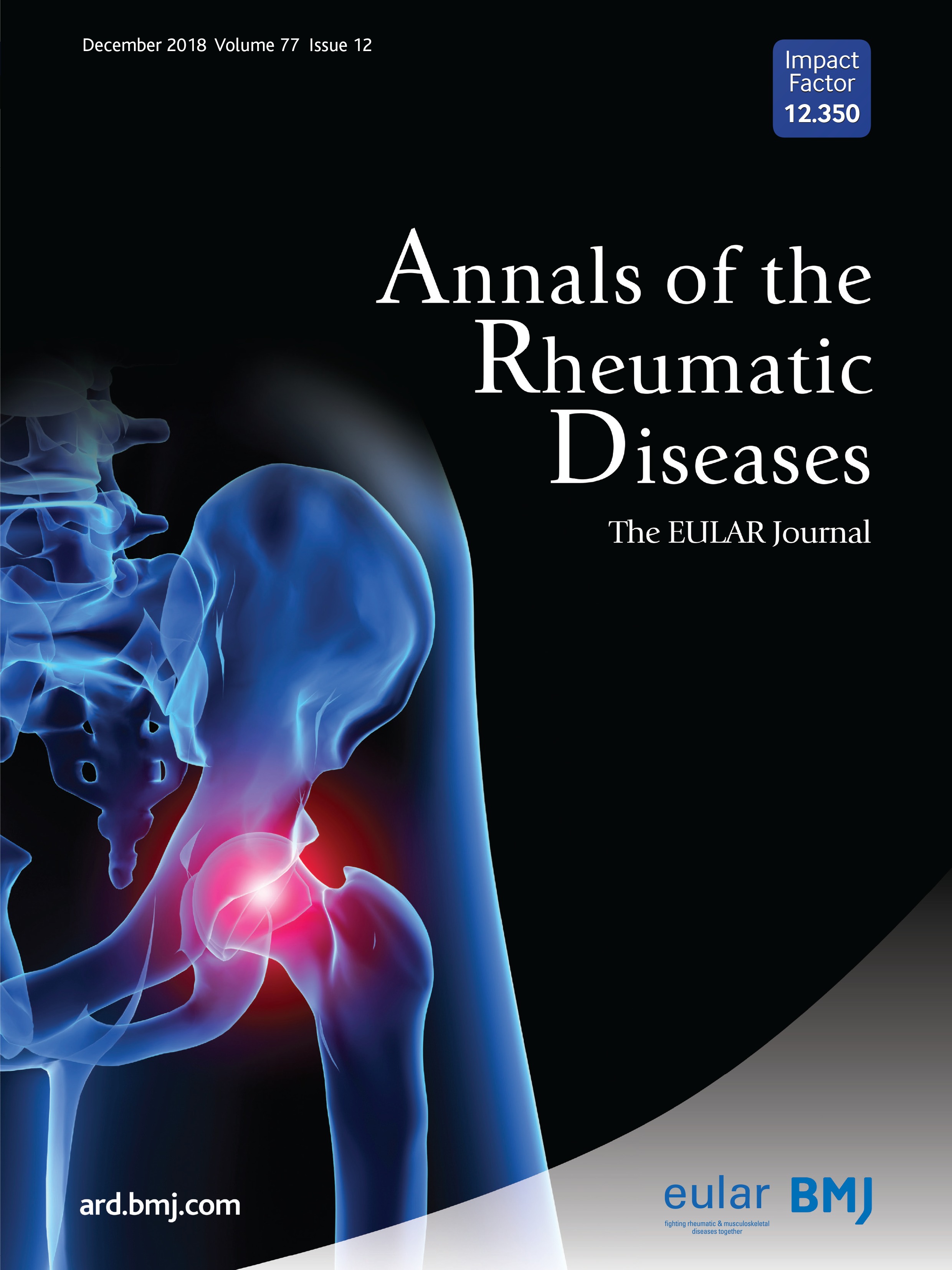
Randomised Controlled Trial
Fasting followed by a plant-based diet positively impacts disease activity and cardiovascular risk factors in rheumatoid arthritis patients.
Hartmann AM, Kandil FI, Steckhan N, Häupl T, Kessler CS, Michalsen A, Koppold-Liebscher DA

Review Article
Extra virgin olive oil (EVOO) has beneficial health properties and can promote cardiovascular health, lipoprotein metabolism, and diabetes management in clinical nutrition.
Jiménez-Sánchez A, Martínez-Ortega AJ, Remón-Ruiz PJ, Piñar-Gutiérrez A, Pereira-Cunill JL, García-Luna PP

Review Article
Dietary supplements are found to be a promising complementary treatment for endometriosis, thanks to their anti-inflammatory, anti-oxidant, and immune modulatory characteristics.
Yalçın Bahat P, Ayhan I, Üreyen Özdemir E, İnceboz Ümit, Oral E

Systematic Review
Higher consumption of coffee and specifically decaffeinated coffee raises the risk of rheumatoid arthritis, while caffeinated coffee, tea and caffeine intake doesn't.
Asoudeh F, Dashti F, Jayedi A, Hemmati A, Fadel A, Mohammadi H

Systematic Review
Consumption of sesame seeds and its products positively influences human glucose metabolism, potentially making it a beneficial addition to glucose-lowering diets.
Sohouli MH, Haghshenas N, Hernández‐Ruiz , Shidfar F
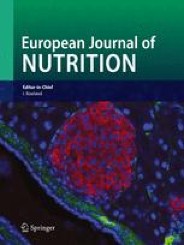
Meta-Analysis
Oat supplementation interventions can improve cardiovascular health markers among adults, regardless of their diet or metabolic conditions.
Llanaj E, Dejanovic GM, Valido E, Bano A, Gamba M, Kastrati L, Minder B, Stojic S, Voortman T, Marques-Vidal P, Stoyanov J, Metzger B, Glisic M, Kern H, Muka T
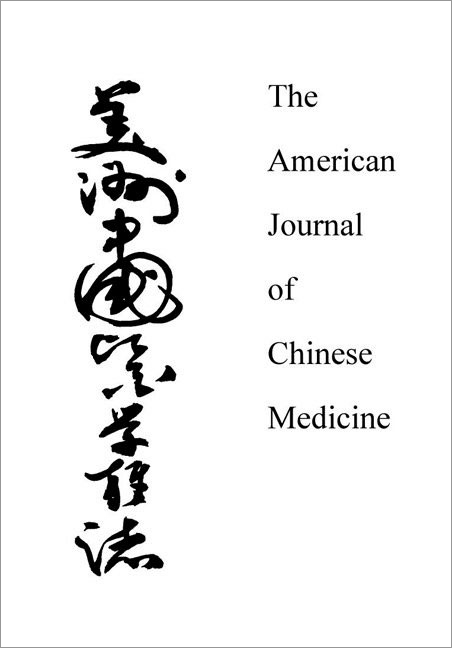
Systematic Review
Fresh and dried ginger displays key botanical, phytochemical and ethnopharmacological differences, which are fundamental for their specific clinical uses in treating gastrointestinal issues.
Lai W, Yang S, Lin X, Zhang X, Huang Y, Zhou J, Fu C, Li R, Zhang Z

Clinical Study
Consumption of pumpkin seeds enhances the nutritional status and improves the attention deficit of deaf female children exhibiting ADHD symptoms.
Ataya H

Review Article
The ketogenic diet, by reducing carbohydrate intake, shows potential in weight loss, insulin requirement reduction, and mitigation of inflammatory symptoms in patients with inflammatory arthritis.
Ciaffi J, Mitselman D, Mancarella L, Brusi V, Lisi L, Ruscitti P, Cipriani P, Meliconi R, Giacomelli R, Borghi C, Ursini F

Meta-Analysis
Anti-inflammatory diets can lead to significantly lower levels of pain than regular diets for those with rheumatoid arthritis.
Schönenberger KA, Schüpfer AC, Gloy VL, Hasler P, Stanga Z, Kaegi-Braun N, Reber E
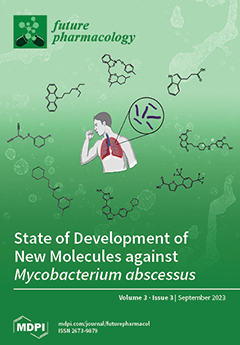
Systematic Review
Eating kiwifruits improves bowel movements and decreases stool consistency, also providing anti-inflammatory and antioxidant benefits to the gut barrier.
Antonelli M, Donelli D
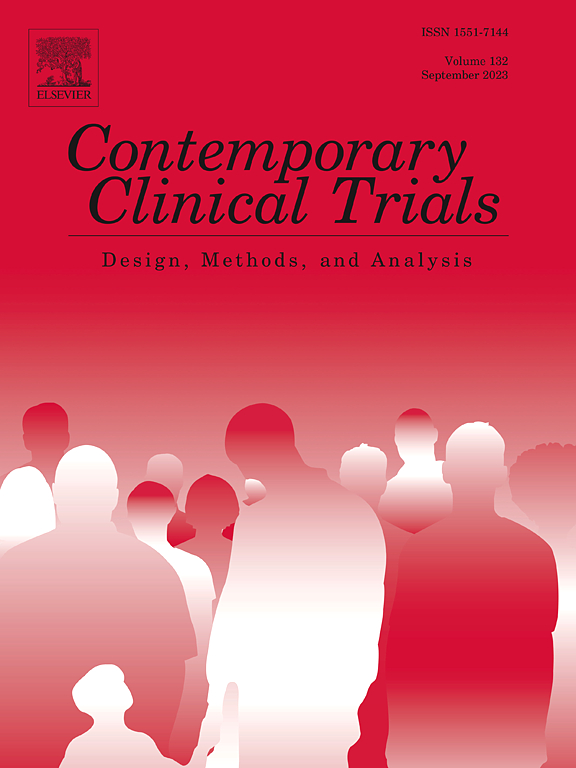
Randomised Controlled Trial
Consumption of one avocado per day can potentially reduce visceral adiposity and subsequently decrease the risk of diabetes and cardiovascular disease.
Reboussin DM, Kris-Etherton PM, Lichtenstein AH, Li Z, Sabate J, Matthan NR, Petersen K, Rajaram S, Vitolins M, Ford N

Experimental Study
Tiger nut and walnut supplementation in diets can improve testosterone levels and help control vasoconstriction, potentially benefiting hypertensive individuals.
Olabiyi AA, Morsch VM, Oboh G, Schetinger MRC

Systematic Review
Almond-based diets may be effective in promoting short-chain fatty acid-producing bacteria and lowering glycated haemoglobin and body mass index in patients with type 2 diabetes compared with control.
Ojo O, Wang XH, Ojo OO, Adegboye ARA
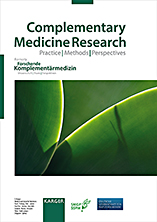
Systematic Review
Soy food intake, particularly fermented soy products, appear to have a protective effect on fracture risk among Asian women, especially in early menopause.
Akhavan Zanjani M, Rahmani S, Mehranfar S, Zarrin M, Bazyar H, Moradi Poodeh B, Zare Javid A, Hosseini SA, Sadeghian M

Animal Study
Adzuki beans, when added to a high-fat diet, lessen obesity, improve liver function, enhance insulin sensitivity, and balance gut microbiota.
Zhao Q, Hou D, Fu Y, Xue Y, Guan X, Shen Q
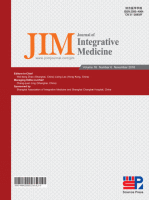
Animal Study
Shen Ling Bai Zhu San was found to inhibit inflammatory damage in nonalcoholic fatty liver disease, thus offering potential as a preventive and therapeutic treatment.
Pan M, Zheng C, Deng Y, Tang K, Nie H, Xie J, Liu D, Tu G, Yang Q, Zhang Y

Review Article
Coffee consumption may contribute to the prevention of several inflammatory diseases and types of cancer, with reduced mortality risk deemed safe up to 400mg of caffeine per day.
Barrea L, Pugliese G, Frias-Toral E, El Ghoch M, Castellucci B, Chapela SP, Carignano MA, Laudisio D, Savastano S, Colao A, Muscogiuri G

Animal Study
Omega-3 fatty acids found in selected fish oils, particularly smoked eel, effectively managed dyslipidemia and reduced cardiovascular disease risk factors.
Kontostathi M, Isou S, Mostratos D, Vasdekis V, Demertzis N, Kourounakis A, Vitsos A, Kyriazi M, Melissos D, Tsitouris C, Karalis E, Klamarias L, Dania F, Papaioannou GT, Roussis V, Polychronopoulos E, Anastassopoulou J, Theophanides T, Rallis MC, Black H

Review Article
Almonds can support colonic microbiota health by promoting microflora richness and diversity, increasing the ratio of symbiotic to pathogenic microflora, and concentrations of health-promoting colonic bioactives.
Dreher ML

Review Article
Recent systematic reviews and meta-analyses of nut RCTs showed that almonds were the only nut that had a small but significant decrease in both mean body mass and fat mass, compared to control diets.
Dreher ML
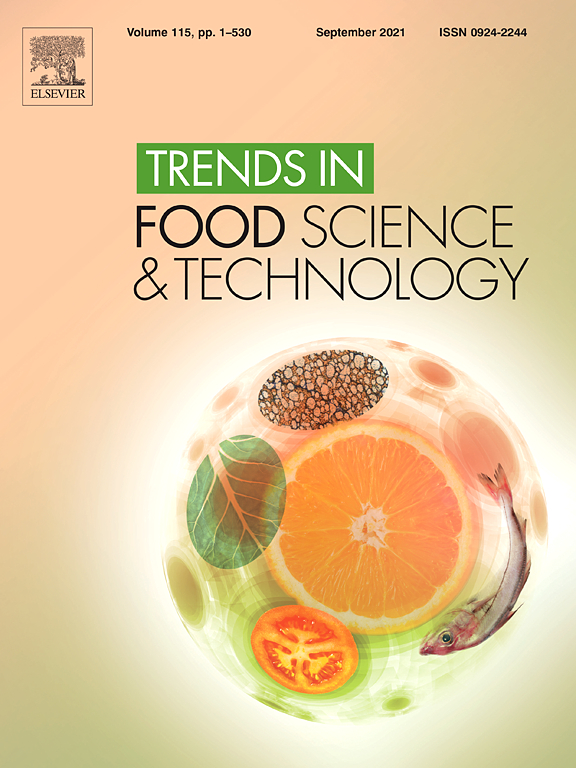
Review Article
Coconut oil has potential therapeutic value in treating Alzheimer's disease by suppressing neuro-inflammation, reversing neurodegeneration, and inhibiting secretion of harmful peptides.
Ramesh SV, Krishnan V, Praveen S, Hebbar KB
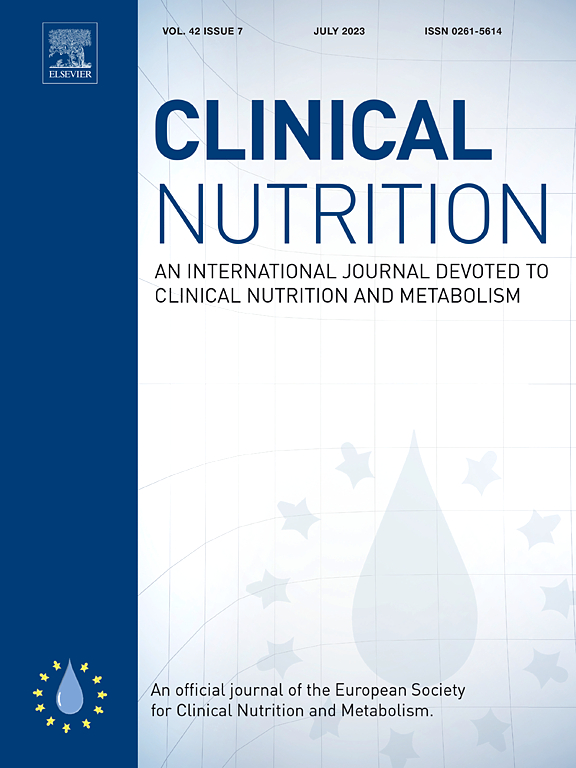
Randomised Controlled Trial
Eating sardines twice a week for a year significantly reduces the risk of developing type 2 diabetes in prediabetic individuals aged 65 and above.
Díaz-Rizzolo DA, Serra A, Colungo C, Sala-Vila A, Sisó-Almirall A, Gomis R

Randomised Controlled Trial
A one-year, sardine-enriched diet in an elderly population with pre-diabetes exerts a greater protective effect against developing type 2 diabetes and cardiovascular events.
Díaz-Rizzolo DA, Serra A, Colungo C, Sala-Vila A, Sisó-Almirall A, Gomis R

Randomised Controlled Trial
Adding oat bran to the diet of pregnant women with gestational diabetes can help significantly reduce their fasting and postprandial blood glucose levels.
Barati Z, Iravani M, Karandish M, Haghighizadeh MH, Masihi S
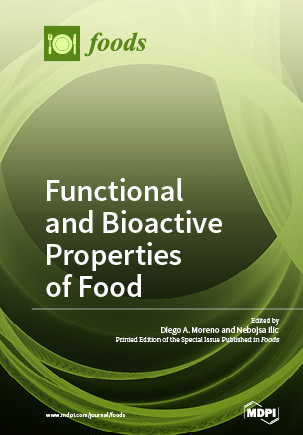
Animal Study
Traditional fermented products made from soybeans and rice, commonly consumed in the Japanese diet, show significant potential in preventing the progression of fatty liver disease.
Kanno R, Koshizuka T, Miyazaki N, Kobayashi T, Ishioka K, Ozaki C, Chiba H, Suzutani T

Randomised Controlled Trial
Enriching a regular diet with oat β-glucan can improve glycemic control, augment feelings of fullness, and positively modulate gut microbiota in individuals with type-2 diabetes.
Pino JL, Mujica V, Arredondo M
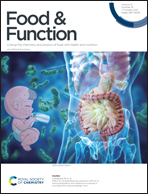
Clinical Study
Consumption of blueberries can alter levels of certain beneficial compounds in the blood, potentially contributing to improved cognitive function in older adults.
Rutledge GA, Sandhu AK, Miller MG, Edirisinghe I, Burton-Freeman BB, Shukitt-Hale B

Systematic Review
Almond intake significantly changed the concentrations of triglycerides, total cholesterol and low-density lipoproteins
Asbaghi O, Moodi V, Hadi A, Eslampour E, Shirinbakhshmasoleh M, Ghaedi E, Miraghajani M

Randomised Controlled Trial
DKB114, a mixture of Linn flower extract, effectively reduces serum uric acid level, suggesting its potential as a dietary supplement for hyperuricemia treatment.
Park YH, Kim DH, Lee JS, Jeong HI, Lee KW, Kang TH

Randomised Controlled Trial
Daily consumption of tart cherry juice may reduce processes involved in accelerated atherogenesis, potentially decreasing the risk of cardiovascular diseases.
Johnson SA, Navaei N, Pourafshar S, Jaime SJ, Akhavan NS, Alvarez-Alvarado S, Proaño GV, Litwin NS, Clark EA, Foley EM, George KS, Elam ML, Payton ME, Arjmandi BH, Figueroa A
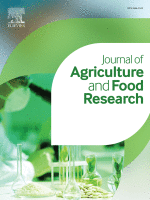
ANOVA and multivariate analysis indicated that 18 food components have significant effects on cold/hot property of food and vitamins play an important role in food cold/hot properties.
A. Xie, H. Huang, F. Kong
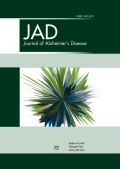
Clinical Study
High phenolic early harvest extra virgin olive oil shows notable improvement in cognitive function compared to a moderate phenolic version and the Mediterranean diet alone.
Tsolaki M, Lazarou E, Kozori M, Petridou N, Tabakis I, Lazarou I, Karakota M, Saoulidis I, Melliou E, Magiatis P
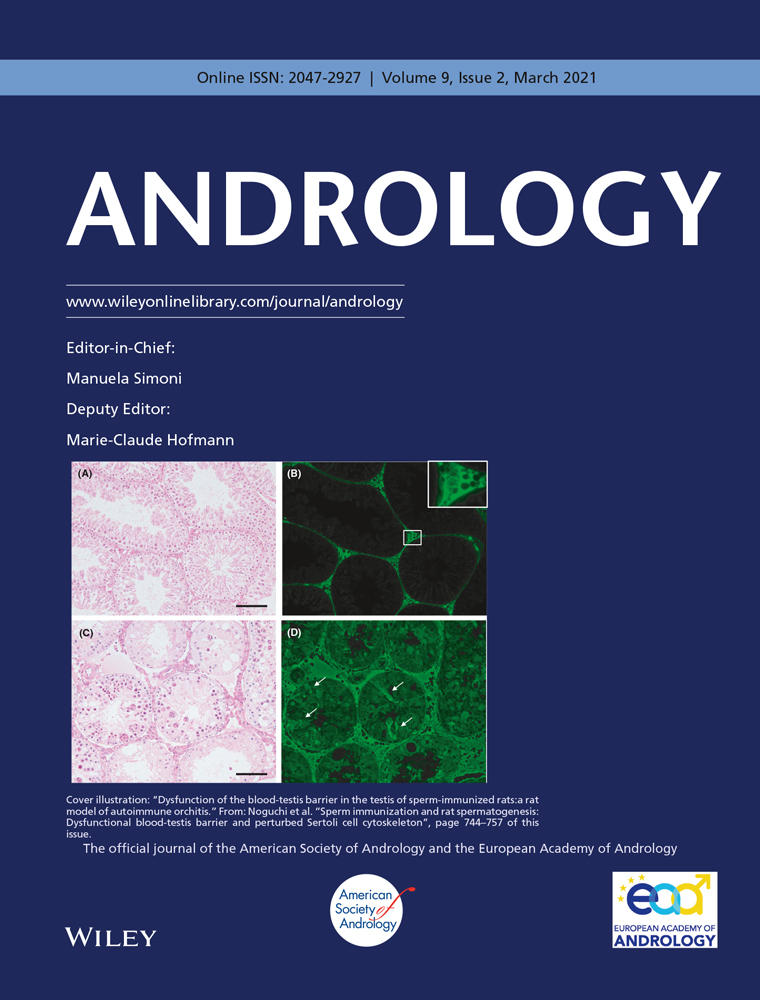
Randomised Controlled Trial
Incorporating tree nuts into a Western-style diet subtly modifies specific DNA methylation regions within sperm, thereby showing parts of the sperm epigenome can respond to dietary changes.
Salas‐Huetos A, James ER, Salas‐Salvadó J, Bulló M, Aston KI, Carrell DT, Jenkins TG
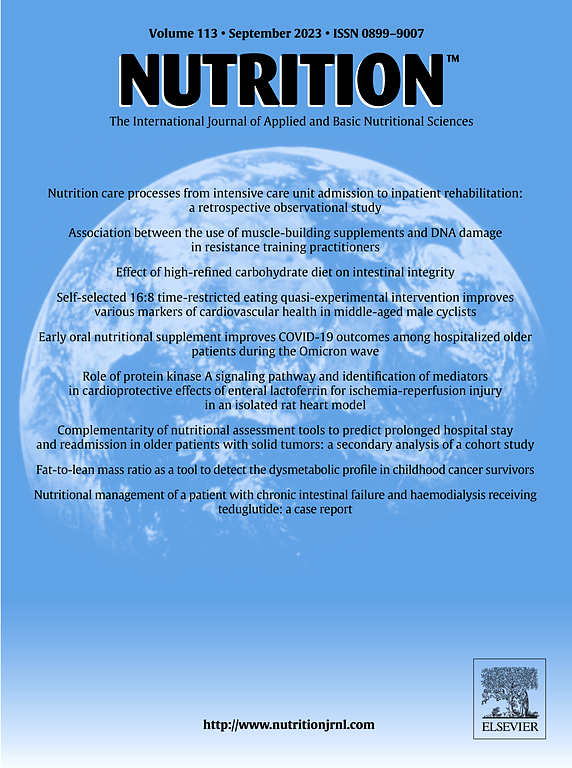
Meta-Analysis
Intermittent fasting and energy-restricted diets may decrease inflammatory markers, especially in overweight and obese individuals, but have no impact on the levels of certain proteins involved in inflammation.
Wang X, Yang Q, Liao Q, Li M, Zhang P, Santos HO, Kord-Varkaneh H, Abshirini M
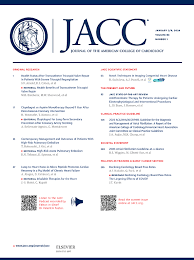
Randomised Controlled Trial
Incorporating daily doses of walnuts into the diet of elderly individuals significantly reduces the concentrations of several inflammatory biomarkers.
Cofán M, Rajaram S, Sala-Vila A, Valls-Pedret C, Serra-Mir M, Roth I, Freitas-Simoes TM, Bitok E, Sabaté J, Ros E

Review Article
Juhua, the flower head of Chrysanthemum morifolium Ramat, possesses multiple medicinal properties and has a significant role in dietary herbal medicine in China.
Yuan H, Jiang S, Liu Y, Daniyal M, Jian Y, Peng C, Shen J, Liu S, Wang W
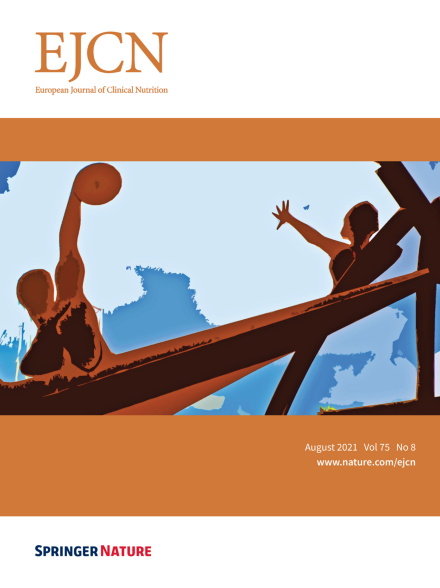
Review Article
TCM nutrition is an ancient but burgeoning discipline, and its main goal is to use food as a means to achieve balance and harmony within the body.
Zhao, X., Tan, X., Shi, H. et al
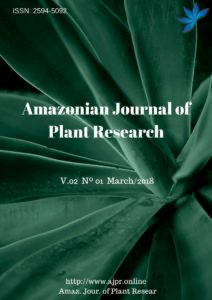
Systematic Review
The most important tremella mushroom benefits are anti-aging, anti-inflammatory, lower cholesterol, combat obesity, protect nerves and may fight cancer.
Mohamad Hesam Shahrajabian, Wenli Sun, Hong Shen and Qi Cheng

Network Pharmacology
Seasonal variations influence the nutrient composition of European sardines, with lipid levels peaking from July to September and amino acid content highest during winter.
Šimat V, Hamed I, Petričević S, Bogdanović T
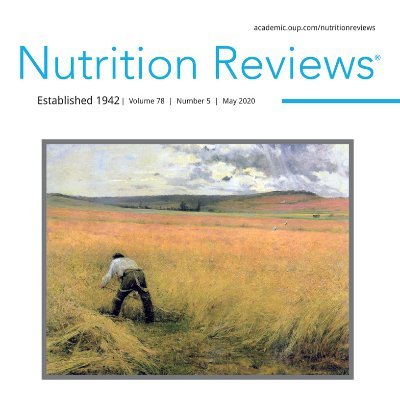
Systematic Review
High doses of omega-3 fatty acids, Vitamin D supplementation, and dietary sodium restriction showed significant improvement in reducing rheumatoid arthritis symptoms.
Philippou E, Petersson SD, Rodomar C, Nikiphorou E

Theoretical Article
Coffee, like many fruits and vegetables, activates a cellular response that boosts antioxidants and repair enzymes, which contributes to a lower risk of several diseases.
Kolb H, Kempf K, Martin S

Review Article
Incorporating avocados into the Mediterranean diet may enhance its benefits, offering greater health flexibility and adaptability for non-Mediterranean residents.
Ford NA, Liu AG

Systematic Review
Green tea intake can significantly reduce body weight, body mass index and waist circumference, with the greatest effect seen with lower dosages and shorter treatment durations.
Lin Y, Shi D, Su B, Wei J, Găman MA, Sedanur Macit M, Borges do Nascimento IJ, Guimaraes NS

Systematic Review
Almond intake significantly decreased diastolic blood pressure, and inconsistently, almonds decreased systolic blood pressure.
Eslampour E, Asbaghi O, Hadi A, Abedi S, Ghaedi E, Lazaridi AV, Miraghajani M
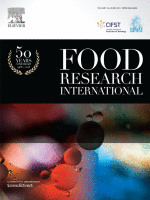
Animal Study
Adzuki bean paste consumption can reduce fat accumulation in rats by lowering energy intake and altering gut microbiota composition.
Han KH, Ohashi S, Sasaki K, Nagata R, Pelpolage S, Fukuma N, Reed JD, Shimada K, Kadoya N, Fukushima M
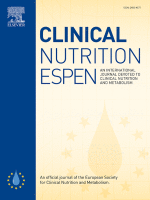
Systematic Review
Our findings showing that chocolate and flavonoid intake significantly improves the flow-mediated dilatation, provide mechanistic evidence to support a causal link between chocolate and flavonoid intake and lowered CVD risk.
Ebaditabar M, Djafarian K, Saeidifard N, Shab-Bidar S

Review Article
Omega 3 fatty acids can counter muscle lipotoxicity and prevent comorbidities in patients with rheumatoid arthritis, supporting muscle health and reducing cardiometabolic disease risk.
Lanchais K, Capel F, Tournadre A

Systematic Review
Almond intake significantly reduces body weight and fat mass in adults, yet it does not impact body mass index, waist circumference, or fat-free mass.
Eslampour E, Moodi V, Asbaghi O, Ghaedi E, Shirinbakhshmasoleh M, Hadi A, Miraghajani M

Systematic Review
Regular dietary intake of olive oil reduces the levels of certain inflammation markers, making it a beneficial alternative dietary fat, especially for managing IL-6.
Fernandes J, Fialho M, Santos R, Peixoto-Plácido C, Madeira T, Sousa-Santos N, Virgolino A, Santos O, Vaz Carneiro A

Randomised Controlled Trial
Consuming walnuts daily can reduce cardiovascular risk factors in chronic kidney disease patients without altering significant physiological levels.
Sanchis P, Molina M, Berga F, Muñoz E, Fortuny R, Costa-Bauzá A, Grases F, Buades JM

Based on the statistical analytic results, calories, dietary fiber, fat, retinol, and vitamin C were found to possibly determine the effect of Yin-Yang properties of foods on human health. The influence of these nutrients on the human body was partially consistent with the function of Yin, Yang and neutral foods recorded in traditional Chinese medicine.
Jingle Xu
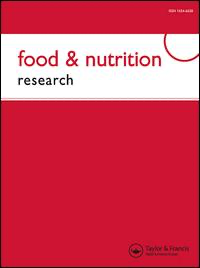
Clinical Study
Drinking at least 1.5 to 2 litres of bicarbonate-rich mineral water daily significantly reduces dietary acid load in healthy adults.
Wasserfurth P, Schneider I, Ströhle A, Nebl J, Bitterlich N, Hahn A
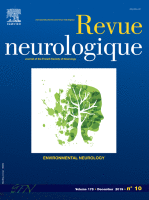
Review Article
The Mediterranean diet, especially the high consumption of extra-virgin olive oil, significantly reduces the risks of vascular diseases and Alzheimer's.
Román GC, Jackson RE, Reis J, Román AN, Toledo JB, Toledo E
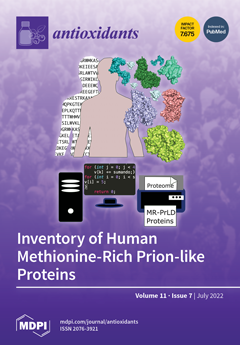
Review Article
Avocado's nutritional and therapeutic properties show potential for novel drug discovery in prevention and treatment of prevalent diseases such as cancer, diabetes, and cardiovascular issues.
Bhuyan , Alsherbiny , Perera , Low , Basu , Devi , Barooah , Li , Papoutsis

Review Article
Honey can protect the bone via its antioxidant and anti-inflammatory properties, primarily through its polyphenol content that acts upon several signalling pathways, leading to bone anabolic and antiresorptive effects.
Kamaruzzaman MA, Chin KY, Mohd Ramli ES
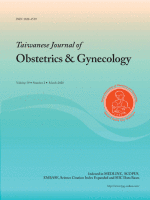
Cohort Study
Pregnant women's stature, BMI, sedentary lifestyle, as well as the regular consumption of certain foods, influence the formation and severity of striae gravidarum.
Ren P, Zhao W, Dai X, Wang X, Yu J, Yuan Y, Wu Y

Review Article
The diet might influence the onset and pathophysiology of ulcerative colitis, and can potentially be used in its management.
Keshteli AH, Madsen KL, Dieleman LA

Randomised Controlled Trial
Adding nuts to a regular diet can significantly improve self-reported orgasmic function and sexual desire in healthy males.
Salas-Huetos A, Muralidharan J, Galiè S, Salas-Salvadó J, Bulló M
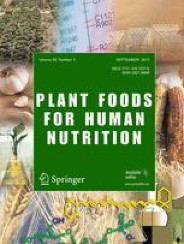
Results demonstrate that 100% watermelon juice is a palatable, effective means of increasing serum lycopene in older adult women, a group at risk for low carotenoid intake.
Ellis, A.C., Dudenbostel, T. & Crowe-White, K
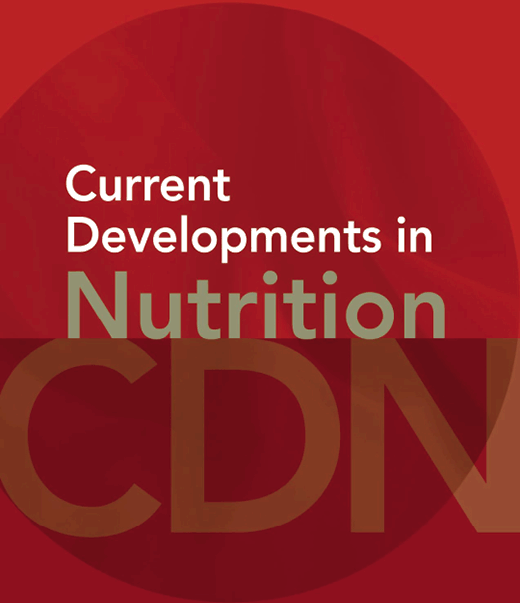
Randomised Controlled Trial
Consuming walnuts can enhance sperm motility and morphology, potentially improving fertility in males with infertility issues.
Robbins W, Kim H, Houman J, Lee GW

Systematic Review
Drinking certain types of mineral water can positively influence metabolic syndrome factors like blood pressure, cholesterol, and blood sugar levels.
Costa-Vieira D, Monteiro R, Martins MJ

Randomised Controlled Trial
Kiwifruit increases water retention in the small bowel and ascending colon and increases total colonic volume. It could be used as a dietary alternative to laxatives in mild constipation.
Wilkinson‐Smith V, Dellschaft N, Ansell J, Hoad C, Marciani L, Gowland P, Spiller R
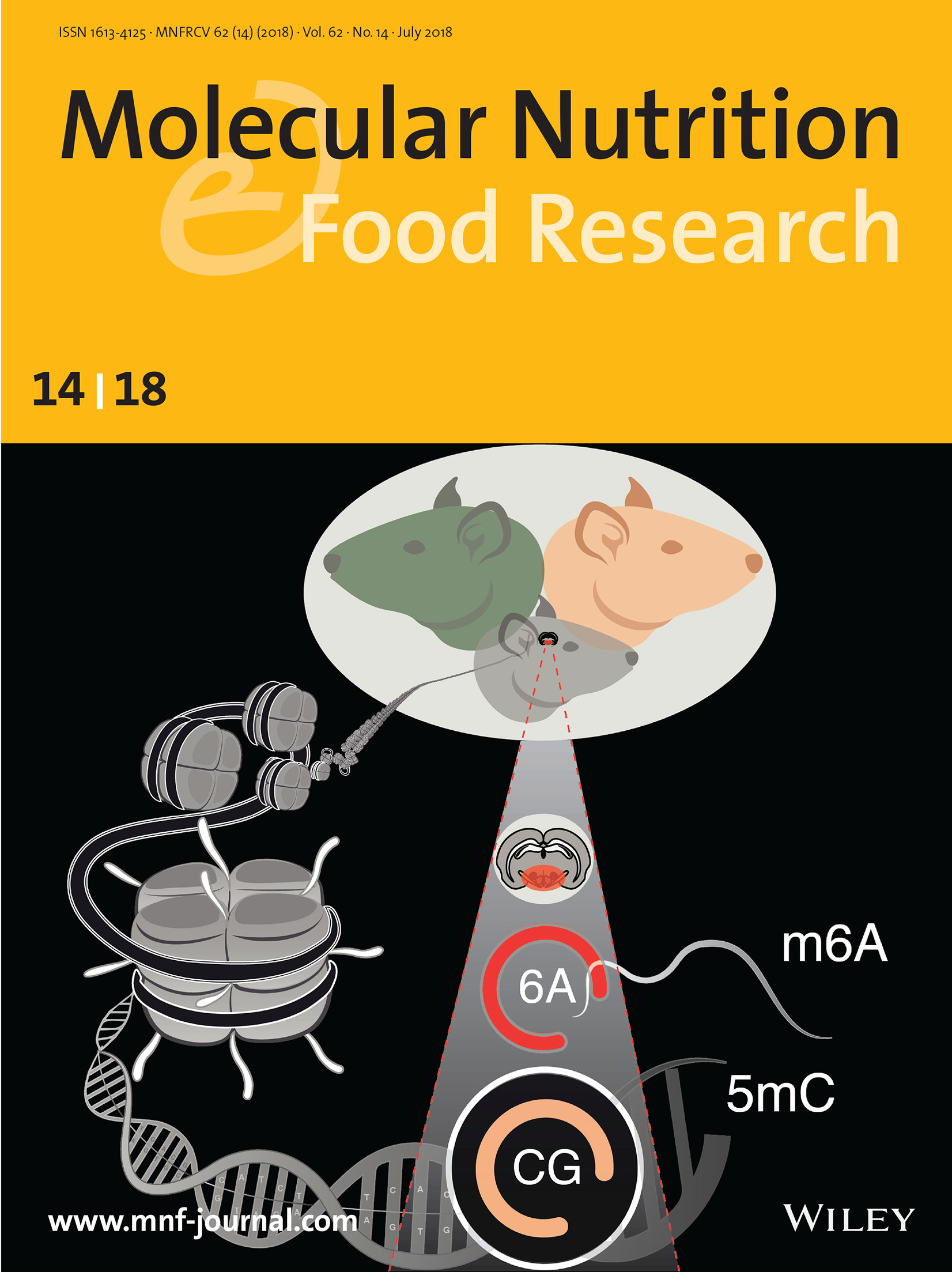
Experimental Study
Dietary supplementation with Goji berries enhances Bifidobacteria and butyrate-producing bacteria growth, resulting in potential preventative effects against colitis.
Kang Y, Yang G, Zhang S, Ross CF, Zhu MJ

Meta-Analysis
Dietary carrot intake is associated with a decreased risk of breast cancer.
Chen H, Shao F, Zhang F, Miao Q

Clinical Study
Young adults using low-fat oily dressings and certain cooking oils are linked to higher metabolic risks without direct relation to their consumptions of low fat dairy, meat, or cooking fats.
Sun Y, Magnussen CG, Dwyer T, Oddy WH, Venn AJ, Smith KJ

Review Article
Lycopene may improve vascular function and contributes to the primary and secondary prevention of cardiovascular disorders.
Mozos, I., Stoian, D., Caraba, A., Malainer, C., Horbańczuk, J. O., & Atanasov, A. G
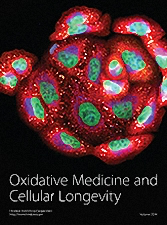
Review Article
Honey may be used as a potential antidiabetic agent that has the potential to reduce the complications of diabetes.
Bobiş O, Dezmirean DS, Moise AR

Network Pharmacology
Adzuki beans, rich in flavonoids and saponins, can potentially prevent obesity by inhibiting enzymes related to fat accumulation and enhancing lipid breakdown.
Liu R, Zheng Y, Cai Z, Xu B

Review Article
Jujube possesses neuroprotective activities, including protecting neuronal cells against neurotoxin stress, stimulating neuronal differentiation, increasing expression of neurotrophic factors, and promoting memory and learning.
Chen J, Liu X, Li Z, et al.

Systematic Review
Of the 7 clinical trials included, five evaluating individuals with hypertension observed a significant reduction in systolic and/or diastolic blood pressure. The two articles that evaluated individuals with dyslipidemia showed improvement in lipid profile.
Carolina Alves Cardoso, Gláucia Maria Moraes de Oliveira, Luciana de Almeida Vittori Gouveia, Annie Seixas Bello Moreira & Glorimar Rosa

Randomised Controlled Trial
Carrageenan intake can lead to an earlier relapse in patients with ulcerative colitis who are in remission.
Bhattacharyya S, Shumard T, Xie H, Dodda A, Varady KA, Feferman L, Halline AG, Goldstein JL, Hanauer SB, Tobacman JK
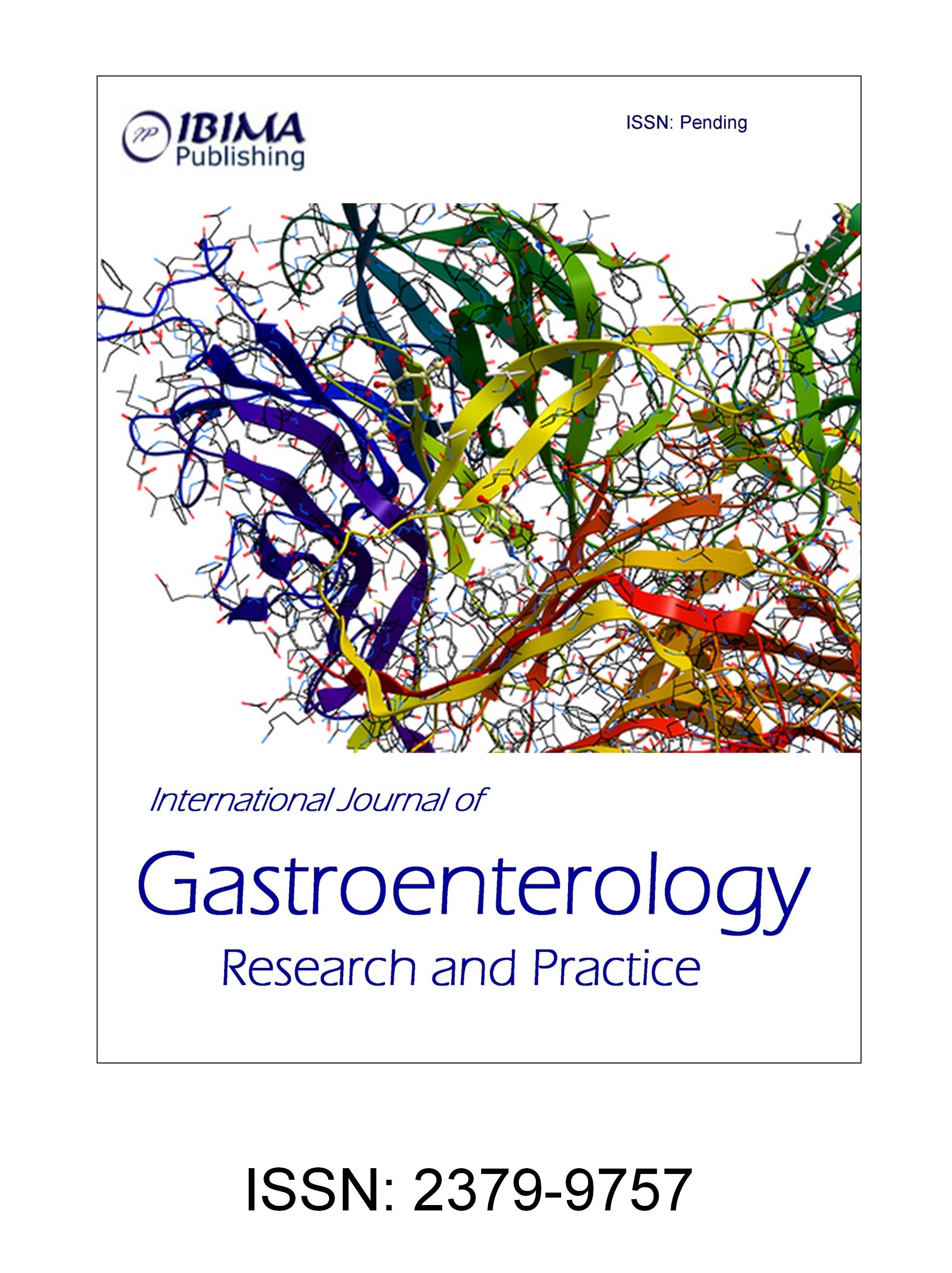
Cohort Study
Regular consumption of honey and yogurt may lower the prevalence of H. pylori infection and reduce the virulence of strains.
Yordanov D, Boyanova L, Markovska R, Ilieva J, Andreev N, Gergova G, Mitov I
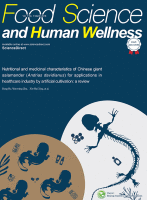
Experimental Study
Pu-erh tea water extracts could potentially enhance liver health and reduce oxidative stress in rats on a high-fat diet.
Jingjing Su, Xueqing Wang, Wenjun Song, Xiaoli Bai, Changwen Li
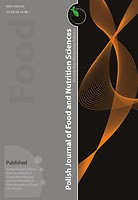
Review Article
Goji berries, classified as superfruits, possess potential beneficial implications in the dietary prevention of diseases like diabetes, cardiovascular diseases, and cancer.
Kulczyński B, Gramza-Michałowska A
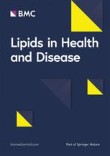
Randomised Controlled Trial
A sardine-enriched diet may have beneficial effects on cardiovascular risk and alters gut microbiota composition in patients with type 2 diabetes.
Balfegó M, Canivell S, Hanzu FA, Sala-Vila A, Martínez-Medina M, Murillo S, Mur T, Ruano EG, Linares F, Porras N, Valladares S, Fontalba M, Roura E, Novials A, Hernández C, Aranda G, Sisó-Almirall A, Rojo-Martínez G, Simó R, Gomis R
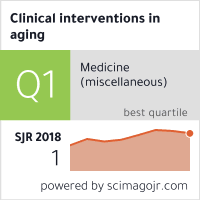
Randomised Controlled Trial
Daily consumption of Puer tea extract results in significant weight loss, reduced body fat, and improved lipid profile in a non-Asian overweight population.
Jensen GS, Beaman JL, He Y, Guo Z, Sun H.

Randomised Controlled Trial
Dietary omega-3 intake shows promise in lowering systolic blood pressure.
Minihane AM, Armah CK, Miles EA, Madden JM, Clark AB, Caslake MJ, Packard CJ, Kofler BM, Lietz G, Curtis PJ, Mathers JC, Williams CM, Calder PC

Animal Study
Dried plum was found to be most effective in reducing bone resorption and preventing bone loss caused by ionizing radiation exposure.
Schreurs AS, Shirazi-Fard Y, Shahnazari M, Alwood JS, Truong TA, Tahimic CGT, Limoli CL, Turner ND, Halloran B, Globus RK

Experimental Study
Adzuki beans present anti-atherogenic, anti-thrombogenic and hypocholesterolemic effects, and the ratios PUFA: SFA and n-6:n-3 were considered appropriate for biological system maintenance of a healthy organism.
Hou D, Yousaf L, Xue Y, et al.
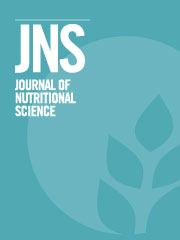
Systematic Review
Almond consumption effectively reduces blood lipid levels, thus reducing risk of heart disease.
Musa-Veloso K, Paulionis L, Poon T, Lee HY
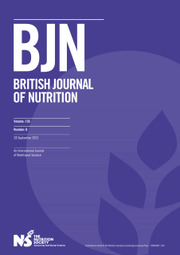
Cohort Study
High intake of magnesium from foods is linked to a significant decrease in the odds of developing reflux oesophagitis and Barrett's oesophagus.
Dai Q, Cantwell MM, Murray LJ, Zheng W, Anderson LA, Coleman HG
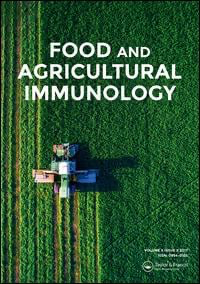
Review Article
Adzuki beans possessed strong ABTS free-radical-scavenging capacity and α-glucosidase inhibition activity.
Zhenxing Shi, Yang Yao, Yingying Zhu & Guixing Ren

Randomised Controlled Trial
Chrysanthemum flower oil significantly reduces diet-induced elevation of serum uric acid in Japanese males with high baseline levels.
Ueda T, Honda S, Morikawa H, Kitamura S, Iwama Y, Nakagawa K

Review Article
Traditional Chinese medicine can be effective in diagnosing and treating attention-deficit/hyperactivity disorder, offering an alternative to Western pharmacologic treatment.
Ni X, Zhang-James Y, Han X, Lei S, Sun J, Zhou R

Review Article
Consuming a diverse mix of dietary measures enhances iron absorption more effectively than focusing on single nutrients or foods, especially in young women.
Beck K, Conlon C, Kruger R, Coad J
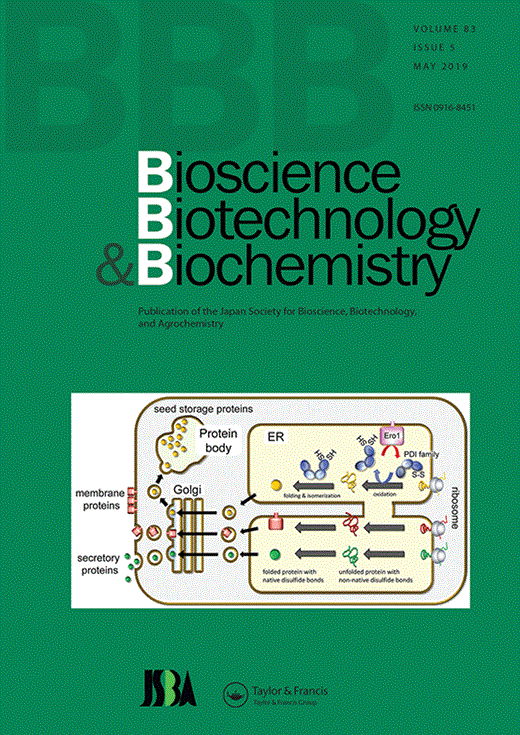
Network Pharmacology
Chrysanthemum flower oil can effectively decrease uric acid levels in rats, by reducing production in the liver and enhancing excretion from the kidney.
Honda S, Kawamoto S, Tanaka H, Kishida H, Kitagawa M, Nakai Y, Abe K, Hirata D

Systematic Review
Polyphenolic compounds found in walnuts not only reduce the oxidant and inflammatory load on brain cells but also improve interneuronal signaling, increase neurogenesis, and enhance sequestration of insoluble toxic protein aggregates.
Poulose SM, Miller MG, Shukitt-Hale B

Systematic Review
Regular carrot consumption could potentially reduce the risk of prostate cancer.
Xu X, Cheng Y, Li S, Zhu Y, Xu X, Zheng X, Mao Q, Xie L

Experimental Study
Black soyabean seed coat extract significantly decreases hepcidin expression, leading to improved iron metabolism and potential treatment for iron-deficiency anaemia.
Mu M, Wu A, An P, Du X, Wu Q, Shen X, Wang F
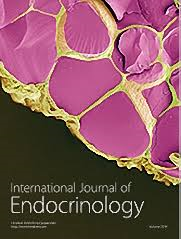
Animal Study
Regular intake of mineral-rich water, high in sodium bicarbonate, potassium, calcium, and magnesium, potentially reduces risk of Metabolic Syndrome and atherosclerotic cardiovascular disease.
Pereira CD, Severo M, Araújo JR, Guimarães JT, Pestana D, Santos A, Ferreira R, Ascensão A, Magalhães J, Azevedo I, Monteiro R, Martins MJ
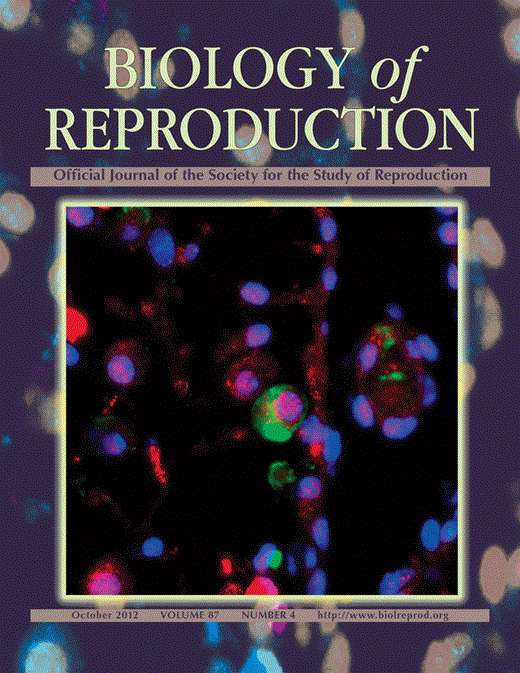
Randomised Controlled Trial
Consuming 75g of whole-shelled walnuts daily improves sperm vitality, motility, and morphology in young men adhering to a Western-style diet.
Robbins WA, Xun L, FitzGerald LZ, Esguerra S, Henning SM, Carpenter CL

Experimental Study
Blueberry consumption prior to puberty can significantly prevent bone cell senescence and bone loss induced due to the removal of ovaries in rats.
Zhang J, Lazarenko OP, Blackburn ML, Badger TM, Ronis MJJ, Chen JR

Systematic Review
These results suggest the possible antihypertensive effects of black sesame meal on improving antioxidant status and decreasing oxidant stress.
Wichitsranoi, J., Weerapreeyakul, N., Boonsiri, P. et al.
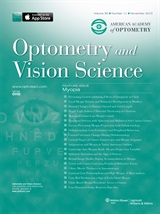
Randomised Controlled Trial
Daily goji berry supplementation increases antioxidant levels and protects visual health in the elderly, though the exact mechanism remains unclear.
Bucheli P, Vidal K, Shen L, Gu Z, Zhang C, Miller LE, Wang J
Executive Summary
Write an executive summary in the form of a blog article on the topic of "Research into Chinese medicine treatment for Diet" summarising the research below and using language that can be easily understood by patients and avoiding medical jargon using a professional and caring tone of voice.
Write an executive summary in the form of a blog article on the topic of "Researched Chinese medicine treatments for Diet" summarising the research below in an objective and easy to understand way, and using language that can be easily understood by patients. Group the article into Chinese medicine treatments first, followed by nutrition and other treatments. Avoid using medical jargon and use a professional and caring tone of voice.
Write me a concise but easy to understand executive summary on the topic of "Chinese medicine treatments for Diet" based on the following research that I will give you. Your summary should be 2 paragraphs long in Australian English spelling and include references to the studies.
A Cohort Study published in 2024 in the journal Nutrition Journal found that Higher consumption of ultra-processed food by pregnant women was linked to an increased risk of infantile atopic dermatitis within the first year of life. The research used 861 pairs of pregnant women and their offspring from the Mothers' and Children's Environmental Health project in Korea. These women’s dietary intake was measured using the 24-hour recall method during 12-28 weeks gestation. Foods were classified as ultra-processed following the NOVA classification and their consumption was calculated as the proportion of total energy intake, with participants categorized into quartiles. The prevalence of infantile atopic dermatitis was assessed based on their medical histories and according to the International Study of Asthma and Allergies in Childhood criteria. The results revealed that children born to mothers in the highest quartile of ultra-processed food consumption, compared to the lowest quartile, showed a higher risk towards atopic dermatitis within 12 months. This relationship became stronger after adjusting for certain confounding variables. Additionally, the link stayed consistent even after adjusting based on the Korean Healthy Eating Index, which measures diet quality.
A Randomised Controlled Trial published in 2024 in the journal Scientific Reports found that A combined Mediterranean, low-FODMAP diet along with partial enteral nutrition has shown promise in reducing ulcerative colitis activity and improving patients' quality of life. In the study, fifty patients with active, mild to moderate ulcerative colitis were randomly allotted one of two diets: a combined Mediterranean, low-FODMAP diet supplemented with partial enteral nutrition, or a standard diet. These diets were implemented for a duration of 6 weeks. Before and after the intervention, various indicators of the patients' conditions were measured. These variables included a disease activity index, the patients' quality of life, and concentrations of various inflammatory and oxidative stress factors in the blood. All of these were measured using tested and trustworthy questionnaires, in conjunction with blood sampling. The combined diet was found to result in significantly decreased disease activity index values, compared to both the control diet and the baseline data. Simultaneously, patients on the combined diet reported greater enhancements in their quality of life, compared to both the control group and the initial data. Lastly, the serum level of a protein called "high sensitive C-reactive protein," known to be a general marker of inflammation within the body, was found to be reduced in the combined diet group. However, changes in the serum total antioxidant capacity were found to be statistically insignificant across both groups.
A Review Article published in 2024 in the journal Nutrients found that Carrageenan, a common food additive, potentially exacerbates Inflammatory Bowel Disease (IBD) symptoms by altering gut microbiota, inducing intestinal permeability, and triggering inflammation. The study involved a comprehensive literature review, where the researchers carried out an in-depth analysis of past studies evaluating carrageenan's impact on gut health, particularly in relation to Inflammatory Bowel Disease (IBD). Using predefined search terms, they scoured medical and scientific databases, MEDLINE and SCOPUS. They considered research focusing on carrageenan's effect on the gut microbiota, intestinal permeability, inflammatory processes, its relationship with cancer, and its role as a food additive in the context of autoimmune diseases. The review divulged that degraded carrageenan, as used in animal studies, appeared to promote intestinal ulceration and inflammation, suggesting a potential risk in exacerbating IBD. Additionally, carrageenan also appeared to disrupt gut microbiota, reducing bacterial diversity therein, and increased intestinal permeability, which in turn could possibly contribute to 'leaky gut' syndrome. Interestingly, some studies suggested a possible anti-cancer effect, since carrageenan might inhibit the growth of cancer cells by affecting cell cycle progression. Besides, the additive seemed to elevate glucose intolerance and insulin resistance.
A Animal Study published in 2024 in the journal Food Science & Nutrition found that Jujube fruit extracts significantly alleviate oxidative stress in rodent models, potentially offering a valuable dietary supplement against diseases linked to oxidative stress. In this study, relevant animal studies were sourced from various data platforms including PubMed, Web of Science, Embase, China National Knowledge Infrastructure, Wanfang Data Knowledge Service Platform, and VIP Periodical Service Platform. Risk of bias in the included studies was evaluated using the Systematic Review Center for Laboratory Animal Experimentation risk-of-bias tool. Conducting a meta-analysis followed the Cochrane Handbook for Systematic Reviews of Interventions guidelines and utilized Stata 17.0 software. Nineteen studies were ultimately incorporated into the meta-analysis. The meta-analysis indicated that jujube fruit extracts notably reduced the level of malonaldehyde, a marker of oxidative stress, and raised the levels of superoxide dismutase and glutathione peroxidase, both of which are antioxidant enzymes. However, the levels of another antioxidant enzyme, catalase, didn't exhibit significant improvement. The meta-analysis results uncovered considerable heterogeneity. Subsequent subgroup analysis suggested that the source of the target parameters, animal models used, and types of extract could be contributing to the observed heterogeneity. Despite questionable overall methodological quality in the included studies, the study underscores the potential of jujube fruit extracts as effective antioxidant dietary supplements, particularly useful in conditions where oxidative stress is a key pathogenic factor.
A Systematic Review published in 2024 in the journal Heliyon found that Increased omega-3 intake significantly improves women's chances of pregnancy and fertilization rates. The methodology involved retrieving articles from databases like PubMed, Clinical Trials, CINAHL/EBSCO, Medline Complete, and Cochrane Library, published up to April 2021 using keywords related to omega-3, fertilization, and pregnancy. The selection criteria included studies that reported female fertility occurring naturally or intracytoplasmic sperm injection techniques concurrent with omega-3 intake, excluding retrospective studies, studies featuring postmenopausal women, or those with unevenly matched research groups. A meta-analysis was conducted using the extracted odds ratios of clinical pregnancies and fertilization rates from each study. The results, drawn from six fertility treatment-related trials with 1789 women, four trials with 2607 women who conceived naturally, and three further trials involving 1725 oocytes for fertility rates, consistently show the beneficial effects of omega-3. These findings, however, exhibited a high degree of heterogeneity, suggesting variable factors across the studies might have influenced the outcomes.
A Cohort Study published in 2024 in the journal The Journal of Nutrition found that Greater intake of blueberries considerably decreases the risk of age-related macular degeneration, while a remarkable dietary intake of anthocyanins inversely correlates with cataract incidents. Middle-aged and older women, numbering 36,653 and 35,402 originally without cataract and AMD, provided data for the study via semiquantitative food frequency questionnaires. Insights were derived on the consumption of blueberries by these women, with frequency varied from none to over two servings weekly. Additionally, total anthocyanin consumption was analysed, with major subclasses adjusted for energy and then into quintiles. Self-reported risk factors for eye diseases were adjusted in the multivariable hazard ratios. On analysis, it was found that a significant portion of participants consumed a minimum of one serving of blueberries weekly. Thus, compared to no blueberry intake, it was observed that those consuming the fruit exhibited a decrease in the total instances of AMD, while visually significant AMD remained unaffected. Furthermore, dietary anthocyanin showed a modest yet significant inverse association with cataract occurrences, but no notable correlation with AMD.
A Review Article published in 2024 in the journal Rheumatology International found that Despite diet being key in shaping gut microbiota, it surprisingly does not impact the treatment outcomes in individuals with Rheumatoid Arthritis. The process used to understand this paradox involved an umbrella review. This is an examination of multiple research studies and papers that address a similar question, in this case, the effects of diet on Rheumatoid Arthritis (RA). Through a comprehensive analysis of various scientific studies, researchers sought to determine if there was a meaningful link between diet and outcomes in RA patients. The results of this study revealed an unexpected conclusion. Despite the gut microbiota's critical role in shaping the risk of RA, the data showed that diet, which is a dominant factor in shaping our gut microbiota, did not appear to affect the treatment outcomes in individuals with RA. This finding is surprising given the generally accepted understanding of the influence of diet on gut health and correlates with disease states. This conclusion introduces a new perspective in the understanding of RA and its relationship with diet.
A Systematic Review published in 2024 in the journal Advances in Nutrition found that Regular consumption of nuts improves sperm parameters such as motility, vitality, and morphology, potentially promoting successful reproductive outcomes in healthy males. The researchers in this study carried out a systematic review and meta-analysis, exploring the impact of nut intake on fertility outcomes. They sourced data from four databases: Ovid MEDLINE, Embase, CINAHL, and Scopus, from their inception until June 2023. The inclusion criteria for articles were humans of reproductive age who had consumed nuts for a minimum of three months, with any consequent fertility-related outcomes reported. The researchers undertook a random-effects meta-analysis to produce a collective estimate of the effect of nut consumption on four specific sperm characteristics: total motility, vitality, morphology, and concentration. In this review and meta-analysis, the researchers involved four studies, evaluating a total of 875 participants, composed of 646 males and 229 females. For males, two randomized control trials involving 223 individuals revealed that a daily consumption of at least 60g of nuts led to an improvement in sperm motility, vitality, and morphology, compared to those consuming fewer nuts, though it did not affect sperm concentration. Conversely, the non-randomized studies could not discern an association between nut consumption and traditional sperm parameters in males, nor could they establish a link between nut intake and embryo implantation, clinical pregnancy or live birth in males and females undergoing Assisted Reproductive Technology (ART).
A Review Article published in 2024 in the journal Psychoneuroendocrinology found that Peptic ulcers may be prevented and cured by well-chewed food rich in vegetable fibers and fermented milk products, which increase protective salivary mucus and decrease damaging bile flow. The research conducted a review of epidemiologic studies focusing on the variations of diet and eating patterns related to the prevalence of peptic ulcer disease across various communities. The effects of dietary patterns were assessed on saliva, gastric juice, and bile. The role of bile was specifically examined in the pathogenesis of peptic ulcer, with the argument that it, rather than hydrochloric acid, played a causal role. The role of saliva in preventing peptic ulcers was emphasized, particularly the protective nature of salivary mucus which is swallowed with food. The study then suggested the types of diets that can help prevent peptic ulcers, including those rich in roughage, cellulose, vegetable fibers, and fermented milk products such as ghee and yogurt. The research posited this kind of diet can increase the amount of salivary mucus and consequently decrease the flow rate of harmful bile. The study also noted that these insights showed minor changes in diet, and a slower pace of consumption could lead to substantial health benefits. Moving from dietary composition to eating behaviors, it was suggested that food should be well-masticated to ensure these beneficial digestive processes have an opportunity to occur. At the same time, the research made the case that specific dietary components, particularly short-chain fatty acids like those found in milk products, can retard gall bladder contraction, thereby reducing the amount of bile entering the duodenal lumen. This secondary action further contributes to the potential prevention of peptic ulcers.
A Randomised Controlled Trial published in 2023 in the journal Complementary Therapies in Medicine found that Changes in gut microbiome associated with a low-fat, vegan diet and cooked soybeans may reduce the frequency and severity of postmenopausal hot flashes. In this study, 84 postmenopausal women experiencing two or more moderate-to-severe hot flashes daily were randomly assigned to a low-fat, vegan diet with daily cooked soybeans or allowed to maintain their usual diet. Over a 12-week period, the frequency and severity of hot flashes were tracked using a mobile application. In 11 women from the group, gut microbiome was analyzed at the start and after 12 weeks of the dietary intervention, using deep shotgun metagenomic sequencing. The women who underwent gut microbiome testing experienced a substantial decrease in total hot flashes during the dietary intervention, and severe hot flashes disappeared entirely in this group. Alpha and beta diversity within the microbiome showed no significant difference in the intervention group between baseline and the end of the 12 weeks. Interestingly, adjustments in the relative abundance of certain bacterial strains, notably Porphyromonas and Prevotella corporis, were linked with the reduction in severe day hot flashes, while changes in the relative abundance of Clostridium asparagiforme were associated with a reduction in total severe hot flashes and severe night hot flashes.
A Randomised Controlled Trial published in 2023 in the journal Nutrients found that Consumption of unripe avocado extract in the diet may lower postprandial insulin levels in overweight adults with previously elevated insulin levels. In this study, a double-blinded, randomised controlled trial was performed on 60 non-diabetic adults (with a majority of 47 being women, average age 48 years, BMI 34.0 kg/m). The participants were stratified by sex and randomised into two groups. One group daily consumed an extract from unripe avocado (10 g finely ground, freeze-dried unripe avocado), while the other took a placebo (10 g finely ground cornmeal supplemented with 5% spinach powder) over a period of 12 weeks. The primary outcome measured was the change in glucose area under the curve (AUC) in response to a 75 g oral glucose tolerance test. The results showed no significant differences between both groups in terms of glucose AUC, insulin AUC, or cardiovascular outcomes. However, in a subgroup analysis focusing on participants with above median baseline postprandial insulin levels, there was a notable reduction in insulin AUC in those who consumed the avocado extract compared to the placebo. This suggests that the daily consumption of an unripe avocado extract, enriched in MH, might not significantly impact glucose tolerance or insulin sensitivity in obese non-diabetic adults. Nonetheless, there seems to be a potential benefit of this intervention on postprandial insulin levels in individuals with initially elevated insulin responses.
A Review Article published in 2023 in the journal Alimentary Pharmacology & Therapeutics found that Fruits, especially kiwifruits, and rye bread can enhance bowel movements and help manage chronic constipation better than conventional dietary methods. An exhaustive analysis was conducted incorporating a multitude of studies, including randomized controlled trials and uncontrolled trials, identified through electronic databases till 12th July 2023. The effect of various foods, drinks, and diets on characteristics such as stool output, gut transit time, symptoms, quality of life, adverse events, and compliance in adults with chronic constipation was inspected. The study also examined the response to different treatments and included a variety of foods such as kiwifruit, high-mineral water, prunes, rye bread, mango, fig, cereal, oat bran, yoghurt, water supplementation, prune juice, and high-fibre or no-fibre diets. The synthesized data revealed that the consumption of fruits, particularly kiwifruits, and rye bread led to a higher stool frequency when compared to standard treatments like psyllium or white bread. High-mineral water also proved more effective regarding response to treatment than low-mineral water. On the other hand, no distinctive difference was identified for prunes when set against psyllium as a treatment option. Overall, the study insightfully suggests dietary modifications as a means to manage chronic constipation, emphasizing the potential of fruits such as kiwifruits and rye bread.
A Animal Study published in 2023 in the journal Nutrients found that A combination of soybean germ extract and a probiotic significantly improved menopause-related conditions and mood in an ovariectomized rat model. The study employed an ovariectomized rat model to understand the effects of a combination of soybean germ extract containing 30% isoflavone and a probiotic. The methodology included assessing the effects of this combination on several health markers including body weight, estrogen markers, uterine and bone health, vascular markers, and neurotransmitter levels in these rats. Once implemented, the combination of soybean germ extract and the probiotic showcased significant improvement in body weight and uterine and bone health of the rats. There were also noticeable effects on the lipid profile, liver function, and vascular markers. Most interestingly, the combination had a positive impact on the levels of serotonin and norepinephrine, indicating potential mood-enhancing effects, which are crucial in managing symptoms post-menopause. This essentially shows the potential of a dietary approach towards menopausal management, especially given the observed benefits without the side effects typically associated with hormone replacement therapy.
A Systematic Review published in 2023 in the journal Autoimmunity Reviews found that Intermittent fasting may potentially influence autoimmune diseases like type 1 diabetes and rheumatoid arthritis, by reducing inflammation and supporting cellular repair mechanisms. Extensive research was done through several electronic databases such as PubMed, Scopus, Embase, and Web of Science. Rigorous inclusion criteria were applied to filter the most relevant studies on the effects of intermittent fasting on autoimmune diseases. No reference to further research trials was mentioned in the methodology. The results indicate a potential link between intermittent fasting and the management of certain autoimmune diseases. Autoimmune diseases like type 1 diabetes, rheumatoid arthritis, and systemic lupus erythematosus exhibited improvements owing to the reduction in inflammatory markers, improvement in gut microbiota, and enhanced cellular repair resulting from autophagy induced by intermittent fasting. However, results concerning other autoimmune diseases like multiple sclerosis, systemic lupus erythematosus, thyroid diseases, and psoriasis were inconclusive.
A Randomised Controlled Trial published in 2023 in the journal Journal of Medicinal Food found that Daily consumption of pecans for a month can help protect against post-meal oxidative stress in aging adults. The abstract outlines a randomized, parallel, controlled trial where 41 healthy adults aged between 50 and 75 were split into two groups. One group consumed 68 grams of pecans every day for four weeks, while the other group avoided all nuts. Blood samples were obtained from all participants before and after the intervention during fasting and at intervals of 30, 60, and 120 minutes after a meal high in saturated fats. Changes were observed in various parameters, including malondialdehyde - a marker for lipid peroxidation, total antioxidant capacity (TAC), glucose, and insulin levels. The study revealed no significant variances in fasting or post-meal TAC, glucose, or insulin for the pecan consumers compared to the control group. However, there was a noticeable tendency towards a change in fasting lipid peroxidation driven by a minor reduction for the pecan group compared to the control group. Moreover, post-meal lipid peroxidation was suppressed in the pecan group, distinctly different from the control group's results. These outcomes propose that a diet enriched in pecans for one month can provide protection against post-meal oxidative stress in older adults.
A Animal Study published in 2023 in the journal Journal of Functional Foods found that Fermented Pueraria lobata root extract and Glycine max extract showed estrogen-like activities, reducing depressive symptoms in menopausal mice but not increasing female cancer risks. The researchers focused on Pueraria lobata roots and Glycine max (also known as soybeans) extracts, which are rich in isoflavones but often limited in practical use due to their high molecular weight and low bioavailability. The researchers chose to ferment these extracts with Lactiplantibacillus plantarum strains which are known to convert glycosides to aglycones, potentially enhancing the beneficial effects of the isoflavones. Specifically, the study was conducted using ovariectomized mice. The research found that both fermented Pueraria lobata root extract and Glycine max extract exhibited estrogen-like activities. More intriguingly, the fermentation process increased the expression of estrogen receptor beta, suggesting that these extracts may not increase the risk of various female cancers—a common side effect of hormone replacement therapy—as was previously believed. Also, the ingestion of these extracts not only increased the estrogen receptor beta in the mice but also upregulated the expression of the brain-derived neurotrophic factor in the hippocampal region of the brain, thus improving depressive symptoms. The highest expression was observed in the group given a mixture of both extracts.
A Randomised Controlled Trial published in 2023 in the journal Nutrition Journal found that Pomegranate peel extract, along with a calorie deficit diet, could improve risk factors of metabolic syndrome and reduce fatty liver in patients with non-alcoholic fatty liver disease. In the first phase, the research involved the hydro-alcoholic extraction of the peel of 750 kilograms of pomegranate using the soaking method. The second phase saw patients with non-alcoholic fatty liver disease divided into two groups - a placebo group and a pomegranate peel capsule group. Both groups followed a diet with a 500 kcal deficit for eight weeks. Aspects like intolerance to the treatment, participants' dietary intake, their lipid and glycemic profiles, blood pressure, body composition, insulin resistance indexes and changes in fatty liver disease evaluated through elastography were monitored. Further, the study reported substantial decreases in multiple indicators such as body weight, waist circumference, body mass index, body fat index, trunk fat, blood pressure, total cholesterol, triglyceride levels, LDL cholesterol, fat free mass, and fasting blood sugar in the group that took pomegranate peel capsules compared to the placebo group. Meanwhile, HDL cholesterol and liver steatosis and stiffness saw improvement. No significant differences, however, were found in the insulin and homeostatic model assessment for insulin resistance between the two groups.
A Review Article published in 2023 in the journal Human Reproduction Update found that The Mediterranean diet and reduced intake of trans fatty acids, saturated fatty acids, and discretionary foods like fast food and sugar-sweetened beverages may improve fertility rates. This title represents a systematic scoping review of four electronic databases, namely Medline and EMBASE via Ovid Processing, CAB Direct, and CINAHL via EBSCO. The researchers included observational works, consisting of prospective and retrospective cohort, cross-sectional, and case-control studies, up to September 27, 2021. The criteria for study inclusion were women of reproductive age in the preconception stage who were examined for the connection between preconception diet and fertility outcomes. From the total of 36 studies that were found eligible for review, the one diet that stood out with the most significant and consistent association with increased clinical pregnancy rates was the Mediterranean diet. Dietary factors such as reducing trans fatty acids, saturated fatty acids, and discretionary food intake, which includes fast food and sugar-rich drinks, were found to lead to an improvement in live birth, clinical pregnancy rates, and associated ART outcomes. However, this study also found that elements like seafood, dairy, and soy showed varying findings across a few studies. Despite the mixed results, it was noted that following some of these dietary regulations, notably Mediterranean diet, shows consistency with healthy eating guidelines, implying potential benefits in fertility.
A Systematic Review published in 2023 in the journal Nutrients found that Natural calcium-rich mineral waters offer a bioavailable calcium source, beneficial for bone health, cardiovascular function, weight management, and overall well-being. This systematic review analyzed peer-reviewed articles, clinical trials, and experimental studies from the past decade. It focused on the health benefits of calcium-rich mineral waters, especially for individuals with lactose intolerance or on plant-based diets. The review process assessed the contribution of these waters to daily calcium intake and their bioavailability compared to other calcium sources. The review found that natural mineral waters high in calcium can significantly enhance calcium intake, with improved absorption rates. These waters show promise in promoting bone health and cardiovascular function, including potential reductions in blood pressure and cardiovascular disease risk. Some evidence suggests benefits in weight management. However, the review highlighted the need for further research on interactions with other dietary components, effects on specific health conditions, and long-term consumption impacts. Despite these gaps, calcium-rich mineral waters are recognized as a valuable dietary calcium source for a diverse population.
A Systematic Review published in 2023 in the journal Current Problems in Cardiology found that Oat consumption can significantly improve lipid profiles, particularly reducing total cholesterol and LDL cholesterol, with potential positive effects on triglycerides and HDL cholesterol under certain conditions. In the methodology of this review study, information was gathered from various databases, including PubMed, Web of Science, and Google Scholar. The gathered data consisted of a total of 17 studies that explored the direct effects of oat consumption on lipid profiles. The focus of the studies included were the impacts of oat on levels of total cholesterol, VLDL, LDL-C, TG, and HDL-C. The review was meticulous, with a detailed examination of each study, particularly those showing positive effects of oat/beta-glucan consumption on triglycerides. The review's results revealed that oat intake significantly reduces the levels of total cholesterol, VLDL, and LDL-C. The effect of oat ingestion on triglyceride levels was varied; of the 17 studies, 6 reported a decrease in triglycerides. Interestingly, one study showed an improvement in HDL-C levels following oat consumption. It was also observed that oat intake might effectively reduce triglycerides in healthy individuals and overweight people or those with diabetes or metabolic syndrome, especially when larger amounts of oat were consumed over a longer duration or in conjunction with a calorie-reducing diet. The use of oat together with certain dietary programs was suggested to potentially enhance its positive effects on lipid profiles.
A Review Article published in 2023 in the journal Autoimmunity Reviews found that Nutrition, particularly an anti-inflammatory Mediterranean diet supplemented with oily fish and omega-3 supplements, can potentially reduce inflammation and improve symptoms of rheumatoid arthritis. The review examines evidence indicating a possible connection between nutrition and the risk and management of rheumatoid arthritis, an autoimmune disease having an immune-inflammatory response. The impact of different food types was considered, including pro-inflammatory and anti-inflammatory foods. Specifically, the research highlights the effectiveness of a Mediterranean diet, rich in fish and supplemented with omega-3 polyunsaturated fatty acids, in reducing inflammation and oxidation. Other factors such as herbs and spices, beverages, vitamin D, and probiotics were also taken into account. The research emphasizes the direct and indirect role of nutrition through the management of co-morbidity. The disease activity was observed to improve with dietary changes, particularly a propensity to reduce inflammation, oxidation, and beneficial effects on gut microbiota. An anti-inflammatory Mediterranean diet, supplemented with consumption of oily fish at least twice a week, and daily intake of omega-3 polyunsaturated fatty acid supplements of 2 g, has been recommended. The study also highlights the importance of rheumatologists working closely with registered dietitians to support patients in managing a well-balanced diet according to their individual needs.
A Cohort Study published in 2023 in the journal Life found that Monounsaturated fats, omega-3 polyunsaturated fatty acids, and a suitable eicosapentaenoic acid to arachidonic acid ratio can be used in diet therapy to improve quality of life by reducing pain and inflammation. The risk of endometriosis may increase with a higher consumption of products rich in saturated fats, especially palmitic acid and trans-unsaturated fatty acids. Monounsaturated fats and omega-3 polyunsaturated fatty acids may likely be connected with a lower risk of developing endometriosis and with reductions in the severity of disease.
A Cohort Study published in 2023 in the journal Current Research in Food Science found that The Mediterranean diet, rich in organic vegetables, fruits, whole grains, and healthy fats, can markedly improve male fertility by increasing testosterone levels and reducing sperm DNA fragmentation. The study designed a dietary regimen for 50 subfertile men, modifying their diets primarily with organic foods and a low-carb Mediterranean style approach, emphasized on consuming high amount of vegetables and fruits rich in various nutrients and antioxidant substances. The participants introduced whole grains, low glycemic load options, removed refined carbohydrates, ate green leafy vegetables and red fruits daily, reduced or eliminated dairy products, consumed primarily grass-fed meat and wild caught seafood, and replaced saturated fats with healthy fats such as olive oil, avocado, and nuts. After following the modified meal plan for three months, there were considerable increases in testosterone levels observed in the subjects. Alongside this, the study also noted a decrease in sperm DNA fragmentation, particularly in individuals who reduced their carbohydrate intake by 35%. These findings demonstrate the direct effects a specifically modified diet can have on improving male fertility.
A Review Article published in 2023 in the journal Pharmacological Research found that Consumption of tea and coffee may possibly provide anti-inflammatory effects, contributing to reduced cardiovascular risk and mortality. The methodology of this narrative review examined the potential anti-inflammatory properties of consuming tea and coffee as a factor in reducing the risk of cardiovascular disease. This was done by analyzing a plethora of studies and meta-analyses that explored the impact of diet on inflammation, with a keen focus on the consumption of these beverages. The studies looked at a variety of risk factors for atherosclerotic cardiovascular disease, including inflammation biomarkers such as C-reactive protein, along with the impact of modern lipid-lowering treatments. In discussing the results, it was noticed that inconsistent findings were produced from the analysed studies which made a conclusive determination challenging. However, a trend was observed where drinking tea and coffee seemed to raise adiponectin levels, reduce reactive oxygen species and lower low-density lipoprotein cholesterol levels. Despite these potential anti-inflammatory properties of tea and coffee being somewhat uncertain due to various confounding factors, their consumption is still recommended as part of a healthy diet.
A Review Article published in 2022 in the journal International Journal of Molecular Sciences found that Magnesium, essential for harmonising nerve signals and preserving the blood-brain barrier, may be linked to neurodegenerative disorders when its balance is disrupted. The researchers performed a narrative review, beginning with a quick overview of the role of magnesium in the brain. Magnesium is crucial for healthy nerve signal transmission and the upkeep of the blood-brain barrier, which protects the brain from harmful substances in the blood. Then, they discussed evidence suggesting a connection between disrupted magnesium balance and a variety of neurodegenerative disorders. In the discussion of the results, it was posited that a deficiency in magnesium might contribute to low-grade systemic inflammation, which is common in many illnesses. Specifically, they argued that such inflammation in the brain is a characteristic feature of neurodegenerative diseases. The review found evidence that disruptions in the body's magnesium balance could be associated with multiple sclerosis, Alzheimer's, and Parkinson's diseases.
A Randomised Controlled Trial published in 2022 in the journal American Journal of Gastroenterology found that Consuming green kiwifruits is associated with a clinically relevant increase of ≥ 1.5 complete spontaneous bowel movements per week in those experiencing constipation. Participants included healthy controls (n = 63), patients with functional constipation (FC, n = 60), and patients with constipation-predominant irritable bowel syndrome (IBS-C, n = 61) randomly assigned to consume 2 green kiwifruits or psyllium (7.5 g) per day for 4 weeks, followed by a 4-week washout, and then the other treatment for 4 weeks. The primary outcome was the number of complete spontaneous bowel movements (CSBM) per week. Secondary outcomes included GI comfort which was measured using the GI symptom rating scale, a validated instrument. Data (intent-to-treat) were analyzed as difference from baseline using repeated measures analysis of variance suitable for AB/BA crossover design. Consumption of green kiwifruit was associated with a clinically relevant increase of ≥ 1.5 CSBM per week (FC; 1.53, P < 0.0001, IBS-C; 1.73, P = 0.0003) and significantly improved measures of GI comfort (GI symptom rating scale total score) in constipated participants (FC, P < 0.0001; IBS-C, P < 0.0001). No significant adverse events were observed.
A Systematic Review published in 2022 in the journal Journal of the Academy of Nutrition and Dietetics found that Avocado consumption may lead to a reduction in total cholesterol and low-density lipoprotein cholesterol levels in people with high cholesterol without impacting body weight. The study reviewed the impact of diets containing avocado on cardiometabolic risk factors compared with diets containing no or low amounts of avocado. Five electronic databases were searched aiming to identify studies published between 1990 and 2021. The selected studies included randomized controlled trials of three weeks or more and prospective cohort studies. In total, ten studies, nine controlled trials, and one observational study, met the inclusion criteria. Risk of bias was evaluated, and overall quality of the evidence was inspected. Meta-analyses were performed when there were three or more studies of the same design reporting the same outcome. Upon reviewing the results, the study found a minor, noteworthy reduction in total cholesterol levels in the avocado group as opposed to the control groups. There was no significant difference found in low-density lipoprotein cholesterol, high-density lipoprotein cholesterol, or triglycerides. However, in populations with hypercholesterolemia, avocado consumption demonstrated significant reductions in both total cholesterol and low-density lipoprotein cholesterol levels. It is also worth noting that consumption of avocados did not negatively affect body weight or composition.
A Randomised Controlled Trial published in 2022 in the journal Mediators of Inflammation found that Drinking pomegranate juice and sumac can help reduce symptoms in outpatients diagnosed with COVID-19, alongside standard treatment. In the applied methodology, two groups were randomly formed from 182 outpatients with COVID-19. The first group had a diet containing pomegranate juice and sumac, in addition to their standard treatment. The second group, the control group, stuck to the standard treatment only. The results from the study show that outpatients with COVID-19 who consumed a diet containing pomegranate juice and sumac, along with their standard treatment, experienced a significant decrease in their symptoms. Such symptoms include fever, chills, coughing, weakness, smell and taste disorders, shortness of breath, diarrhea, nausea and vomiting, and abdominal pain. This decrease in symptoms was in comparison to the outpatients with COVID-19 who underwent only the standard treatment. Overall, the consumption of pomegranate juice and sumac has shown to be beneficial in reducing COVID-19 related symptoms.
A Randomised Controlled Trial published in 2022 in the journal Frontiers in Nutrition found that Fasting followed by a plant-based diet and a standard diet both positively affected rheumatoid arthritis disease activity and cardiovascular risk factors, without discernible differences. In this research, 53 rheumatoid arthritis patients were divided into two equal groups. One group underwent a 7-day fast and thereafter followed an 11-week plant-based diet. The second group adhered to a 12-week standard diet based on the dietary recommendations of the German society for nutrition. The main metric of comparison between the two groups was the change from baseline to 12 weeks on the Health Assessment Questionnaire Disability Index. The research showed that the fasting group noted an early improvement by day 7 and remained stable over 12 weeks. Meanwhile, the standard diet group showed slower but positive enhancements at 6 and 12 weeks. Furthermore, both dietary methods contributed to an improvement in disease activity scores of all the patients by week 12. Also, an advancement in cardiovascular risk factors, notably weight loss, was more prominent in the fasting group than the standard diet group.
A Meta-Analysis published in 2022 in the journal Jundishapur Journal of Natural Pharmaceutical Products found that Consumption of broccoli sprouts significantly lowers blood pressure, potentially due to properties of sulforaphane. The research pulled from ten clinical trials studying human subjects' cardiometabolic health in relation to broccoli sprout supplementation. The literature used for this systematic review and meta-analysis was compiled from research found on Pubmed and Scopus up until June 2022, the range of studies spanned from 2004 to 2019. To create a valid comparison, seven of the clinical trials contained control groups. Discussing the results, it was found that the intake of broccoli sprouts brought significant reductions in both systolic and diastolic blood pressures. In addition, minor changes in blood lipid biomarkers were also tracked when compared to their baseline levels. These results confirmed the vegetable's hypotensive properties and brought attention to the potential sulforaphane-dependent effects it holds, thus underlining broccoli sprouts' value in managing cardiometabolic diseases.
A Randomised Controlled Trial published in 2022 in the journal Menopause found that A diet low in fat, vegan, and inclusive of daily cooked soybeans significantly reduces the frequency and severity of hot flashes in postmenopausal women. The methodology used involved the selection of 84 postmenopausal women who reported at least two moderate-to-severe hot flashes. These women were randomly divided into two cohorts, one prescribed the dietary intervention of a low-fat, vegan diet coupled with daily servings of cooked soybeans and a control group which did not alter their diet. Over a 12-week period, a mobile application was used to track hot flashes in terms of frequency and severity. Further, the participants’ vasomotor, psychosocial, physical, and sexual symptoms were assessed using the Menopause-Specific Quality of Life questionnaire. In some participants, the presence of urinary equol, a compound formed in the gut after consuming soy, was measured following the intake of the specified amount of soybeans for 3 days. In discussing the results, a remarkable decrease was noted in the frequency and severity of hot flashes experienced by the group assigned the dietary intervention versus those in the control group. In addition, after 12 weeks, half of the participants adhering to the vegan diet and daily soy intake reported complete cessation of moderate-to-severe hot flashes. Furthermore, notable decreases were reported in the intervention group in menopause-specific quality of life domains including vasomotor, physical, and sexual. Neither the season nor the participant's ability to produce equol played a notable role in these improvements.
A Randomised Controlled Trial published in 2022 in the journal The American Journal of Clinical Nutrition found that A daily intake of 50 grams of prunes can maintain hip bone density in postmenopausal women, potentially reducing hip fracture risks. This research was conducted through a single-center, parallel-arm, randomized controlled trial over the course of a year. Postmenopausal women were randomly assigned into three groups - control, 50 grams of prunes, and 100 grams of prunes - and their bone mineral density (BMD) was assessed every 6 months. Secondary measurements included an observation of changes in bone biomarkers. Compliance and retention of participants were high particularly at the 50-gram dosage. In assessing the effects of prunes on bone health, the findings showed a distinct interaction between the amount of prune intake and bone mineral density in the hip region. Specifically, it indicated that consumption of 50 grams of prunes daily led to a preservation of hip BMD after 6 months, an effect which was still apparent after a year. Despite a higher dropout rate and less impact on BMD, the 100-gram prune group, when combined with the 50-gram group, presented stability in the FRAX score, which measures the risk of hip fractures.
A Experimental Study published in 2022 in the journal Frontiers in Nutrition found that Carotenoid-rich foods like orange carrots were more effective in mitigating Non-alcoholic fatty liver disease than those with low carotenoid levels. In this study, male C57BL/6J mice were randomly assigned to one of four experimental diets for a period of 15 weeks: a low-fat diet, a high-fat diet, a high-fat diet with 20% white carrot powders, or a high-fat diet with 20% orange carrot powders. Observations revealed that those mice on the high-fat diet enriched with carotenoids from the orange carrots gained less weight and displayed less hepatic lipid deposition compared to the white carrot group. Moreover, lower levels of triglyceride content were seen in the orange carrot group. The increase of particular proteins indicated that carotenoids found in orange carrots improved β-oxidation, thereby inhibiting NAFLD development more significantly. Further examination showed noticeably higher mRNA and protein levels of a particular transcription factor.
A Systematic Review published in 2022 in the journal Nutrition Journal found that Higher consumption of dairy foods relates to a decreased risk of endometriosis, while increased intake of red meat and certain fats elevates the risk. The study is a systematic review and meta-analysis of observational studies, evaluating the relationship between dietary intakes of specific food groups (dairy, fats, fruits, vegetables, legumes, and meat) and endometriosis risk. The databases PubMed, Scopus, and ISI Web of Science were systematically searched until September 2022 to collect data. To measure the effect size and corresponding confidence intervals, the inverse variance-weighted fixed-effect method was used. There were eight publications included in this study, ranging from a sample size of 156 to 116,607, comprising five cohorts and three case-control studies. The results indicated a link between the risk of endometriosis and dietary intake. A higher intake of total dairy products was associated with a decreased risk, but there was no such association found with either low or high-fat dairy, cheese or milk. Conversely, a higher consumption of red meat, trans fatty acids, and saturated fatty acids showed an association with an increased risk of endometriosis. The results highlight differing associations between dietary practices and endometriosis risk, hinting at the role of diet in the incidence and progression of the condition.
A Review Article published in 2022 in the journal Molecules found that Adzuki beans' high lysine content, antioxidative, antibacterial, and anti-inflammatory properties highlight their dual-use as a nutritious food source and a therapeutic agent for various diseases. The study methodology involved comprehensive analysis of the nutritional profile and health benefits offered by adzuki beans. Different varieties of the beans were tested to assess disparities in the contents and compositions of starch, protein, fat, polysaccharides, and polyphenols. The processing characteristic components such as isolated protein and heated flavor were also examined to aid in the development of adzuki bean-based food products. The results showed that adzuki beans have diverse benefits both in terms of nutrition and health. Their proteins were found to be rich in lysine, an essential amino acid, compensating for its shortage in the everyday diet typically containing cereals. The antioxidant, antibacterial, and anti-inflammatory properties are capable of enhancing human health in multiple ways. Adzuki beans and their extracts were found to hold potential in preventing and treating conditions like diabetes, kidney disease, obesity, and even cognitive decline from a high-fat diet. This discovery highlighted the usefulness of adzuki beans as not just food but also a practical ingredient in medicinal treatments.
A Review Article published in 2022 in the journal Journal of the Science of Food and Agriculture found that Moderate consumption of beer, due to its melatonin content, can beneficially contribute to healthy diets and improve quality of life in certain physiological conditions. The methodology of the study primarily involved a comprehensive review of data, partially acquired from a MEDLINE/PubMed search spanning nearly five decades, from 1975 to April 2022. Supplementary data was also sourced from personal experiences and previously published studies about melatonin, the immune system, and beer. The aim was to examine the generation mechanisms of melatonin in beer, its concentrations, and potential impacts on health. In discussing the results, the study highlighted the rich melatonin content of beer and its echoes in potent antioxidant, oncostatic, immunomodulatory, and cytoprotective properties. Diving further into the beneficial aspects of beer consumption, the study found that the melatonin content of beer, when consumed moderately, could serve as a protective factor. This was particularly applicable in certain scenarios such as a on healthy diet, during pregnancy, menopause and in old age. The paper strongly suggests that moderate beer consumption can enhance the quality of life.
A Systematic Review published in 2022 in the journal Advances in Nutrition found that Prunes demonstrate potential as a dietary intervention to protect against, prevent and even reverse bone loss in osteoporosis, particularly in postmenopausal women. Using sixteen preclinical trials with in vivo rodent models of osteopenia or osteoporosis, researchers investigated the effect of dietary supplementation with prunes. The research shows prunes' osteoprotective capabilities, preventing, reversing bone loss, and exerting anti-inflammatory and antioxidant effects. The prunes or their polyphenol extracts showed properties that decreased malondialdehyde and NO secretion and increased antioxidant enzyme expression. Two clinical trials further investigated prune consumption (50-100 g/d for 6-12 months) on bone health in postmenopausal women. The results of the studies revealed the promising outcome of improved bone mineral density and bone biomarker due to the consumption of dried plums. However, the effect of prunes on oxidative stress and inflammatory mediators remains less understood. The study hence emphasizes the need to investigate prunes' role in modulating the inflammatory and immune pathways related to bone health.
A Randomised Controlled Trial published in 2022 in the journal Nutrients found that Dietary modifications, combining increased intake of anti-inflammatory foods and decreased intake of pro-inflammatory foods, effectively impede subclinical inflammation in ulcerative colitis patients in clinical remission. The study conducted a 6-month open-label, randomized, placebo-controlled trial on adult patients with ulcerative colitis who were in clinical remission. The patients were randomly assigned to follow either an Anti-inflammatory Diet (AID) or Canada’s Food Guide (CFG). The AID was designed to raise the consumption of dietary fiber, probiotics, antioxidants, and omega-3 fatty acids, while reducing the intake of red meat, processed meat, and added sugars. Stool, urine, and serum samples were collected for fecal calprotectin and microbial analysis as well as metabolomic analysis at both the study's start and endpoint. A total of 53 patients were randomized in the study. The evaluation of the patients’ response to the intervention showed a higher subclinical response in the AID group. Patients in the AID group were found to have a higher intake of specific nutrients and foods such as zinc, phosphorus, selenium, yogurt, and seafood compared to the control group. The AID adherence was related to significant changes in the metabolome, with a decrease in fecal acetone and xanthine levels and an increase in fecal taurine and urinary carnosine and p-hydroxybenzoic acid levels. The AID subjects also exhibited increases in specific fecal bacterial families. In conclusion, dietary modifications involving the increased intake of anti-inflammatory foods combined with a decreased intake of pro-inflammatory foods were associated with metabolic and microbial changes and were effective in preventing subclinical inflammation in these patients.
A Systematic Review published in 2022 in the journal European Journal of Obstetrics & Gynecology and Reproductive Biology found that Increased intake of omega-3 can enhance the quality of oocyte and embryo, thereby potentially improving the success rate of assisted reproductive techniques. The systematic review was conducted adhering to the PRISMA 2020 statement and the procedure was registered with PROSPERO. Women who were undergoing assisted reproductive techniques such as in vitro fertilisation or intracytoplasmic sperm injection, and whose diets were evaluated for omega-3 intake, were the focal point. The analysis looked at women who had an increased omega-3 intake compared to women undergoing the same procedures without an increased omega-3 intake prior to the cycle. A wide range of literature was reviewed, selecting five relevant studies which consisted a large number of records. The results of these five studies show a beneficial effect of omega-3 fats on the success rate of assisted reproductive outcomes. This is primarily illustrated by an increase in the quality of both the oocyte and the embryo, recognised through enhanced morphological and morphokinetic parameters. While the studies viewed varied in specifics, all pointed to the optimistic impact of increasing omega-3 intake in women seeking pregnancy through assisted methods.
A Randomised Controlled Trial published in 2022 in the journal Journal of the American Heart Association found that Despite previous suggestions, daily avocado consumption for six months did not decrease visceral adipose tissue volume in individuals with elevated waist circumference. The HAT Trial was a multicenter, randomized, controlled study designed to observe the effects of consuming one large avocado per day for six months on free-living individuals with an increased waist circumference. The primary measure of effect was the change in visceral adipose tissue volume, which was measured through magnetic resonance imaging. Other conditions related risk factors associated with cardiometabolic disorders were surveyed as secondary and additional endpoints. In results analysis, there was no significant alteration in visceral adipose tissue volume between the Avocado Supplemented and Habitual Diet Groups. No noteworthy differences were noticed in the secondary outcomes including hepatic fat fraction and certain components of the metabolic syndrome. Of the extra outcome measures, small but significant reductions were seen in total and low-density lipoprotein cholesterol in the Avocado Supplemented compared to the Habitual Diet Group. Changes in body weight, body mass index, insulin concentration and other measured factors were very similar between both groups, showing no considerable change due to avocado consumption.
A Experimental Study published in 2022 in the journal Frontiers in Nutrition found that Goji berry supplementation can potentially improve gut microbiota and prevent liver injury caused by acute alcohol consumption. In this study, the effects of Goji berry supplementation on liver injury induced by acute alcohol intake were examined. Over a 14-day period, the changes in liver enzyme levels, pro-inflammatory cytokine levels, and lipopolysaccharide content in the liver tissue were observed. In addition, the integrity of the epithelial barrier and levels of butyric acid in the cecum were also evaluated. The direct relationship between gut microbiota modifications and liver protective effects was mainly established via antibiotic treatments and fecal microbiota transplantation experiments. The results revealed that Goji supplementation helped maintain liver health by lowering liver injury indicators, maintaining the epithelial barrier's integrity, and increasing the butyric acid levels in the cecum content. The same types of effects were observed for Goji and fecal microbiota transplantation treatments. These maneuvers increased the glutathione levels in the liver and selectively promoted the growth of certain gut bacteria. The metabolite analysis showed that Goji berries and its trained microbiota were able to regulate specific metabolic compounds, shedding light on the interplay between Goji, gut microbiota, and liver homeostasis.
A Systematic Review published in 2022 in the journal Healthcare found that Acupuncture showed a significant effect in the management of fibromyalgia patients. It reduced pain, depression, and enhanced quality of life. There were 23 included RCTs. The total sample size was 1409 patients. Compared with the sham/placebo group, the network analysis showed the highest improvement in the quality of life in the acupuncture group standardized mean difference, and then in the physiotherapy group. For the pain, there was a significant reduction with acupuncture, compared with sham/placebo. Regarding depression, it showed a significant reduction with acupuncture compared with sham/placebo. Finally, for stiffness, it showed no significant differences in the stiffness between acupuncture, fluoxetine, and physiotherapy compared with sham/placebo.
A Cohort Study published in 2022 in the journal Frontiers in Nutrition found that Moderate consumption of carrots is associated with a lower incidence of colorectal cancer, implying a potential cancer prevention effect in a certain dose-range. The research analysed the dietary intake of carrots/carotene and their relationship to colorectal cancer incidence and mortality in a cohort from the Prostate, Lung, Colorectal, and Ovarian Cancer Screening. The study involved 101,680 participants who joined the cohort between November 1993 and July 2001. The hazard ratios were estimated through multivariable Cox regression analyses. Additionally, subgroup analyses and interaction tests were conducted to check for potential effect modifiers. A generalised additive model was used to examine the non-linear trend of the exposure to cancer-related outcomes. In total, the study documented 1,100 colorectal cancer cases and 443 cancer-related deaths. It was discovered that dietary carrot intake was linked to a 21% lower risk of colorectal cancer incidence for those in the 4th quintile group compared to the lowest quintile group. Increase in carrot intakes, on a per standard deviation, did not reveal any statistically significant associations with the disease incidence. There were no significant associations found between dietary α-, and β-carotene intake and colorectal cancer incidence, nor were there any associations between carrot/carotene intakes and cancer mortality. They also observed no non-linear dose-response relationships between dietary carrot, α-, and β-carotene intake and colorectal cancer incidence and mortality. Notably, the study found that smoking status could potentially modify the association of dietary carrot intake with incidence of colorectal cancer, but not mortality.
A Animal Study published in 2022 in the journal Frontiers in Nutrition found that Cooked adzuki beans contribute notably to preventing obesity and regulating gut microbiota composition, while also alleviating systemic inflammation and metabolic disorders. The methodology involved a controlled experiment where mice were fed diets of varying lipid content: a low-fat diet or a high-fat diet. The specific twist in this experiment was the inclusion or exclusion of cooked adzuki beans to their diet, ensuring 15% of the diet comprised of this. The duration of this dietary regimen was 12 weeks. In the discussion of results, it was discovered that cooked adzuki beans provided key beneficial effects. This included a significant inhibition of weight gain and hepatic steatosis, a reduction in high levels of specific markers such as serum triacylglycerol, alanine aminotransferase, and aspartate aminotransferase, providing a counter to systemic inflammation and metabolism-related endotoxemia commonly found in those consuming a high-fat diet. Moreover, the inclusion of adzuki beans positively affected the gut microbiota composition, reducing fat-inducing bacteria and enriching the gut with beneficial bacteria to help alleviate inflammation and metabolic disorders associated with high-fat diets.
A Systematic Review published in 2022 in the journal International Journal of Environmental Research and Public Health found that Dietary strategies, such as caloric restriction and ketogenic diets, can alleviate chronic pain and enhance quality of life. This systematic review selected 16 articles from various databases including PubMed, Web of Sciences, ProQuest, and Scopus that were published within the last 6 years. These consisted of randomized clinical trials (RCTs), observational studies, and systematic reviews evaluating the effectiveness of different dietary strategies in the treatment of chronic pain. A range of assessment scales—PEDro, PVI, QUALSYT and the Quality Assessment Tool of Systematic Reviews scale— were utilized to gauge the risk of bias in these studies. The findings indicate an inconclusive consensus on the impact of an intermittent fasting (IF) diet on pain improvement. However, a caloric restriction diet emerged as a potential long-term treatment option for pain. Additionally, time-restricted food and ketogenic diets showed promising results in improving life quality in chronic conditions. Despite some studies indicating opposite results, the majority of the selected articles exhibited good methodological quality on their respective assessment scales.
A Animal Study published in 2022 in the journal Frontiers in Nutrition found that Certain natural mineral waters, when combined with a low-calorie diet, effectively reduce cholesterol and glucose levels in mice with metabolic syndrome. The study involved 125 male and female C57BL/6 mice. Ten mice were kept as a healthy control group, fed a standard diet with tap water. The remaining 115 mice were fed a high-calorie diet (60% fat, 10% fructose in water) for four months to induce metabolic syndrome, followed by a two-month treatment phase with a low-calorie diet and various types of natural mineral water (NMW). The mice were divided into six treatment groups, each receiving a different NMW, and a control group receiving tap water. The study monitored body weight and blood biochemistry over six months. After four months on a high-calorie diet, both male and female mice developed obesity, high cholesterol, and high blood sugar, with males showing greater increases. During the treatment phase, NMWs rich in sulphate, magnesium, bicarbonate, and minimally mineralized water, along with a low-calorie diet, significantly lowered total cholesterol, HDL cholesterol, and glucose levels. Sex differences were observed during both the induction and treatment phases. These findings indicate that specific NMWs, in conjunction with a low-calorie diet, may help manage blood lipid and glucose levels in metabolic syndrome, although further research is needed to confirm these results in humans.
A Randomised Controlled Trial published in 2022 in the journal Annals of the Rheumatic Diseases found that Fasting followed by a plant-based diet positively impacts disease activity and cardiovascular risk factors in rheumatoid arthritis patients. In the pilot study, patients with rheumatoid arthritis (RA) were split into two groups: one underwent a 7-day fast (consuming no more than 250 calories per day), followed by 11 weeks of a plant-based diet; the other was provided with conventional nutritional counseling according to the recommendations of the German Society for Nutrition for a total of 12 weeks. Disease activity and treatment responses were evaluated at the beginning of the experiment, day 7, week 6, and week 12. The results showed improvements in disease activity in both the fasting and conventional nutritional counseling groups. Noteworthy was the fact that the fasting group started showing improvements by day 7 as opposed to week 6 in the conventional group. Additionally, cardiovascular risk factors, such as weight and total cholesterol levels, showed more marked improvement in the fasting group compared to the conventional group. These improvements were found to be independent of any antibody status, intervention delivery method, or previous eating habits.
A Review Article published in 2022 in the journal Nutrients found that Extra virgin olive oil (EVOO) has beneficial health properties and can promote cardiovascular health, lipoprotein metabolism, and diabetes management in clinical nutrition. The methodology of this narrative review involved an extensive synthesis and illustration of the various characteristics and clinical applications of EVOO and its components such as oleic acid, hydroxytyrosol, and oleuropein. It looked at their significance in diet therapy, use in oleic acid-based enteral and parenteral nutrition formulations, and oral supplementation formulations. In their discussion of the results, the researchers found diverse health benefits associated with EVOO. Particularly, they highlighted the potential of whole EVOO in diet therapy and its minor components in supplementation to enhance cardiovascular health, control lipoprotein metabolism, and manage diabetes mellitus within a clinical nutrition framework. It was seen as a significant addition to nutritional and dietary strategies, with a potential for therapeutic application in several diseases and clinical demographics.
A Review Article published in 2022 in the journal Acta Biomedica found that Dietary supplements are found to be a promising complementary treatment for endometriosis, thanks to their anti-inflammatory, anti-oxidant, and immune modulatory characteristics. The researchers conducted a comprehensive literature review and synthesized the effects of various dietary supplements. The list of supplements includes vitamin D, zinc, magnesium, omega 3, propolis, quercetin, curcumin, N-acetylcysteine, probiotics, resveratrol, alpha lipoic acid, vitamin C, vitamin E, selenium, and epigallocatechin-3-gallate. These were studied due to their known anti-inflammatory, anti-oxidant, anti-proliferative, and immune modulatory characteristics. In terms of discussion on the results, the findings from the comprehensive literature review, encompassing in vitro, animal and human studies, show that there might be significant potential for dietary supplements as a complementary treatment to conventional therapy for endometriosis. Each supplement displayed attributes contributing to the mitigation of endometriosis symptoms, whether it was through anti-inflammatory means, antioxidant effects, immune modulation or their anti-proliferative properties. Despite variations between different kinds of supplements, the overall consensus indicates these function as a helpful add-on in managing the disease.
A Systematic Review published in 2022 in the journal Frontiers in Nutrition found that Higher consumption of coffee and specifically decaffeinated coffee raises the risk of rheumatoid arthritis, while caffeinated coffee, tea and caffeine intake doesn't. In the methodology, a dose-response meta-analysis of prospective cohort studies was carried out to evaluate the association between dietary caffeine, and different types of coffee and tea consumption with rheumatoid arthritis (RA). Relevant research papers were identified through a database search in PubMed/Medline, Scopus and EMBASE until July 2021. The studies considered different types of coffee, caffeinated or decaffeinated, tea or caffeine exposure with RA as the main or one of the outcomes. Out of 742 publications, five studies were selected for inclusion in the meta-analysis. Pooled relative risks were calculated through a fixed-effects model. Both linear and non-linear dose-response analyses were conducted to inspect dose-response relations. The analysis of results revealed a significant association between the consumption of coffee, especially decaffeinated coffee and increased risk of RA, when comparing between extreme categories of consumption. For each additional cup of coffee consumed daily, there was a notable increase in the risk of RA. However, this study found no significant link between the intake of caffeinated coffee, tea or caffeine intake and the risk of RA.
A Systematic Review published in 2022 in the journal Phytotherapy Research found that Consumption of sesame seeds and its products positively influences human glucose metabolism, potentially making it a beneficial addition to glucose-lowering diets. The methodology involved conducting a systematic review and meta-analysis on the effect of sesame seeds consumption on blood glucose and insulin resistance in adults. The researchers gathered data from recognized academic resources like PubMed/MEDLINE, SCOPUS, Web of Science, Google Scholar, and EMBASE, which included controlled clinical trials up until February 2021. The sesame products in these trials ranged from sesame oil, sesamin, and tahini, with the intervention period lasting from 45 days to 9 weeks. The results illustrate that the intake of sesame and its products significantly improved fasting blood glucose and Hemoglobin A1c levels. Nonetheless, the results regarding fasting serum insulin and the homeostatic model assessment for insulin resistance were not found to have any significant relation. Hence, the consumption of sesame might be a beneficial supplement for managing glucose levels in humans.
A Meta-Analysis published in 2022 in the journal European Journal of Nutrition found that Oat supplementation interventions can improve cardiovascular health markers among adults, regardless of their diet or metabolic conditions. The methodology involved analyzing various randomized clinical trials that tested how oats, or extracts rich in oat beta-glucan and avenanthramides affected markers of cardiovascular disease risk. The sample population was predominantly subjects with high cholesterol, obesity, and mild metabolic disturbances. Interventions were compared to control arms without oats. In the discussion on results, it was found that subjects receiving the oat supplementation had improved health metrics such as total cholesterol, LDL cholesterol, glucose levels, body mass index, weight, and waist circumference. However, when the oat supplementation was compared to heterogeneous interventions, like wheat, eggs, rice, etc., reductions in the levels of glycated haemoglobin, diastolic blood pressure, HDL cholesterol, and apolipoprotein B were also seen. Despite these promising results, there were some concerns around the bias risk associated with the majority of included randomized clinical trials.
A Systematic Review published in 2022 in the journal The American Journal of Chinese Medicine found that Fresh and dried ginger displays key botanical, phytochemical and ethnopharmacological differences, which are fundamental for their specific clinical uses in treating gastrointestinal issues. The methodology used in the research involved a retrospective comparison between Sheng Jiang (SJ, meaning fresh ginger) and Gan Jiang (GJ, meaning dried ginger), two traditional Chinese herbs. The comparison was undertaken specifically considering aspects of botany, phytochemistry, and ethnopharmacology. The research also delved into exploring the traditionally attributed use of ginger, in both its fresh and dried forms, for the treatment of gastrointestinal disorders, and its relationship with human gut microbiota - an aspect that hasn't been considered extensively previously. The results displayed notable differences between fresh and dried ginger in terms of botany, phytochemical, and ethnopharmacological properties. Fresh and dried ginger are cultivated differently and display distinct physical appearances. This research proposed that these differences lay the foundation for how these two forms of ginger are applied clinically. Furthermore, discussing the pharmacology of gut microbiota-related gastrointestinal benefits, it is suggested that fresh and dried ginger could present innovative and potent avenues for preventing and treating gastrointestinal disorders.
A Clinical Study published in 2021 in the journal African Journal of Biological Sciences found that Consumption of pumpkin seeds enhances the nutritional status and improves the attention deficit of deaf female children exhibiting ADHD symptoms. This study investigated 40 deaf female children, aged between 10 and 12 years, who exhibited symptoms of attention-deficit hyperactivity disorder (ADHD). These children were selected from El Amal school for the deaf and divided into two groups; control and experimental. Various data were gathered on personal and socio-economic factors, food habits, diet history, and clinical signs, along with performing the Attention Deficit Disorder Connected with Hyperactivity for Deaf Children test. The experimental group underwent a dietary intervention, consuming 50g of magnesium and iron-rich pumpkin seeds daily over three months. The results indicated an improvement in both iron and magnesium levels within the experimental group following the dietary intervention. Notably, compared to the control group, the levels of magnesium and iron were significantly higher in the experimental group after introducing pumpkin seeds into their diet. Furthermore, on evaluating the ADHD symptoms via the Attention Deficit Disorder Connected with Hyperactivity for Deaf Children test, the experimental group showed a more substantial improvement after dietary intervention than the control group. Over time, the findings demonstrated the potential beneficial effects of consuming pumpkin seeds on the nutritional status and ADHD symptoms in the studied population.
A Review Article published in 2021 in the journal Frontiers in Medicine found that The ketogenic diet, by reducing carbohydrate intake, shows potential in weight loss, insulin requirement reduction, and mitigation of inflammatory symptoms in patients with inflammatory arthritis. The ketogenic diet operates on the principle of substantially limiting carbohydrate consumption with a daily calorie percentage between 5-10%, facilitating a metabolic switch towards the use of ketone bodies. Studies indicate promise in a variety of applications including weight loss, insulin requirement minimization in diabetes, cancer protocol supplementation, neurological treatment, and control optimization for metabolic and cardiovascular diseases. Although literature on the anti-inflammatory properties of the ketogenic diet on rheumatic diseases is somewhat limited, their beneficial effects on weight loss are evidenced by related biomechanical and biochemical factors. Obesity is recognized to stimulate macrophage activation and generate pro-inflammatory cytokines including TNF-α, IL-1b, and IL-6. Furthermore, scientists believe that the ketogenic diet’s primary clinical effect could be linked to the enhancement of insulin sensitivity. Insulin resistance demonstrates a correlation with increased TNF-α, IL-1α, IL-1β, IL-6, and leptin. Additionally, reduction in body adipose tissue and weight loss contribute to the anti-inflammatory effects and their impact on cardiovascular health. Within the context of rheumatoid arthritis, fasting has been shown to reduce disease symptoms, potentially through the production of a key ketone body, β-hydroxybutyrate, which may also stifle IL-17. This, combined with intermittent fasting, was shown to provide symptomatic improvements in psoriatic arthritis. However, the current literature does not allow for definitive conclusions regarding the effects of a ketogenic diet on ankylosing spondylitis.
A Meta-Analysis published in 2021 in the journal Nutrients found that Anti-inflammatory diets can lead to significantly lower levels of pain than regular diets for those with rheumatoid arthritis. During the study, the researchers investigated the impact of potentially anti-inflammatory diets (including Mediterranean, vegetarian, vegan, and ketogenic) on pain caused by rheumatoid arthritis. They used variables such as pain on a visual analogue scale, levels of C-reactive protein, erythrocyte sedimentation rate, health assessment questionnaire, disease activity score, tender/swollen joint counts, and measurements of weight, and body mass index. For their sources, the team scoured databases like MEDLINE, Embase, and CINAHL and ended up with 564 unique publications, out of which 12 were used in the systematic review and 7 in the meta-analysis. The results were obtained using a meta-analysis of eligible randomized controlled trials in RevMan 5. To compute the results, the mean differences or standardized mean differences were employed, and the inverse variance method of pooling was used with a random-effects model. In terms of bias risk assessment, all the studies used were identified as having a high risk of bias. Despite this, the results showed a consistent pattern that the anti-inflammatory diets resulted in significantly lower pain than regular diets for individuals suffering from rheumatoid arthritis.
A Systematic Review published in 2021 in the journal Future Pharmacology found that Eating kiwifruits improves bowel movements and decreases stool consistency, also providing anti-inflammatory and antioxidant benefits to the gut barrier. The review included nine clinical studies investigating the effect of kiwifruit consumption on intestinal function and constipation. The studies, focusing on young or middle-aged adults predominantly, required participants to consume between two to four kiwifruits daily for durations varying from three days to four weeks. The impact on elderly individuals was less explored. The review indicates that kiwifruits can enhance bowel movements and reduce stool consistency in both healthy individuals and those suffering from irritable bowel syndrome-induced constipation. The fiber and water content of kiwifruits is thought to contribute to these results. Furthermore, consumption of kiwifruit showed extra intestinal health advantages, including anti-inflammatory and antioxidant effects on the gut barrier. However, when focusing on patients with constipation, the fruit's consumption correlated with a temporary increase in defecation frequency but inconsistently impacted stool consistency. High-quality methodical studies and meta-analysis substantiated these findings.
A Randomised Controlled Trial published in 2021 in the journal Contemporary Clinical Trials found that Consumption of one avocado per day can potentially reduce visceral adiposity and subsequently decrease the risk of diabetes and cardiovascular disease. The Habitual Diet and Avocado Trial was a multicenter, randomized, controlled study that evaluated the impact of daily avocado consumption over a period of six months. The experiment involved a large and diverse cohort. Participants were required to incorporate a daily avocado into their diet as a substitute for their regular dietary intake, notably those devoid of avocado consumption. Their progress was measured using magnetic resonance imaging (MRI) to ascertain the potential decrease in visceral adiposity, with individuals with increased waist circumference being the primary focus of the study. Additional measures such as hepatic lipid content, plasma lipid profiles, blood pressure and high sensitivity C-reactive protein were also part of the evaluation. The study showed promising results in terms of weight control and reduction of visceral adiposity among participants. Initial results suggest that the sense of satiety post avocado consumption may subsequently lead to an overall decrease in energy intake. Moreover, the daily consumption of avocados was observed to not only reduce visceral fat but also display potential benefits impacting cardiometabolic disease risk. The benefits of avocado consumption were notably apparent among a cohort with an increased waist circumference, thus confirming the potential health benefits of avocados in weight management and risk reduction of obesity-related diseases.
A Experimental Study published in 2021 in the journal Nutrients found that Tiger nut and walnut supplementation in diets can improve testosterone levels and help control vasoconstriction, potentially benefiting hypertensive individuals. Rats were used in the experiment, placed into seven distinct groups with various diet and medicinal intake combinations including basal diet controls, supplemented processed and raw tiger nut (TN) and walnut (WN) diets, and more. Before hypertension was induced with L-NAME, the rats were given their regular diet for two weeks. After this period, they began receiving L-NAME for ten subsequent days. The scientists then measured the impacts on the rats' platelet androgen levels, ectonucleotidases, and adenosine deaminase (ADA). The L-NAME treatment resulted in a considerable decline in testosterone levels in the rats. However, the groups that were fed diets supplemented with TN and WN exhibited improved testosterone levels compared to the control group, yet their luteinizing hormone levels remained unchanged. The L-NAME-treated group also saw an increase in ATP hydrolysis and ADA activity, alongside a reduction in ADP and AMP hydrolysis. These effects were substantially reversed in the groups that were fed supplemented TN and WN diets. This suggests that TN and WN could enhance testosterone levels and modulate the purinergic system in platelets, which might be a potential mechanism through which they contribute to the control of vasoconstriction.
A Systematic Review published in 2021 in the journal Nutrients found that Almond-based diets may be effective in promoting short-chain fatty acid-producing bacteria and lowering glycated haemoglobin and body mass index in patients with type 2 diabetes compared with control. The research was a systematic review and meta-analysis, conducted using the preferred reporting items for systematic review and meta-analysis methodology. Diverse databases, including the Health Sciences Research Databases via EBSCOhost, Google Scholar, EMBASE, and other article's reference lists, were thoroughly searched following the population, intervention, control, outcome, and study framework. The searches encompassed all relevant studies available from the inception of these databases until August 1, 2021. Nine randomised studies were analysed, eight of which were used for the meta-analysis. Results revealed that diets rich in almonds foster the growth of gut bacteria that produce short-chain fatty acids. Additionally, the analysis demonstrated that such diets effectively reduce both glycated haemoglobin levels and body mass index in patients with type 2 diabetes. However, the effects of almonds were not significant concerning fasting blood glucose, 2-hour postprandial blood glucose, various inflammatory markers, and certain other indicators of diabetes. The biological mechanisms attributed to reductions in glycated haemoglobin and body mass index are thought to be related to the nutritional composition of almonds, namely their high fibre content and low glycaemic index.
A Systematic Review published in 2021 in the journal Complementary Medicine Research found that Soy food intake, particularly fermented soy products, appear to have a protective effect on fracture risk among Asian women, especially in early menopause. The research team carried out a systematic review of prospective cohort studies investigating the link between soy food intake and fracture risk. The databases searched were PubMed, Scopus, and Embase up to June 2021, and the team narrowed down 695 records to include 5 high-quality cohort studies. These selected studies were mostly conducted in China, Singapore and Japan and varied in their focus on different types of fractures. The dietary intake of soy food was assessed across all studies through face-to-face interviews. In the analysis of the results, a promising relationship was found between the consumption of soy foods and a reduced risk of fractures among Asian women, notably for those in the early stages of menopause or those who consumed fermented soy products. In contrast, the association was not significant among men.
A Animal Study published in 2021 in the journal Nutrients found that Adzuki beans, when added to a high-fat diet, lessen obesity, improve liver function, enhance insulin sensitivity, and balance gut microbiota. In the experiment, mice were placed on one of three diets for 12 weeks: a low-fat diet, a high-fat diet, or a high-fat diet supplemented with 15% adzuki beans. The study observed and tested for changes related to obesity, lipid accumulation, serum lipid and lipopolysaccharide levels, liver function, hepatic steatosis, glucose homeostasis, insulin sensitivity, and gut microbiota imbalances. Through a process called PICRUSt2 analysis, the researchers were then able to draw potential associations between changes in the gut microbiota and the metabolism of various substances. In the discussion of the results, the supplementation of adzuki beans to a high-fat diet had a significant impact. Obesity and lipid accumulation were visibly reduced, as were negative impacts on liver function and unhealthy levels of serum lipids and lipopolysaccharides. Notably, glucose homeostasis was improved through an increase in insulin sensitivity. The imbalances in gut microbiota, typically seen in a high-fat diet, were significantly reversed through adzuki bean supplementation. High-fat diet dependent taxa returned to a more normal status, which in turn suggested associations with the metabolism of carbohydrates, lipids, sulfur, and two types of amino acids.
A Animal Study published in 2021 in the journal Journal of Integrative Medicine found that Shen Ling Bai Zhu San was found to inhibit inflammatory damage in nonalcoholic fatty liver disease, thus offering potential as a preventive and therapeutic treatment. In the study, rats were put on a high-fat diet, with or without the addition of Shenling Baizhu powder or probiotics. Assessments were made at week 16, using an echo magnetic resonance imaging analyser to examine body composition, a micro-computed tomography imaging system to measure whole body and liver fat, and a laser perfusion imager to study liver microcirculation. After this, the rats were sacrificed and biochemical markers in the blood as well as liver ultrastructure were evaluated. The expression of proteins associated with liver inflammatory signaling pathways were scrutinized via Western blot analysis alongside a high-throughput screening of 29 relevant inflammatory factors in liver tissue. The results indicated that supplementing with Shenling Baizhu powder reduced body weight, serum free fatty acid, and insulin resistance. It also improved liver microcirculation and ultrastructural abnormalities. Quantitative analyses manifested that the treatment lowered fat mass and visceral fat. Moreover, the powder reduced the expression of certain inflammatory signaling pathway-related proteins and modified the expression levels of some inflammatory cytokines found in liver tissues. Thus, indicating that Shenling Baizhu powder could inhibit the activation of inflammatory agents and suppress related expressions, making it potentially beneficial for the prevention and treatment of inflammatory damage and associated diseases.
A Review Article published in 2021 in the journal Critical Reviews in Food Science and Nutrition found that Coffee consumption may contribute to the prevention of several inflammatory diseases and types of cancer, with reduced mortality risk deemed safe up to 400mg of caffeine per day. The methodology used in this scholarly review was based on an extensive literature review using the PubMed/Medline database. As the primary research tool, this database facilitated the authors' collation and analysis of relevant studies concerning the impact of coffee consumption on health outcomes. The focus was to determine both the positive and negative aspects of coffee consumption, with an additional aim of providing dosage recommendations. The data collated from these studies was then summarised and analysed through a narrative approach, making the findings more digestible and interpretable. The findings suggested that coffee consumption may play a significant role in preventing inflammatory and oxidative stress-related diseases such as obesity, metabolic syndrome and type 2 diabetes. In addition, findings indicated that coffee consumption also seemed to have an association with a lower incidence of several types of cancer and a reduction in the risk of all-cause mortality. However, notable is the need for a time gap between coffee consumption and the intake of some drugs to avoid potential interactions. It was also concluded that the consumption of up to 400mg/day of caffeine was generally found to be safe for the average person.
A Animal Study published in 2021 in the journal Journal of Medicinal Food found that Omega-3 fatty acids found in selected fish oils, particularly smoked eel, effectively managed dyslipidemia and reduced cardiovascular disease risk factors. The study began by inducing dyslipidemia through a high fat diet in a mouse model. After 30 days of this diet, all animals displayed hyperlipidemia. Subsequently, the diet was switched to consist of 90% standard rodent chow and 10% oil derived from different fish varieties (eel, sardine, cod liver, trout). This diet was maintained for the next 60 days. Blood glucose, total blood cholesterol, triglycerides, and high-density lipoprotein were quantified at the end of the study period. Additionally, the fish oils' omega-3 and omega-6 fatty acid percentages and ratio were taken into account by using gas chromatography. The results showed that incorporating fish oils in the diet considerably improved the hyperlipidemic state triggered by the high-fat diet. Specifically, eel and cod liver oil diets led to significant decreases in triglycerides. Meanwhile, all diets, apart from the standard rodent chow and sardine, resulted in noticeable decreases in blood glucose. Interestingly, smoked eel stood out as the best source for omega-3 fatty acids due to its optimal balance of omega-6 fatty acids, excellently alleviating the mixed hyperlipidemia induced by the high-fat diet.
A Review Article published in 2021 in the journal Nutrients found that Almonds can support colonic microbiota health by promoting microflora richness and diversity, increasing the ratio of symbiotic to pathogenic microflora, and concentrations of health-promoting colonic bioactives. This narrative review of 64 RCTs and 14 meta-analyses and/or systematic reviews presents a more in-depth analysis of almond clinical trials and their effects on weight measures, metabolic health biomarkers and outcomes, and colonic microbiota health than typically described in systematic reviews and/or meta-analyses. Almonds have one of the largest portfolios of RCTs on weight measures, metabolic health, and colonic microbiota of any food. These RCTs consistently support an important role for almonds in reducing body and fat mass, other weight measures, and promoting metabolic health as a premier snack for precision nutrition diets
A Review Article published in 2021 in the journal Nutrients found that Recent systematic reviews and meta-analyses of nut RCTs showed that almonds were the only nut that had a small but significant decrease in both mean body mass and fat mass, compared to control diets. The biological mechanisms for almond weight control include enhanced displacement of other foods, decreased macronutrient bioavailability for a lower net metabolizable energy (ME), upregulation of acute signals for reduced hunger, and elevated satiety and increased resting energy expenditure.
A Review Article published in 2021 in the journal Trends in Food Science & Technology found that Coconut oil has potential therapeutic value in treating Alzheimer's disease by suppressing neuro-inflammation, reversing neurodegeneration, and inhibiting secretion of harmful peptides. The methodology of this study hinges on investigating the impact of coconut oil-derived medium chain fatty acids (MCFAs) on brain glucose metabolism, which is linked to Alzheimer's Disease (AD). These MCFAs rapidly metabolize into ketone bodies, possibly providing alternative energy for cerebral tissue. This research evaluates the recent findings on the role of coconut oil in mitigating AD symptoms, including its dietary effects on reducing neuro-inflammation, reversing neurodegenerative processes, and inhibiting the secretion of amyloid β peptides, which contribute to AD. The results of the investigation reveal a promising correlation between coconut oil and the amelioration of AD symptoms. The effectiveness of coconut oil is believed to be due to its ability in enhancing cell survival pathways, suppressing neuro-inflammation, and reversing neurodegeneration. Coconut oil also proves useful in preventing the secretion of harmful amyloid β peptides, as seen in animal models and human clinical trials. These multi-pronged biochemical effects underline the immense therapeutic potential of coconut oil in treating AD.
A Randomised Controlled Trial published in 2021 in the journal Clinical Nutrition found that Eating sardines twice a week for a year significantly reduces the risk of developing type 2 diabetes in prediabetic individuals aged 65 and above. In this study, 152 individuals with prediabetes and age 65 or older were chosen from three primary care centers in Barcelona. These subjects had a fasting glucose of 100-124 mg/dL. They were divided into two intervention groups: a control group (CG) and a sardine group (SG). While both groups were given the same nutritional diet to prevent type 2 diabetes for a year, the sardine group was instructed to include 200 grams of sardines in their diet every week. Data including fasting glucose levels, type of diet followed, and other demographic variables were collected before starting and after ending the diet. After a year, the sardine group, when compared to the control group, showed significant reductions in the percentage of individuals classified as very high risk for developing type 2 diabetes. The sardine group also showed improved health parameters such as increased HDL-cholesterol and adiponectin levels, decreased triglyceride levels, and slightly reduced blood pressure. Additionally, the consumption of sardine nutrients - omega-3, EPA and DHA, vitamin D, fluorine, and taurine - was significantly higher in the sardine group. Further, changes in erythrocyte membrane fatty acids were detected only in the sardine group, which included a decrease in 5 omega-6 fatty acids and an increase in 3 omega-3 fatty acid types.
A Randomised Controlled Trial published in 2021 in the journal Clinical Nutrition found that A one-year, sardine-enriched diet in an elderly population with pre-diabetes exerts a greater protective effect against developing type 2 diabetes and cardiovascular events. Following the nutrition intervention, 29.6% of SG subjects had left the "very high" risk group (from 37.3% to 7.7%), while only 4.9% of CG subjects had managed to do so (from 27.3% to 22.4%), a finding which is significantly different.
A Randomised Controlled Trial published in 2021 in the journal BMC Endocrine Disorders found that Adding oat bran to the diet of pregnant women with gestational diabetes can help significantly reduce their fasting and postprandial blood glucose levels. In the methodology of this study, a randomized clinical trial was conducted on 112 pregnant women suffering from gestational diabetes. These women were randomly split into two groups of 56. Both groups were given a diet specifically designed for managing gestational diabetes. However, the intervention group additionally received 30 grams of oat bran daily at lunch and dinner for a period of 4 weeks. The researchers performed tests on fasting blood glucose and two-hour postprandial glucose levels for both groups prior to the intervention and then at two-week intervals during the intervention. The results of the study revealed that the average blood glucose level before the intervention showed no significant differences between the two groups. However, both the mean fasting blood glucose and the two-hour postprandial glucose levels of the intervention group showed a significant decrease two and four weeks after the intervention when compared with the control group, due to the addition of oat bran in their diet.
A Animal Study published in 2021 in the journal Foods found that Traditional fermented products made from soybeans and rice, commonly consumed in the Japanese diet, show significant potential in preventing the progression of fatty liver disease. In the study, C57BL/6J mice were first acclimated for two weeks. Following this period, they were segregated into groups and fed on different diets for a duration of 20 weeks. These diets included a Normal Diet (ND), a High-Fat Diet (HFD), an HFD containing 5% of the fermented soybean and rice product (denoted as HFD+M), and an HFD with 5% of a pre-fermented form of the product (HFD+PFM). The focus was on assessing the impact of these diets on the development of fatty liver disease in the subjects. The mice consuming solely the high-fat diet developed the symptoms of a typical fatty liver, as anticipated. However, the mice fed with diets that included either the fermented soybean and rice product or its pre-fermented variety showed a substantial reduction in the progression of the fatty liver disease, notably in the female subjects. This was observed in terms of diminished liver weight. Moreover, a decrease was noted in the levels of leptin and resistin, hormones linked with obesity and insulin resistance, in the serum of these groups. The male subjects also showed resistance against fatty liver disease progression upon the consumption of these diets. This study therefore demonstrates the value of including such traditional fermented food products in the diet as possible deterrents against lifestyle-induced ailments like metabolic syndrome.
A Randomised Controlled Trial published in 2021 in the journal Journal of Functional Foods found that Enriching a regular diet with oat β-glucan can improve glycemic control, augment feelings of fullness, and positively modulate gut microbiota in individuals with type-2 diabetes. The research involved 37 subjects with type-2 diabetes, who were required to consume either oat β-glucan or microcrystalline cellulose as a control dietary supplement each day for a period of 12 weeks. The parameters assessed throughout the study included fasting glucose, insulin, a variety of hormones and peptides regulating appetite (like ghrelin, leptin, GLP-1, PYY), caloric intake, and the profile of their intestinal microbiota. The results indicated a decrease in HbA1c, insulin, C-peptide levels, as well as certain bacterial populations (Lactobacillus spp, and Butyrate-producing bacteria) in subjects who consumed β-glucan. Significant differences were observed in levels of certain hormones, namely leptin, GLP-1, and PYY, between the two groups. The intake of oat β-glucan emerged as a potential strategy to manage type-2 diabetes, by improving glycemic control, enhancing feelings of satiety, and fostering a healthier gut microbiota profile.
A Clinical Study published in 2021 in the journal Food & Function found that Consumption of blueberries can alter levels of certain beneficial compounds in the blood, potentially contributing to improved cognitive function in older adults. The research method involved a study on 38 healthy older adults between 60 to 75 years of age, over a 90-day period. Participants were randomly assigned to two groups – a blueberry group and a control group. The blueberry group received 24 grams of freeze-dried blueberries, equivalent to a cup of fresh berries, every day, while the control group received no treatment. Blood samples were taken from the subjects before breakfast and two hours post-breakfast, on the start day, the 45th day and the 90th day. Additionally, the study subjects also took cognitive tests on these days. Results showed that after 90 days, there were significant changes in the levels of circulating phenolic compounds, including such compounds as hippuric acid, phloroglucinaldehyde and syringic acid, among others, in the blood of those who had consumed blueberries. Moreover, improvements in cognitive functions were observed and these changes were linked to alterations in the concentrations of specific phenolic compounds like ferulic acid-glucuronide, syringic acid, and malvidin-3-galactoside. These results suggest a correlation between daily blueberry consumption, changes in phenolic compounds in the blood, and improvements in brain performance.
A Systematic Review published in 2021 in the journal Food & Function found that Almond intake significantly changed the concentrations of triglycerides, total cholesterol and low-density lipoproteins To estimate the overall effect of almond intake, we employed the random-effect model. In total, 27 studies with 36 effect sizes were included in our analysis (1154 cases and 904 control subjects). The meta-analysis revealed that almond intake significantly changed the concentrations of triglycerides, total cholesterol, and low-density lipoproteins; however it did not have a significant effect on high-density lipoprotein levels. Meta-regression analysis indicated a linear relationship between the dose of almond and change in TG. This meta-analysis concludes that almond intake can significantly reduce lipid parameters.
A Randomised Controlled Trial published in 2020 in the journal Nutrients found that DKB114, a mixture of Linn flower extract, effectively reduces serum uric acid level, suggesting its potential as a dietary supplement for hyperuricemia treatment. The research employed a randomized, double-blind, placebo-controlled clinical trial conducted across a span of 12 weeks. A total of 80 asymptomatic hyperuricemic subjects (serum uric acid level between 7.0-9.0 mg/dL) were selected and equally split into two groups. One group was administered DKB114, the investigational mixture of extracts, while the other group received a placebo. After six weeks of administration, the levels of serum uric acid were evaluated, revealing no significant difference between the two groups. By the end of the 12th week, however, subjects in the DKB114 group exhibited a noticeably larger decrease in their serum uric acid levels when compared to the placebo group. Additionally, various other health indicators including C-reactive protein and apoprotein B levels showed significant trends favoring DKB114. Further evaluations during the trial included clinical pathological tests, weight measurements and vital signs, and electrocardiogram tests which confirmed the safety of DKB114. No significant harmful effects or differences were detected in comparison to the placebo group. This concludes the positive impact and safe use of DKB114 for patients with elevated serum uric acid levels.
A Randomised Controlled Trial published in 2020 in the journal Journal of Medicinal Food found that Daily consumption of tart cherry juice may reduce processes involved in accelerated atherogenesis, potentially decreasing the risk of cardiovascular diseases. In this randomized, single-blind, placebo-controlled, parallel-arm pilot clinical trial, 19 men and women aged between 20 to 60 years who have metabolic syndrome participated. They were assigned to consume either 240ml of tart cherry juice or an isocaloric placebo-control drink twice daily for a period of 12 weeks. Initial evaluations on arterial stiffness (determined through pulse wave velocity), brachial and aortic blood pressures, wave reflection or augmentation index, and blood markers for cardiovascular and metabolic health were established as their baseline values. Despite observing no significant alterations in hemodynamics, arterial stiffness, or other assessed blood biomarkers, there was a noted decrease in oxidized low-density lipoprotein and soluble vascular cell adhesion molecule-1 levels in the tart cherry juice group compared to the control group at the end of 12 weeks. In addition, there was a trending lower total cholesterol level in the tart cherry group versus the control at the end of the trial. These results suggest that daily tart cherry juice consumption may help decrease processes involved in the rapid progression of atherogenesis.
A published in 2020 in the journal Journal of Agriculture and Food Research found that ANOVA and multivariate analysis indicated that 18 food components have significant effects on cold/hot property of food and vitamins play an important role in food cold/hot properties. The contents of 32 nutritional components and calorie were used through ANOVA and multivariate analysis to evaluate the most important variables affecting food warming and cooling characteristics, and the interaction effect of different components on food properties. Mathematical equations were derived to correlate the component variables and the probability of the food being cold/hot. The results indicate vitamins (B6, folate, and VA) are among the most important influencing factors. Logit functions were developed to evaluate the hot and cold characteristics of a food based on its compositional data. The obtained information from this study is expected to enhance the understanding of the link between food composition and its cold/hot properties which may provide another method to evaluate the food diet and their health effect.
A Clinical Study published in 2020 in the journal Journal of Alzheimer's Disease found that High phenolic early harvest extra virgin olive oil shows notable improvement in cognitive function compared to a moderate phenolic version and the Mediterranean diet alone. A randomized prospective study was conducted examining the effects of high phenolic early harvest extra virgin olive oil (HP-EH-EVOO) and moderate phenolic extra virgin olive oil (MP-EVOO) against the Mediterranean Diet (MeDi) in individuals with mild cognitive impairment. Participants were genetically tested for susceptibility to Alzheimer's disease and had their cognitive functions tested at the start and after 12 months. They were then randomly put into one of three groups: those who received HP-EH-EVOO, those who received MP-EVOO, and those who only received instructions on following the MeDi. The results showed that participants who consumed HP-EH-EVOO demonstrated better cognitive performance in almost all areas over the course of the study, compared to those who consumed MP-EVOO and those who followed the MeDi. MP-EVOO consumers also demonstrated noticeable cognitive improvement compared to the MeDi group, who exhibited worse or similar cognitive performance to their baseline in almost all areas. Moreover, participants who consumed either form of olive oil performed better in cognitive tests, regardless of their predisposition to Alzheimer's disease.
A Randomised Controlled Trial published in 2020 in the journal Andrology found that Incorporating tree nuts into a Western-style diet subtly modifies specific DNA methylation regions within sperm, thereby showing parts of the sperm epigenome can respond to dietary changes. The study methodology involved a post hoc analysis with a subset of the participants (healthy, non-smoking, and young) from the FERTINUTS 14-week randomized-controlled, parallel trial. The selected participants were from the pool of individuals who completed the entire dietary intervention trial. These individuals were split into two groups: the nut group, which consumed 60 grams per day of mixed nuts for 14 weeks, and the control group, who maintained their regular Western-style diet devoid of nuts. Investigation of the trial's results revealed no significant changes in overall methylation between the two groups. However, for the nut group, there were 36 genomic regions distinctly showing differential methylation between the beginning and end of the trial with a marked increase in methylation. No such changes were identified in the control group. Analysis also involved examining if nut consumption led to changes in the epigenetic age of cells, but no significant differences were discovered.
A Meta-Analysis published in 2020 in the journal Nutrition found that Intermittent fasting and energy-restricted diets may decrease inflammatory markers, especially in overweight and obese individuals, but have no impact on the levels of certain proteins involved in inflammation. The research involved the systematic search of online medical databases such as Web of Sciences, PubMed, SCOPUS, and Google Scholar until June 2019. The aim was to evaluate the effects of Intermittent fasting (IF) and energy-restricted diets (ERDs) on plasma concentrations of inflammatory biomarker. The study included randomised control trials and the effect sizes were evaluated using a weighted mean difference from the random-effects model. Eighteen eligible trials were included in this meta-analysis. The results showed a significant reduction in C-reactive protein concentrations, an inflammatory marker, with IF regimens and ERDs, and this reduction was even more profound in overweight and obese individuals. The treatment also showed better results with a longer duration of intervention of eight weeks or more. However, neither dietary model decreased the concentrations of tumor necrosis factor-α or interleukin-6, which are proteins involved in the inflammation process.
A Randomised Controlled Trial published in 2020 in the journal Journal of the American College of Cardiology found that Incorporating daily doses of walnuts into the diet of elderly individuals significantly reduces the concentrations of several inflammatory biomarkers. This study followed the WALHA study protocol and involved 708 elderly participants from two centers, one in Barcelona, Spain, and another in Loma Linda, California. They were randomly assigned into two groups: one group incorporated walnuts, at least 15% of energy (30 to 60g per day), into their diets, while the other group abstained from walnuts. The participants visited dietitians every two months for advice to maintain their allocated diets and physical activity level. The walnut group received 8-week allotments of raw-piece walnuts in sachets for daily consumption. The researchers conducted assessments of inflammatory biomarkers at the start and end of this 2-year study. Differences in the changes of inflammatory markers between diets were analyzed using multivariate-adjusted analysis of covariance. Of the 634 participants who completed the study, 66% were women and 32% were on statins. The average age was 69 years. There were no changes in body weight throughout the trial. Incorporation of walnuts into the diet resulted in significantly reduced concentrations of six out of ten examined biomarkers. Changes in inflammatory molecules were not related to changes in the main food groups.
A Review Article published in 2020 in the journal Journal of Ethnopharmacology found that Juhua, the flower head of Chrysanthemum morifolium Ramat, possesses multiple medicinal properties and has a significant role in dietary herbal medicine in China. The study gathers information about Chinese dietary herbal medicine and flower-derived medicine, focusing on Juhua, from varied sources such as government reports, classic books of Traditional Chinese medicine, doctoral and master's theses, and various databases. The methodology includes summarizing all flower-originated crude medicines listed in Chinese pharmacopeia and their applications for the first time, retracing the edible history and development of flowers in China, discussing the theory of Chinese dietary herbal medicines, and examining flowers as dietary herbal medicines. Discussion of the results highlights applications in Traditional Chinese medicine and diet, cultivars, phytochemistry, quality control, and pharmacology of Juhua. A safety evaluation of Juhua, along with an overview of chrysanthemum breeding and biotechnology, are included in the findings. The study determines that many herbal flowers, particularly Juhua, have considerably contributed to the prevention and treatment of various diseases in China.
A Review Article published in 2020 in the journal European Journal of Clinical Nutrition found that TCM nutrition is an ancient but burgeoning discipline, and its main goal is to use food as a means to achieve balance and harmony within the body. Compared with modern nutrition, it has unique beneficial concepts, such as the holism, diet suggestions based on syndrome differentiation, the idea that the spleen–stomach is the “root” of post-heaven, and the homology of medicine and food.
A Systematic Review published in 2020 in the journal Amazonian Journal of Plant Research found that The most important tremella mushroom benefits are anti-aging, anti-inflammatory, lower cholesterol, combat obesity, protect nerves and may fight cancer. The most powerful nutritional constituents of Tremella are amino acids, vitamins, minerals, polysaccharides, Glucurmomannan 1,3-alpha-glucan, Epitope 9beta-D- glucuronosyl), Glucuronic acid, Glucurmic acid, Glucuronoxylomannan, N-acetylglucosamine, Flavonoids, Polyphenols, Alkaloids and Organic acids. Functional foods are making inroads into Chinese diets with their promises to improve health and nutrition. Chinese consumers should choose nutritional and healthy food to maintain general health and reduce the risk of health problems. Nutrition therapy on the basis of traditional Chinese medicine such tremella is quite effective at treating common diseases.
A Network Pharmacology published in 2020 in the journal Foods found that Seasonal variations influence the nutrient composition of European sardines, with lipid levels peaking from July to September and amino acid content highest during winter. The methodology consisted of analyzing the proximate composition of European sardines from the Adriatic Sea over a period of one year. The nutritional profiles, focusing on free amino acid and fatty acid, were quantified monthly to discern any seasonal variations. The study paid special attention to quantities of bioactive lipids such as omega-3 fatty acids, and essential amino acids, as these are crucial for determining the nourishing value of the sardines for both industrial processing and for health benefits to consumers. The findings revealed that the nutritional content in sardines displays seasonal variation. The lipid content topped out from July to September, whereas the highest total amino acid content occurred during the winter, from January to March, with histidine, arginine, and threonine being most present. Interestingly, the study noted significant quantities of essential free amino acids throughout the year, with particular surges in March and dips in May. The fatty acid profile predominantly consisted of omega-3 fatty acids, with sardines showcasing high concentrations of eicosapentaenoic and docosahexaenoic acids, which were especially abundant from July to September.
A Systematic Review published in 2020 in the journal Nutrition Reviews found that High doses of omega-3 fatty acids, Vitamin D supplementation, and dietary sodium restriction showed significant improvement in reducing rheumatoid arthritis symptoms. The study method involved conducting a systematic review, with all methods prespecified, in line with the Preferred Reporting Items for Systematic Reviews and Meta-Analyses guidelines. Relevant articles were found on Medline and Embase. Data were extracted from these articles by two independent reviewers, eventually identifying a total of 70 human studies that fit the scope of the research. The results indicated that the administration of omega-3 polyunsaturated fatty acids in high doses led to a decrease in rheumatoid arthritis disease activity, as well reduced failure rates of pharmacotherapy. Also, supplementing with Vitamin D and dietary sodium restriction had beneficial effects on some rheumatoid arthritis outcomes. Fasting resulted in significant but brief subjective improvements. Whilst the Mediterranean diet showed improvements in some rheumatoid arthritis disease activity measures, the results from vegetarian, elimination, peptide, or elemental diets implied that the responses are very individualized.
A Theoretical Article published in 2020 in the journal Nutrients found that Coffee, like many fruits and vegetables, activates a cellular response that boosts antioxidants and repair enzymes, which contributes to a lower risk of several diseases. The research paper proposes a new perspective on the health benefits of habitual coffee consumption. Instead of focusing on individual elements in coffee, the study compares coffee as a whole, acting as a plant food, with the advantageous properties of many vegetables and fruits. By linking coffee, vegetables and fruits, researchers identified a common mechanism that promotes health - the activation of an adaptive cellular response which leads to an upsurge of proteins involved in cell protection such as antioxidant, detoxifying and repair enzymes. It was also noted that this response hinges on the activation of the Nuclear factor erythroid 2-related factor-2 (Nrf2) system by phenolic phytochemicals, leading to the expression of cell defense genes. The discussion of the paper's results reveals that coffee plays a significant role in health promotion, the main reason being that it is the primary dietary source of phenolic acids and polyphenols in the developed world. Additionally, a supportive function might be associated with the modulation of the gut microbiota by non-digested prebiotic constituents of coffee. Conclusively, the paper suggests that coffee uses similar health promotion pathways as other vegetables and fruits, and that coffee beans could be seen as healthy vegetable food and a leading supplier of dietary phenolic phytochemicals.
A Review Article published in 2020 in the journal Frontiers in Nutrition found that Incorporating avocados into the Mediterranean diet may enhance its benefits, offering greater health flexibility and adaptability for non-Mediterranean residents. The research approach starts with an evaluation of the nutritional value of a Mediterranean diet, which is traditionally rich in fruits, vegetables, and oleic-acid-rich olive oil. This diet has been associated with lower risks of several chronic diseases. Simultaneously the paper introduces the subject of rising obesity rates globally. The study then evaluates the potential benefits of modifying the Mediterranean diet to include non-traditional fruits and vegetables that could provide more variety in food choices and greater adaptability for those living outside the Mediterranean region. The avocado, a fruit native to the Mediterranean climate and rich in beneficial nutrients like oleic acid and fiber, is proposed as a potential addition. Discussion of the study reveals an interesting proposition: including avocado in the traditional Mediterranean diet, which is not commonly done. The avocado's health benefits and nutritional value are then analysed in depth, drawing from existing research studies, to substantiate the recommendation for incorporating this fruit into the Mediterranean dietary pattern. The discussion concludes by highlighting the potential enhanced health benefits that can result from this inclusion, thereby presenting a compelling case for the suggested adjustment.
A Systematic Review published in 2020 in the journal Phytotherapy Research found that Green tea intake can significantly reduce body weight, body mass index and waist circumference, with the greatest effect seen with lower dosages and shorter treatment durations. In the methodology used for this study, several databases were exhaustively searched from their inception to September 2019. The goal was to identify clinical trials that had explored the influence of green tea supplements on obesity indices in humans. The dosage, type of extract, and duration of the intervention were key factors for the study. The study design incorporated the use of a random-effects model to aggregate the collected data. In terms of the study's results, they demonstrated notable changes in subjects' obesity indices following the administration of green tea. A significant reduction in body weight and body mass index was observed, which was consistent across all extracted data. The most noticeable change was observed in the reduction of waist circumference in subjects who were administered an equivalent of 800 mg/day of green tea. Also, a more significant reduction in body weight occurred with a green tea dosage of less than 500 mg/day and a treatment duration of 12 weeks. These results affirm the potential use of green tea in improving obesity indices and the study advocates for the inclusion of green tea supplements, combined with a balanced diet and regular exercise, in obesity management strategies.
A Systematic Review published in 2020 in the journal Complementary Therapies in Medicine found that Almond intake significantly decreased diastolic blood pressure, and inconsistently, almonds decreased systolic blood pressure. The evidence from this meta-analysis suggest that almonds may have beneficial effects on the BP. Based on the current scientific knowledge, it could be encouraged to include them, as part of a healthy diet in order to reduce the risk of hypertension.66 It should be noted that results cannot be generalized to those with other health problems, such as liver disease and cancer that were not included in this analysis. We found that almonds might have a considerable favorite effect in BP and especially in DBP, and it could be encouraged as part of a healthy diet; however due to the high calorie content, the intake should be part of healthy diet.
A Animal Study published in 2020 in the journal Food Research International found that Adzuki bean paste consumption can reduce fat accumulation in rats by lowering energy intake and altering gut microbiota composition. The study evaluated the impact of adzuki bean paste (ABP) on visceral fat accumulation in rats by administering different doses of ABP - 30% and 58.9% in their diets for a period of 28 days. ABP, being a good source of indigestible carbohydrates with fiber and resistant starch, forms an influential part of the rats' diet. The daily dietary energy intake was observed during this period, with particular attention to fecal lipid and fecal acidic sterol excretions, which were found to be increased in a dose-dependent manner. Certain observations within the body of the rats, including the condition of cecal content and fecal moisture, were also monitored. In discussing the results of administrating ABP in the diet, it was observed that visceral fat accumulation and serum lipid levels were reduced. Both groups of rats - those given a diet with 30% ABP and those with 58.9% ABP - showed significantly higher cecal acetic, propionic, and n-butyric acids and lowered cecal pH, regardless of the ABP dose. The ABP diet also reflected altered microbial community data, with higher alpha-diversities than a control group. The study further revealed through cecal bacterial 16S rRNA gene sequencing that the ABP supplemented diets also impacted the ratio of two types of bacteria, Firmicutes, and Bacteroidetes. The findings hence suggest that the cecal fermentation of fiber and resistant starch in ABP was instrumental in reducing fat accumulation.
A Systematic Review published in 2020 in the journal Clinical Nutrition ESPEN found that Our findings showing that chocolate and flavonoid intake significantly improves the flow-mediated dilatation, provide mechanistic evidence to support a causal link between chocolate and flavonoid intake and lowered CVD risk. This meta-analysis identified 23 studies that randomly assigned participants to dark chocolate, cocoa, or flavonoid in comparison with control groups in acute or short-term chronic interventions. At the end of our meta-analysis, we found a protective effect of acute and chronic consumption of dark chocolate and flavonoids on FMD. Greater improvement was seen in higher doses (>20 day) of chronic consumption of dark chocolate with more than about one month. A non-linear effect of acute consumption of dark chocolate and flavonoids on FMD was also found.
A Review Article published in 2020 in the journal Nutrients found that Omega 3 fatty acids can counter muscle lipotoxicity and prevent comorbidities in patients with rheumatoid arthritis, supporting muscle health and reducing cardiometabolic disease risk. The research explores the connection between Rheumatoid arthritis, a chronic inflammatory disease, and a set of comorbidities such as cardiovascular disorders, insulin resistance, metabolic syndrome, and sarcopenia, hypothesizing that these could possibly be associated with alterations in lipid metabolism. Patients with rheumatoid arthritis are observed to have lower cholesterol levels paradoxically coupled with an increased risk of cardiovascular disorders. The study also discusses the accumulation of toxic lipid mediators in skeletal muscles which can lead to mitochondrial dysfunctions and insulin resistance, both key factors of cardiovascular disorders and sarcopenia. Through multiple research studies, it was observed that Omega 3 fatty acids could potentially inhibit the development of rheumatoid arthritis and improve muscle metabolism, consequently reducing muscle atrophy in patients with obesity and insulin resistance. Thus, dietary supplementation with Omega 3 fatty acids was suggested as a promising strategy to limit the lipotoxicity in muscles and prevent associated health risks in patients dealing with rheumatoid arthritis.
A Systematic Review published in 2020 in the journal Food & Function found that Almond intake significantly reduces body weight and fat mass in adults, yet it does not impact body mass index, waist circumference, or fat-free mass. The methodology used in this study started with a comprehensive search of online databases including PubMed, Scopus, ISI Web of Science, Cochrane Library, and Google Scholar until January 2020. The goal was to identify relevant randomized controlled trials for inclusion, which led to the discovery of 28 trials among 2983 reports, that were deemed suitable for analysis. The data were reported as weighted mean differences and standard deviations to signify the impact of almond consumption on different bodily measures including body weight, body mass index, waist circumference, fat mass, and fat-free mass. As for the results, pooling of data was done utilizing a random-effects model, the outcome of which indicated a significant reduction in body weight and fat mass following almond intake. However, no meaningful change was found in measures of body mass index, waist circumference, or fat-free mass as a result of almond consumption. Interestingly, such intake showed a significant influence on weight and fat mass reduction, with no observable effect on the other parameters examined.
A Systematic Review published in 2020 in the journal Nutrition found that Regular dietary intake of olive oil reduces the levels of certain inflammation markers, making it a beneficial alternative dietary fat, especially for managing IL-6. The methodology of this review involved summarising data from randomized controlled trials to investigate the impact of regular dietary intake of olive oil on three specific inflammatory markers: C-reactive protein, interleukin-6, and tumor necrosis factor-alpha. These studies looked at how regular usage of olive oil as part of the diet can affect these markers and provide benefits to individuals who implement it in their dietary routine. The trials focused primarily on the Mediterranean diet, which is known for its high usage of olive oil as a main fat source. The results indicate that olive oil, when consumed on a consistent basis, can reduce the levels of inflammatory markers. It has been observed to be particularly effective in managing levels of interleukin-6. The results obtained from the review of these trials suggest that olive oil can indeed be a beneficial supplement to diet with potential impacts on managing inflammation and related diseases. They hint at potential effectiveness of olive oil as a nutritious factor in mitigating the adverse impacts of a diet high in unhealthy fats, by providing it as a healthier alternative.
A Randomised Controlled Trial published in 2019 in the journal Nutrients found that Consuming walnuts daily can reduce cardiovascular risk factors in chronic kidney disease patients without altering significant physiological levels. In this prospective, randomized, crossover, pilot clinical trial, 13 patients suffering from chronic kidney disease were selected as subjects. They were randomly divided into two groups, one of which was assigned a diet including 30 grams of walnuts each day while the other followed a control diet. After a duration of 30 days, a washout period of an additional 30 days was allowed, following which the groups were switched to the alternate diet. Key markers such as urinary and serum levels of phosphorous and potassium, multiple vascular risk factors, and urinary inositol phosphates were measured before initiating the trial and post the intervention period. The study indicated that a dietary supplement of walnuts resulted in reduced blood pressure, lower LDL cholesterol, and decreased albumin excretion. Interestingly, despite these changes, it had no impact on the physiological levels of phosphorous, potassium, parathyroid hormone, and fibroblast growth factor 23. This indicates that daily consumption of walnuts, when incorporated in a sodium, protein, phosphate, and potassium controlled diet, has the potential to be an effective strategy in reducing cardiovascular risk among chronic kidney disease patients without perturbing key physiological levels.
A published in 2019 in the journal Scholar Works at UT Tyler found that Based on the statistical analytic results, calories, dietary fiber, fat, retinol, and vitamin C were found to possibly determine the effect of Yin-Yang properties of foods on human health. The influence of these nutrients on the human body was partially consistent with the function of Yin, Yang and neutral foods recorded in traditional Chinese medicine. Having a healthy diet by restoring Yin-Yang balance is a cost-effective method to maintain overall health with positive effect on CVD, diabetes, gut microbiota, smoking therapy, sleep patterns, and some acute illnesses due to the determinant nutrients including fat, fiber, sodium, and vitamin C. While dietary fiber and sodium were not significant in this study. At a p<.10, fiber and sodium would have been significant. A Yin-Yang paradigm not only provides an alternative medicine intervention for patients by reducing economic burden, as well as improving symptoms and quality of life, but also is beneficial to healthy people by preventing disease. Yin-Yang balanced dietary therapy has a comprehensive effect on health and should be a significant component of health education.
A Clinical Study published in 2019 in the journal Food & Nutrition Research found that Drinking at least 1.5 to 2 litres of bicarbonate-rich mineral water daily significantly reduces dietary acid load in healthy adults. The study was a single-centered, randomized trial involving 129 healthy men and women aged 18 to 75. Participants were assigned to consume 1,500–2,000 mL daily of one of four types of mineral water, varying in bicarbonate content and potential renal acid load (PRAL), for four weeks. The types were: low bicarbonate, high PRAL; medium-high bicarbonate, medium PRAL; high bicarbonate, low PRAL; and medium-high bicarbonate, low PRAL. Participants maintained their usual diets, and the primary measurement was net acid excretion (NAE) in 24-hour urine output. The study found that consuming the three types of mineral water with higher bicarbonate content (medium-high and high) and lower PRAL (medium and low) significantly decreased NAE values. The greatest reduction was seen with high bicarbonate, low PRAL water, indicating a substantial decrease in dietary acid load. This was also accompanied by a slight increase in serum bicarbonate levels in the groups consuming high and medium-high bicarbonate, low PRAL water.
A Review Article published in 2019 in the journal Revue Neurologique found that The Mediterranean diet, especially the high consumption of extra-virgin olive oil, significantly reduces the risks of vascular diseases and Alzheimer's. The research has been based on a plethora of observational epidemiological studies, local population experiences, meta-analyses of epidemiologic data, and experimental studies, all converging to the connection between the Mediterranean diet and a reduced prevalence of different ailments. The study scopes extend over long periods, such as the Italian-American experience from 1935 to 1965, or the Seven Countries Study spanning four decades from 1960 to 2000. Another significant evidence base is the French Three-City Study, which followed participants for ten years from 2000 to 2010. Apart from human trials, the article includes results from experimental animal models, specifically concerning late-onset Alzheimer disease. The findings showcase a consistent trend linking reduction in vascular diseases, obesity, arthritis, cancer, cognitive decline, and specifically Alzheimer's disease with increased adherence to a Mediterranean dietary pattern, particularly high intake of extra-virgin olive oil. Certain dietary components such as fruits, seeds, legumes, and vegetables contribute to the benefits. However, olive oil stands out as the chief dietary fat in Mediterranean countries. It provides plentiful monounsaturated fatty acids, beneficial polyphenols, and other antioxidants, which play a crucial part in these health benefits. The most striking discovery is extra-virgin olive oil's potential to mitigate the effects of adverse vascular factors, indicating a promising approach to preventing late-onset Alzheimer's disease.
A Review Article published in 2019 in the journal Antioxidants found that Avocado's nutritional and therapeutic properties show potential for novel drug discovery in prevention and treatment of prevalent diseases such as cancer, diabetes, and cardiovascular issues. The methodology utilized in this review was an extensive summary and assessment of research conducted in recent decades with emphasis on avocado's nutritional and therapeutic properties, along with its unique biochemical profile. Special focus was given to the major metabolites of avocado, their antioxidant properties, as well as their bioavailability and pharmacokinetic features. The discussion of results involved highlighting the potential of avocado in novel drug discovery for the prevention and treatment of a variety of diseases like cancer, microbial, inflammatory, diabetes, and cardiovascular diseases. Emanating from the unique bioactive compounds and antioxidant contents of avocado, it’s clear that the fruit has much more to offer in terms of medicinal value than is currently explored today.
A Review Article published in 2019 in the journal Evidence-Based Complementary and Alternative Medicine found that Honey can protect the bone via its antioxidant and anti-inflammatory properties, primarily through its polyphenol content that acts upon several signalling pathways, leading to bone anabolic and antiresorptive effects. This review aims to summarize the current evidence on the effects of honey on bone health. The evidence reported so far indicates a skeletal-beneficial effect of honey in animal models of osteoporosis. However, the number of studies on humans is limited. The literature shows that honey has promising skeletal-beneficial effects in preventing osteoporosis. Many types of honey have been shown to prevent bone loss in various animal models via its high antioxidant and anti-inflammatory properties. Nevertheless, the efficacy of honey seems to be dose-dependent, whereby very high or low dosage will not produce desirable results on the skeleton.
A Cohort Study published in 2019 in the journal Taiwanese Journal of Obstetrics and Gynecology found that Pregnant women's stature, BMI, sedentary lifestyle, as well as the regular consumption of certain foods, influence the formation and severity of striae gravidarum. The study involved 400 primiparas from the Affiliated Hospital of Jiangnan University in Wuxi, during the period of February to October 2017. The participants were divided into two groups of 200: one with pregnant women showing signs of striae gravidarum and one without this symptom. The study considered a variety of predictive factors including their age, height, pre and post-pregnancy BMI, daily sitting time, weight gain during pregnancy, and diet on the mothers and their infant's weight. In the research results, it was observed that women who had striae gravidarum were generally shorter and had a higher BMI both before and after giving birth. Sedentary women showed a lower incidence of abdominal striae gravidarum but higher incidence of striae gravidarum on the legs, with no significant difference in hip striae gravidarum. Interestingly, the consumption of foods like honey, milk, trotters, freshwater fish, eggs, and tremella appeared to reduce the incidence of striae gravidarum. The severity of the stretch marks also varied depending on lifestyle factors.
A Review Article published in 2019 in the journal Nutrients found that The diet might influence the onset and pathophysiology of ulcerative colitis, and can potentially be used in its management. The methodology used in reviewed studies relies typically on both epidemiological and experimental approaches to examine the relationship between diet and the onset and progression of ulcerative colitis. A combination of observational data from patients and well-structured randomized control trials have been undertaken, investigating both the potential causative effects of diet and its role in symptom management. In discussing the results, it is suggested that dietary factors do play a significant role in both the onset and the progression of ulcerative colitis. Though more data is needed through further trials, preliminarily, the manipulation of diet appears to have potential in managing the disease, indicating that dietary changes could either alleviate symptoms or trigger disease relapse. This points to an important role of diet in the approach to ulcerative colitis, a significant divergence from previous understandings of the disease.
A Randomised Controlled Trial published in 2019 in the journal Nutrients found that Adding nuts to a regular diet can significantly improve self-reported orgasmic function and sexual desire in healthy males. In a 14-week randomized controlled trial, 83 healthy males aged 18-35 with erectile function assessment were divided into two groups. One group was given a regular Western-style diet enriched with 60g per day of a mixed nuts (43 participants), while the other group followed the same diet but avoided nuts (40 participants). At the beginning and end of the intervention, participants filled out a 15-question survey from the validated International Index of Erectile Function, and levels of nitric oxide and E-selectin were measured to assess changes in erectile function. Observing the impact of nut supplementation on sexual functionality showed that there was a significant increase in orgasmic function and sexual desire in the group that included nuts in their diet compared with the group that did not. Despite this, there were no appreciable differences in the peripheral concentrations of nitric oxide and E-selectin between the two groups.
A published in 2019 in the journal Plant Foods for Human Nutrition found that Results demonstrate that 100% watermelon juice is a palatable, effective means of increasing serum lycopene in older adult women, a group at risk for low carotenoid intake. Watermelon is one of the few food sources of dietary lycopene. Because heat treatment increases lycopene bioavailability, ingestion of watermelon in pasteurized juice form may be an optimal delivery vehicle to increase lycopene levels in older adults. However, due to its lipophilic nature, there are concerns that co-ingestion of dietary fat may be necessary for efficient intestinal absorption of lycopene. Thus, this feasibility study aimed to examine the effects of a one-time dose of 100% pasteurized watermelon juice on circulating lycopene concentrations of postmenopausal women after a 10-h overnight fast. Blood was sampled from eight women before and 2 h after ingestion of 360 ml of juice, and serum lycopene was measured by ultra-high performance liquid chromatography. Circulating lycopene levels increased by three-fold (p < 0.001) with increases observed for every participant.
A Randomised Controlled Trial published in 2019 in the journal Current Developments in Nutrition found that Consuming walnuts can enhance sperm motility and morphology, potentially improving fertility in males with infertility issues. This study was a randomized clinical trial split into two comparison groups, all of which received typical care for male infertility. Besides the usual care, one group added 42 gm/d walnuts to their diet, while the other group included a daily nutritional supplement recommended for male reproductive health. The participants, a total of 75 in number and with varied demographic profiles, were enrolled at an infertility clinic located in a large metropolitan medical center. The study ran for 3 months, with research measures including semen analysis and blood samples at baseline and after 3 months, while dietary recall and fertility reports were obtained at various stages. In terms of results, the group consuming walnuts showed a marked increase in sperm motility and concentration after 3 months. Simultaneously, both groups—those consuming walnuts and the group consuming the nutritional supplement—demonstrated an improvement in sperm morphology. Further, preliminary data observed over one year suggested a higher frequency of pregnancy in the group consuming walnuts, although it was not statistically significant.
A Systematic Review published in 2019 in the journal Nutrients found that Drinking certain types of mineral water can positively influence metabolic syndrome factors like blood pressure, cholesterol, and blood sugar levels. This review examined 20 studies sourced from PubMed, Scopus, and Google Scholar on how mineral water consumption affects metabolic syndrome (MetSyn) features. The studies varied in their approach, including the type and composition of mineral water, the amount consumed, dietary factors, and study duration. Both human and animal studies were included, with diverse population sizes and characteristics. The research focused on several MetSyn aspects: blood pressure (BP), total triglycerides, HDL-cholesterol, glucose levels, and waist circumference (WC). The review found that certain types of mineral water had beneficial effects on blood pressure, total triglycerides, HDL-cholesterol, and glucose levels, although no significant influence on waist circumference was reported. The presence of specific minerals, elements, and active ions or molecules in the water, along with their pH levels, appeared crucial in counteracting metabolic dysfunctions and the increased acid load in diets associated with MetSyn. The studies discussed various molecular and physiological mechanisms behind these effects. However, further research is needed to fully understand the mechanisms by which mineral water consumption might protect against MetSyn features.
A Randomised Controlled Trial published in 2019 in the journal Alimentary Pharmacology & Therapeutics found that Kiwifruit increases water retention in the small bowel and ascending colon and increases total colonic volume. It could be used as a dietary alternative to laxatives in mild constipation. This study aimed to use MRI techniques to identify the mechanism of action behind the therapeutic benefit seen from kiwifruit in previous studies. We hypothesised that some of the physicochemical properties of kiwifruit would increase intestinal water, and we have found this to be the case. Colonic water content, reflected by T1 relaxation time, showed some increase in the ascending colon. This is likely due to water trapping by the fruit fibre in the small intestine. The timing of the increase in colonic water content in the second half of the study day is in accordance with when the meal contents would be predicted to reach the caecum. In the descending colon measuring T1 relaxation time was challenging, as the descending colon was sometimes empty. There was no difference in T1 found here and the values were generally lower than those in the ascending colon. This is as previously reported15 and in keeping with the function of the colon in progressively dehydrating colonic contents as they move distally.
A Experimental Study published in 2018 in the journal Molecular Nutrition & Food Research found that Dietary supplementation with Goji berries enhances Bifidobacteria and butyrate-producing bacteria growth, resulting in potential preventative effects against colitis. In this study, two groups of IL-10-deficient mice were used, with one group kept on a standard rodent diet and the other supplemented with a Goji berry diet, accounting for 1% of the dry feed's weight. These diets were maintained for 10 weeks. Colonic tissues and fecal contents were collected and analysed after this period. In the Goji supplemented group, there was a noticeable decrease in colonic pathobiological scores, a reduced mRNA expression of Il17a and Tgfb1, and an increase in Muc1 expression and fecal IgA content. Goji supplementation was found to increase the Actinobacteria phylum, leading to a surge in Bifidobacteria in the gut microbiota. Dietary Goji also promoted the growth of butyrate-producing bacteria like the Lachnospiraceae-Ruminococcaceae family and Roseburia species under Clostridium cluster XIVa, with Clostridium leptum and Fecalibacterium prazusnitzii significantly increased in the Goji group. Interestingly, the gene encoding butyryl-coenzyme A CoA transferase, crucial for butyrate synthesis in these bacteria, showed a sixfold increase in the fecal samples from the Goji group, correlating with higher fecal butyrate levels. This phenomenon indicates that Goji berry's dietary inclusion results in Bifidobacteria proliferation and the butyrate-producing bacteria's blooming, which may have cross-feeding relationships providing preventative effects against colitis.
A Meta-Analysis published in 2018 in the journal Medicine found that Dietary carrot intake is associated with a decreased risk of breast cancer. In order to investigate the relation between carrot intake and the risk of breast cancer, a comprehensive search spanning databases up until September 2017 was performed. Studies were included if they contained risk estimates for the breast cancer risk related to carrot consumption. To collate and analyze data from different studies, random-effects models were used. Publication biases were determined through means such as Begg's funnel plot and Egger's regression asymmetry test. From the search, a total of 10 articles were found that met the criteria and these accounted for 13,747 cases. Upon reviewing these studies, it was noted that the risk of breast cancer was lower for the group with the highest carrot intake when compared with the group with the lowest carrot intake. This association was more pronounced in case-control studies than in cohort studies. The associations did not appear to differ significantly by geographical region, the quality of the study or the method used to assess exposure. Completing the analysis without any single study showed that each study has a minimal effect on the summarised risk. The methodology therefore suggests and supports a link between high dietary carrot intake and reduced breast cancer risk.
A Clinical Study published in 2018 in the journal Nutrients found that Young adults using low-fat oily dressings and certain cooking oils are linked to higher metabolic risks without direct relation to their consumptions of low fat dairy, meat, or cooking fats. The research engaged 2071 participants aged between 26 to 36 years old to report their dietary behaviors like how often they removed visible fat from meat, their intake of low-fat dairy products, and how frequently they used different cooking fats, from 2004 to 2006. The participants also had their blood pressure, weight, and height measured, while a fasting blood sample was taken to create a continuous metabolic syndrome (cMetSyn) score using sex-specific principal component analysis applied to normalized risk factors. This cMetSyn score is designed to depict higher risks with higher scores. The findings showed that the mean cMetSyn score had positive correlations with those participants who consumed low-fat oily dressings and used canola or sunflower oil for cooking. Interestingly, the researchers found no significant associations between the cMetSyn score and the behaviors of trimming fat from meat, cooking with olive oil or butter, or taking low-fat dairy products. This indicates that metabolic risk among young adults does not necessarily correlate with compliance to traditional fat-related dietary recommendations.
A Review Article published in 2018 in the journal Frontiers in Pharmacology found that Lycopene may improve vascular function and contributes to the primary and secondary prevention of cardiovascular disorders. The main activity profile of lycopene includes antiatherosclerotic, antioxidant, anti-inflammatory, antihypertensive, antiplatelet, anti-apoptotic, and protective endothelial effects, the ability to improve the metabolic profile, and reduce arterial stiffness. In this context, lycopene has been shown in numerous studies to exert a favorable effect in patients with subclinical atherosclerosis, metabolic syndrome, hypertension, peripheral vascular disease, stroke and several other cardiovascular disorders, although the obtained results are sometimes inconsistent, which warrants further studies focusing on its bioactivity.
A Review Article published in 2018 in the journal Oxidative Medicine and Cellular Longevity found that Honey may be used as a potential antidiabetic agent that has the potential to reduce the complications of diabetes. Considerable evidence from experimental studies shows that the honey may provide benefits in the management of diabetes mellitus. The benefits could be a better control of the hyperglycemic state, limiting other metabolic disorders and diminishing the deleterious effects on different organs that may produce diabetic complications. Anyway, there are some data and literature with contrary discussions regarding the use of honey in diabetic diseases. Long-term studies using honey as an alternative or a complementary therapy in human subjects suffering from type 2 diabetes mellitus are needed, with a larger number of patients, randomized clinical trials set up with different levels of diabetes, treated with different doses of honey, following both short-term and long-term treatment.
A Network Pharmacology published in 2017 in the journal Frontiers in Pharmacology found that Adzuki beans, rich in flavonoids and saponins, can potentially prevent obesity by inhibiting enzymes related to fat accumulation and enhancing lipid breakdown. The study involved both in vitro and in vivo experimentations. Flavonoids and saponins from adzuki beans were examined for possible inhibitory effects on pancreatic lipase and α-glucosidase activities, and noradrenaline-induced lipolysis. Additionally, an obesity model in mice, stimulated by a high-fat diet, was established to explore the beans' potential anti-obesity properties. Over a period of 8 weeks, changes in the mice's serum and liver lipid parameters were carefully monitored during the intervention process. The results demonstrated that extracts from adzuki beans could enhance the process of lipolysis. When administered orally to mice, the beans significantly lessened the total body weight and accumulation of adipose tissue compared to the group on a high-fat-diet. Changes were also observed in the lipid levels, both in serum and liver, with notable reductions in total cholesterol, triglycerides, low-density lipoprotein-cholesterol, and liver lipids. These findings suggest that adzuki beans' anti-obesity effects may be due to the inhibitory action of their flavonoids and saponins on α-glucosidase and pancreatic lipase activities, along with the lipid-metabolizing properties of their active components.
A Review Article published in 2017 in the journal Evidence-Based Complementary and Alternative Medicine found that Jujube possesses neuroprotective activities, including protecting neuronal cells against neurotoxin stress, stimulating neuronal differentiation, increasing expression of neurotrophic factors, and promoting memory and learning. Jujube possesses neuroprotective activities, including protecting neuronal cells against neurotoxin stress, stimulating neuronal differentiation, increasing expression of neurotrophic factors, and promoting memory and learning. Flavonoid, cAMP, and jujuboside could be the potential bioactive ingredients to account for the aforesaid biological activities. These findings imply that jujube is a potential candidate for development of health supplements for prevention and/or treatment of neurological diseases.
A Systematic Review published in 2017 in the journal Critical Reviews in Food Science and Nutrition found that Of the 7 clinical trials included, five evaluating individuals with hypertension observed a significant reduction in systolic and/or diastolic blood pressure. The two articles that evaluated individuals with dyslipidemia showed improvement in lipid profile. The mechanisms of action are still being studied. Regarding the bias risk analysis, clinical trials included showed few descriptions of the methods applied. There are few studies about sesame ingestion, and it was observed high risk for bias in the selected studies. More standardized methods with attention to the design of studies are needed to improve the level of the evidence.
A Randomised Controlled Trial published in 2017 in the journal Nutrition and Healthy Aging found that Carrageenan intake can lead to an earlier relapse in patients with ulcerative colitis who are in remission. In the methods employed, a clinical trial was carried out to determine if ulcerative colitis patients could avoid or defer relapse by following a diet devoid of carrageenan. Participants were educated about the no-carrageenan diet, and then divided into two groups - one receiving capsules containing carrageenan and the other receiving placebo capsules. The amount of carrageenan in the capsules was less than the average daily dietary intake. Relapses were defined by a rise of two or more points on the Simple Clinical Colitis Activity Index and the need for enhanced ulcerative colitis treatment. Over the course of a year, participants were monitored every two weeks via phone calls. In the research results, it was found that out of twelve patients, those who ingested carrageenan capsules had a higher relapse rate. Notably, none of those who took the placebo experienced a relapse. The group exposed to carrageenan exhibited increased levels of inflammation indicators - the Interleukin-6 and the fecal calprotectin biomarkers - by the end of their participation in the study. There was no such increase observed in the placebo group.
A Cohort Study published in 2017 in the journal Gastroenterology Research and Practice found that Regular consumption of honey and yogurt may lower the prevalence of H. pylori infection and reduce the virulence of strains. The study evaluated the association between dietary factors and the prevalence of an unnamed infection or virulence strain among 294 adult asymptomatic blood donors. The seroprevalence was evaluated using Enzyme-Linked Immunosorbent Assay. The study employed logistic regression in its analysis. Key dietary factors studied were the frequent consumption of honey and yogurt, specifically >5 days in a week. Smoking and consumption of other dietary factors were also considered. In the analysis of results, it was found that frequent consumption of honey and yogurt was associated with reduced infection seroprevalence and virulence. Specifically, the study discovered a reverse association between honey or yogurt consumption and the prevalence of the virulence strain, marking it as a novel finding. The effect of other dietary factors and smoking were, however, found to be insignificant in disease prevalence. The study suggests that regular honey and yogurt consumption could enhance control in therapy for the infection.
A Experimental Study published in 2016 in the journal Food Science and Human Wellness found that Pu-erh tea water extracts could potentially enhance liver health and reduce oxidative stress in rats on a high-fat diet. In this study, fifty SD rats were split into five distinct groups and subjected to a high-fat diet. Their body weights were noted daily. Researches measured the serum levels of malondialdehyde (MDA), glucose, catalysts such as alanine aminotransferase and aspartate aminotransferase, nitric oxide synthase, and pyruvate kinase. Besides, hepatic glycogen levels were assessed, along with the activity of liver enzymes like total superoxide dismutase, catalase, and glutathione peroxidase. These measurements were consistently undertaken for a duration of 12 weeks. The findings showcased a decrease in the body weight and fat index of rats after the administration of Pu-erh tea extract. The reduction in body weight and fat index was accompanied by a decrease in malondialdehyde and nitric oxide synthase levels. Interestingly, there was also a noticeable increase in the activities of hepatic total superoxide dismutase, catalase, and glutathione peroxidase. These findings suggest that the Pu-erh extract might reduce the oxidant stress state, inhabit lipid peroxidation, and protect liver health in rats. Simultaneously, the extracts seemed to boost the production of liver glycogen, enhance the activity of pyruvate kinase, and decrease glucose levels, thereby possibly safeguarding the liver from diseases linked to Type II Diabetes.
A Review Article published in 2016 in the journal Polish Journal of Food and Nutrition Sciences found that Goji berries, classified as superfruits, possess potential beneficial implications in the dietary prevention of diseases like diabetes, cardiovascular diseases, and cancer. The paper begins with a brief introduction of goji berries, their rich nutrient content, and the ideal conditions for their cultivation. It proceeds to delve into the berry's chemical composition and an extensive enumeration of health benefits that these chemicals can offer. The discussion of results further exemplifies how the myriad bioactive compounds found in these superfruits could potentially combat prevalent diseases of affluence such as diabetes, cardiovascular diseases, and cancer. Nonetheless, the paper also addresses safety concerns of goji consumption by discussing potentially harmful components for human health, possible allergic reactions, and interactions with other substances.
A Randomised Controlled Trial published in 2016 in the journal Lipids in Health and Disease found that A sardine-enriched diet may have beneficial effects on cardiovascular risk and alters gut microbiota composition in patients with type 2 diabetes. In the study, 35 patients who were recently diagnosed with type 2 diabetes were divided into two random groups. One was set to follow a standard diet recommended for diabetes (control group), and the other followed similar guidance but included 100 grams of sardines in their diet five days a week (sardine group) for a duration of six months. Scientists measured their anthropometric and dietary information, fasting glycated hemoglobin, glucose, insulin, adiponectin, inflammatory markers, erythrocyte membrane fatty acid composition and specific bacterial strains before and after the dietary intervention. In the conclusion, there was no significant difference in glycemic control between the two groups by the end of the course. However, both sets of patients recorded a decrease in plasma insulin. Most notably, the sardine group also saw an increase in adiponectin levels and the omega-3 index, while decreasing the Firmicutes/Bacteroidetes ratio in gut microbiota composition. It advanced the hypothesis, even though the sardine-enriched diet did not significantly alter glycemic control, it could potentially be beneficial in managing cardiovascular risk in type 2 diabetes patients.
A Randomised Controlled Trial published in 2016 in the journal Clinical Interventions in Aging found that Daily consumption of Puer tea extract results in significant weight loss, reduced body fat, and improved lipid profile in a non-Asian overweight population. This study employed a randomized, double-blind, placebo-controlled design to evaluate the effects of Puer tea extract. A selection of 59 overweight or mildly obese subjects with high cholesterol levels were chosen and assigned to either consume Puer tea extract or a placebo daily for 20 weeks. Measurements were taken at the beginning and every 4 weeks to analyse lipids, C-reactive protein, and fasting blood glucose. Body composition changes were also observed using a dual-energy X-ray absorptiometry scan. Appetite and energy levels were also self-reported by the participants at each visit. The results indicated a significant weight loss tied to Puer tea extract consumption compared to the placebo. Reductions in fat were noted across several body areas and overall fat mass. These findings were significant within the Puer tea extract group but not when compared to the placebo. The consumption of the tea was further associated with an improved lipid profile, including a significantly reduced cholesterol ratio after 4 weeks and a sustainably normal level of other lipoproteins. The tea consumption was also related to a temporary reduction in appetite but showed no notable changes in fasting glucose or C-reactive protein levels compared to the placebo.
A Randomised Controlled Trial published in 2016 in the journal The Journal of Nutrition found that Dietary omega-3 intake shows promise in lowering systolic blood pressure. A study involving 312 participants investigated the effects of achievable dietary intake of omega-3 fatty acids, specifically eicosapentaenoic acid (EPA) and docosahexaenoic acid (DHA), on blood pressure and vascular function. Participants were divided into groups receiving different doses of EPA+DHA for 8 weeks. Overall, there were no significant effects observed. However, in individuals with isolated systolic hypertension (SHT), a clinically meaningful reduction in systolic blood pressure (5 mm Hg) was noted with a low dose of EPA+DHA (0.7 g). The study suggests that even modest omega-3 intake may have potential benefits in reducing cardiovascular risk for individuals with SHT. Further research is recommended for conclusive results.
A Animal Study published in 2016 in the journal Scientific Reports found that Dried plum was found to be most effective in reducing bone resorption and preventing bone loss caused by ionizing radiation exposure. The methodology of the study involved evaluating different interventions with antioxidant or anti-inflammatory activities; these included an antioxidant cocktail, dihydrolipoic acid, ibuprofen, and dried plum. These substances were tested for their ability to reduce the expression of resorption-related genes in marrow cells after these cells were exposed to gamma rays or simulated space radiation. This involved monitoring the effects on key genes related to bone resorption like Nfe2l2, Rankl, Mcp1, Opg, and TNF-α. In the discussion of results, dried plum was highlighted as the most effective intervention in reducing the expression of genes related to bone resorption. It significantly blunted the gene effects which tend to escalate bone-loss. Moreover, dried plum was additionally effective in preventing later cancellous bone loss caused by irradiation, either from photons or heavy ions. The finding suggests that dietary supplementation with dried plum might offset the skeletal effects of radiation exposures, whether in the context of space or on Earth.
A Experimental Study published in 2016 in the journal Ciencia e Agrotecnologia found that Adzuki beans present anti-atherogenic, anti-thrombogenic and hypocholesterolemic effects, and the ratios PUFA: SFA and n-6:n-3 were considered appropriate for biological system maintenance of a healthy organism. All samples showed polyunsatured fatty acids prevalence and nutritional indices and ratios considered adequate for biological system maintenance of a healthy organism. The grains presented significant contents of tocopherols and vitamin E activity, resulting in a high contribution to the dietary reference intake. Significant contents of iron, manganese and zinc were also found in the azuki beans, and they are very important mainly due to their function as cofactors in metabolic reactions. Phenolic compounds and flavonoids corroborated with other studies and contributed to the antioxidant activity.
A Systematic Review published in 2016 in the journal Journal of Nutritional Science found that Almond consumption effectively reduces blood lipid levels, thus reducing risk of heart disease. The researchers carried out a systematic review and meta-analysis drawing on data from controlled randomised trials. Their search of the scientific literature led them to a total of eighteen relevant publications and twenty-seven datasets, which offered a comparison between almond consumption and a control group. They then unified the studies by pooling the mean differences in the effects on each blood lipid parameter using a random-effects model. The analysis found that consuming almonds had a marked beneficial effect on levels of total cholesterol, LDL-cholesterol and TAG (triacylglycerol). However, it did not significantly affect HDL-cholesterol levels. This supports data from previous observational and large-scale interventional studies that showed nut consumption reduces the risk of heart disease. This goes to show that including nuts in a balanced diet is advisable for maintaining healthy blood lipid levels and preventing heart disease.
A Cohort Study published in 2015 in the journal British Journal of Nutrition found that High intake of magnesium from foods is linked to a significant decrease in the odds of developing reflux oesophagitis and Barrett's oesophagus. The study involved participants who were cases of oesophageal adenocarcinoma, Barrett's oesophagus, reflux oesophagitis and population-based controls, all gathered from throughout Ireland between 2002 and 2005. Each participant completed a 101-item Food Frequency Questionnaire (FFQ). The association between dietary intakes of magnesium, calcium and the ratio of calcium to magnesium on the risk of oesophageal adenocarcinoma, Barrett's oesophagus and reflux oesophagitis was analysed using unconditional logistic regression analysis, adjusting for potential confounders. In terms of results, participants consuming the highest amounts of magnesium from food considerably reduced their odds of reflux oesophagitis and Barrett's oesophagus when compared to those consuming the smallest amounts. This protective effect of magnesium was even more noticeable when the intake of calcium to magnesium was low. However, no significant associations were found between magnesium intake and the risk of oesophageal adenocarcinoma.
A Review Article published in 2015 in the journal Food and Agricultural Immunology found that Adzuki beans possessed strong ABTS free-radical-scavenging capacity and α-glucosidase inhibition activity. All the adzuki beans possessed strong ABTS free-radical-scavenging capacity and α-glucosidase inhibition activity. Significant positive correlations of the antioxidant activity with total phenolic acids, total flavonoids and free caffeic acid contents were observed. These results are anticipated to providing useful information on the development of adzuki bean-based functional food.
A Randomised Controlled Trial published in 2015 in the journal Nutrafoods found that Chrysanthemum flower oil significantly reduces diet-induced elevation of serum uric acid in Japanese males with high baseline levels. In the study, a randomised, double-blind, cross-over comparison method was employed. Twenty male individuals from Japan were selected and segregated into two groups, one of which received the chrysanthemum flower oil, while the other group was given a placebo. Blood and urine samples were systematically collected from these individuals and meticulously analyzed with a focus on levels of serum uric acid. The analysis of these samples divulged some noteworthy findings. There was no observed suppression of the diet-induced serum uric acid elevation in those subjects whose baseline serum uric acid values ranged betwixt 5.5 and 8.0 mg/dl when given the chrysanthemum flower oil. However, for those subjects with a baseline serum uric acid level of 7.1 mg/dl or greater, the application of this oil significantly reduced this elevation. Based on these findings, it was concluded that chrysanthemum flower oil indeed has an effective role in reducing uric acid elevation, specifically for Japanese male subjects belonging to the higher baseline bracket.
A Review Article published in 2014 in the journal Child and Adolescent Psychiatric Clinics of North America found that Traditional Chinese medicine can be effective in diagnosing and treating attention-deficit/hyperactivity disorder, offering an alternative to Western pharmacologic treatment. The provided methodology centered on an exploration and understanding of traditional Chinese medicine in diagnosing and treating attention-deficit/hyperactivity disorder. The traditional theories of Chinese medicine that explain the cause and pathogenesis of ADHD were studied. From this perspective, they could define methods of syndrome differentiation, and provide a rationale for the treatment. The researchers also covered frequently accepted and successful clinical practices used by traditional Chinese medicine clinicians in China. In discussing the results, the authors provided support for the effectiveness of these traditional Chinese medicine practices in treating ADHD. They presented evidence from clinical practices in China which indicates considerable success in the diagnosis and management of the disorder utilizing these traditional methods. They particularly emphasized that these practices provide an alternative approach to Western pharmacological treatments, potentially offering more treatment options to ADHD patients.
A Review Article published in 2014 in the journal Nutrients found that Consuming a diverse mix of dietary measures enhances iron absorption more effectively than focusing on single nutrients or foods, especially in young women. This review examined dietary factors that contribute to iron deficiency in young women residing in industrialized countries. The study analysed dietary elements such as ascorbic acid and animal protein foods - meat, fish, and poultry - that enhance iron absorption. Conversely, it also explored elements like phytic acid, soy protein, calcium, and polyphenols, which inhibit this process. Furthermore, the research also delved into the complex interactions between these dietary factors, whose consumption effects may cancel each other out. The study made use of cross-sectional studies to deduce the relationship between diet and iron status. Through these studies, it was discovered that only meat intake consistently resulted in higher serum ferritin concentrations, indicating increased iron stores. In recent studies, the combination and timing of foods consumed were considered, yielding rather mixed results. The results indicate that while some diet elements such as ascorbic acid and meat enhance iron absorption, their impact may be nullified when consumed alongside inhibitory foods and nutrients. Across different studies, meat intake consistently improved iron status, hinting at its potential role in mitigating iron deficiency. However, the most striking finding is that using a broad selection of dietary measures, rather than focusing on individual nutrients or foods, presents a more effective approach. This suggests dietary diversification could be crucial for preventing and treating iron deficiency, particularly in young women in industrialized countries.
A Network Pharmacology published in 2014 in the journal Bioscience, Biotechnology, and Biochemistry found that Chrysanthemum flower oil can effectively decrease uric acid levels in rats, by reducing production in the liver and enhancing excretion from the kidney. In this study, the researchers developed a hyperuricemia model by feeding rats a specific chrysanthemum flower oil enriched diet. Hyperuricemia is a condition of elevated uric acid levels which the team sought to decrease. Chrysanthemum flower oil was chosen due to its polyphenol content, substances known to have positive health benefits. By administering this oil orally to rats on this diet, they were able to monitor its impact on the rats' serum uric acid levels. The results showed that the chrysanthemum oil had a significant impact on controlling and reducing uric acid levels. This was achieved through two primary mechanisms. Firstly, there was a demonstrated inhibition of xanthine oxidase activities in the liver. This enzyme plays a crucial role in the conversion process that leads to the creation of uric acid. Secondly, the oil increased uric acid levels in the urine, suggesting greater excretion of it. This was further confirmed by the up-regulation of uric acid transporter genes in the rats' kidneys, which enhances the excretion process.
A Systematic Review published in 2014 in the journal The Journal of Nutrition found that Polyphenolic compounds found in walnuts not only reduce the oxidant and inflammatory load on brain cells but also improve interneuronal signaling, increase neurogenesis, and enhance sequestration of insoluble toxic protein aggregates. In conclusion, age-related increases in oxidative stress and inflammation, especially when coupled with metabolic and cardiovascular dysfunction, lead to neurodegeneration and cognitive decline. This process of brain aging occurs even in the absence of specific neurodegenerative diseases. Although most chronic neurodegenerative diseases cannot currently be cured, preventive measures earlier in life can protect cognitive function in old age and may prevent or delay the onset of debilitating neurodegenerative diseases. Dietary interventions provide a safe and palatable means of modifying the body's internal environment and, importantly, the neuronal environment within the brain. Walnut polyphenols and tocopherols can reduce oxidative stress and inflammation; furthermore, PUFAs help maintain neuronal membrane integrity and attenuate protein aggregation involved in AD. In rodent studies, the addition of dietary walnuts, equivalent to a single serving of walnuts for humans, was sufficient to improve both motor and cognitive behavior in aged animals. In humans, the inclusion of walnuts in the diet improved cardiovascular health, which is itself a risk factor for neurodegenerative diseases and age-related cognitive decline. Taken together, this evidence suggests that the integration of walnuts into a healthy diet could be an effective means of prolonging health spans, slowing the processes of brain aging, and reducing the risk of chronic neurodegenerative disease.
A Systematic Review published in 2014 in the journal European Journal of Nutrition found that Regular carrot consumption could potentially reduce the risk of prostate cancer. The study methodology entailed conducting an extensive literature search of papers published in August 2013 via various academic databases as well as scanning references from retrieved articles. Key focus was given toward summary risk estimates for individuals with the highest versus the lowest intake of carrots. A vital component of the study was the conducting of a dose-response meta-analysis for those studies that reported categorical risk estimates for a range of exposure levels. The study's findings suggest a statistically considerable lower risk of prostate cancer in connection with carrot consumption, being deemed significant even after testing for publication bias. Furthermore, a dose-response meta-analysis proposed that a weekly serving, or an incremental daily intake of 10 grams of carrots, contributed to the decreased risk estimate of prostate cancer. The application of Begg's funnel plot and Egger's test indicated that the publication bias was not statistically significant.
A Experimental Study published in 2014 in the journal British Journal of Nutrition found that Black soyabean seed coat extract significantly decreases hepcidin expression, leading to improved iron metabolism and potential treatment for iron-deficiency anaemia. The research employed both in vitro and in vivo experimental designs using cells treated with black soyabean seed coat extract (BSSCE) and 8-week-old male mice fed with a diet containing 2% BSSCE respectively. The study measured the effect of this extract on the expression of hepcidin, which is known to regulate iron homeostasis. In addition to this, its impact on splenic iron concentrations, serum iron concentrations and the phosphorylation levels of specific proteins was assessed. The study found that BSSCE effectively inhibited the expression of hepcidin in both the in vitro and in vivo investigations. The mice given a diet containing BSSCE showed a decrease in hepatic hepcidin expression and splenic iron concentrations, while at the same time, an increase was observed in serum iron concentrations. The BSSCE induced this change through a decrease in the phosphorylation of mothers against decapentaplegic homolog proteins. There were marked increases in erythrocyte counts, hemoglobin concentrations, and hematocrit values in the test mice, indicating improved iron metabolism. This suggest that black soyabean extract has potential in regulating iron metabolism, presenting possibilities for the treatment of hepcidin-related diseases, including iron-deficiency anaemia.
A Animal Study published in 2014 in the journal International Journal of Endocrinology found that Regular intake of mineral-rich water, high in sodium bicarbonate, potassium, calcium, and magnesium, potentially reduces risk of Metabolic Syndrome and atherosclerotic cardiovascular disease. Researchers conducted an experiment involving Sprague-Dawley rats, an animal model representing Metabolic Syndrome. For eight weeks, the rats consumed a diet that consisted of 10% fructose. They were also provided with a hypersaline sodium-rich naturally sparkling mineral water to drink. The saline water contained high levels of bicarbonate, potassium, calcium, and magnesium, in comparison to standard tap water, which was used as a control. The study observed various parameters, from heart rate to plasma triacylglycerols and insulin levels. It also studied hepatic (liver-based) catalase activity, leptin levels, and the weight ratios of different organs to body weight. Moreover, it took into consideration the performance of the liver's antioxidative functions by examining hepatic glutathione peroxidase activity and oxidized glutathione content. The experiment aimed to determine the effects of the mineral-derived salts in the water on these various aspects of the rat's health, and how they might mitigate the effects of the fructose-enhanced diet that simulated the physiological conditions of Metabolic Syndrome. Within the results, the scientific team found the intake of mineral-rich water attenuated the increases in heart rate, plasma triacylglycerols, leptin levels, hepatic catalase activity, and organ weight to body weight ratios that were induced by fructose. Furthermore, it prevented the reduction of hepatic glutathione peroxidase activity and oxidized glutathione content. Therefore, the team concluded that the mineral water seemed to have the potential to counteract the effects of the fructose diet, preventing the onset of Metabolic Syndrome. They suggested regular intake of such water could help improve metabolic and redox health.
A Randomised Controlled Trial published in 2012 in the journal Biology of Reproduction found that Consuming 75g of whole-shelled walnuts daily improves sperm vitality, motility, and morphology in young men adhering to a Western-style diet. A random-led, two-group dietary intervention trial with single-blind outcome assessment was administered to 117 healthy men ranging from 21 to 35 years, all eating a Western-style diet. The main aim was to examine any changes in conventional semen parameters and sperm aneuploidy after 12 weeks, with changes in blood serum and sperm fatty acid profiles, sex hormones, and serum folate as secondary endpoints. The half of participants tasked with eating walnuts displayed improvements in sperm vitality, motility, and morphology, while no changes were seen in the control group that continued their normal diet and avoided tree nuts. The outcomes displayed that the group which had taken walnuts showed improvement in terms of their sperm vitality, motility, and morphology. There were also enhancements in serum fatty acid profiles, including increase in omega-6, and omega-3 amongst the walnut consuming group. No such improvements were observed in the control group. Furthermore, sperm aneuploidy was shown to have a reverse correlation with sperm alpha-linolenic acid, particularly in sex chromosome nullisomy.
A Experimental Study published in 2012 in the journal AGE found that Blueberry consumption prior to puberty can significantly prevent bone cell senescence and bone loss induced due to the removal of ovaries in rats. The methodology used in the study involves two parts: an in-vivo study and an in-vitro study. In the in-vivo portion, immature rats were fed a diet supplemented with blueberries either throughout their development or only prior to puberty, and then subjected to ovariectomy. The changes in bone collagen matrix and senescence markers were then examined. In the in-vitro part, three different bone cell lines were studied for cellular senescence pathways. The bone cells were treated with serum either from ovariectomized rats or from blueberry-fed ovariectomized rats to observe the effects on osteoblastic cell senescence pathways and potential to differentiate into adipocytes. The results showed that ovariectomy led to bone loss, a decrease in collagen and Sirt1, and an increase in the senescence markers collagenase and p16/p21. However, feeding blueberry-supplemented diet to rats prior to puberty prevented these ovariectomy-induced effects. The in-vitro studies revealed that collagen inhibited senescence in a dose-response manner, and serum from ovariectomized rats accelerated osteoblastic cell senescence pathways. It also revealed that bone cell senescence is associated with decreased Sirt1 expression and increased p53, p16, and p21. However, this acceleration did not occur when cells were treated with serum from blueberry-fed ovariectomized rats.
A Systematic Review published in 2011 in the journal Nutrition Journal found that These results suggest the possible antihypertensive effects of black sesame meal on improving antioxidant status and decreasing oxidant stress. This study suggests a beneficial effect of dietary black sesame meal on a reduction in blood pressure in pre-hypertensive humans. It is likely that the antihypertensive effect is due to decreased oxidative stress. Taken together with the absence of side effects and inexpensive preparation, the regular ingestion of dietary black sesame meal may be beneficial for CVD prevention in individuals with prehypertension, or even those with hypertension. A future study that investigates this advantageous effect is suggested.
A Randomised Controlled Trial published in 2011 in the journal Optometry and Vision Science found that Daily goji berry supplementation increases antioxidant levels and protects visual health in the elderly, though the exact mechanism remains unclear. In a double-masked, randomized, placebo-controlled study, elderly participants were given either a milk-based goji berry supplement (13.7 g/d) or a placebo for a 90-day period. Eye health was assessed via direct examination to measure pigmentation and soft drusen count in the macula, and blood tests were done to determine plasma zeaxanthin level and total antioxidant capacity. In the discussion of results, the placebo group showed signs of hypopigmentation and soft drusen accumulation in the macula, which did not occur in the group that received the goji berry supplement. The group supplementing with goji berries also showed a significant increase in plasma zeaxanthin levels and total antioxidant capacity, while no change was seen in the placebo group. There were no adverse effects of the supplement reported in either group.
Moderation Tools
Topic
Sign In
Users not signed in are limited to viewing the 5 most recent items of content.